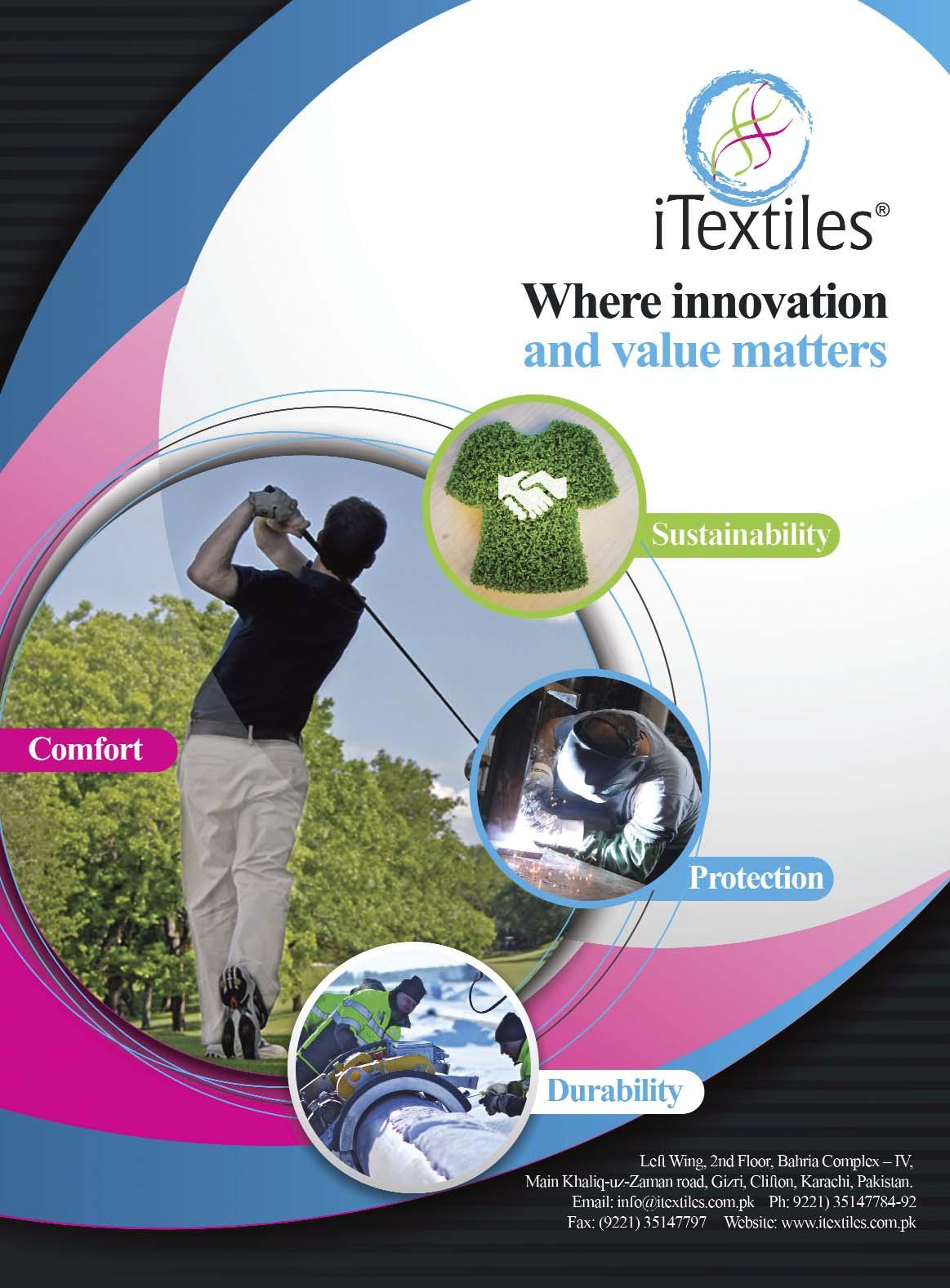
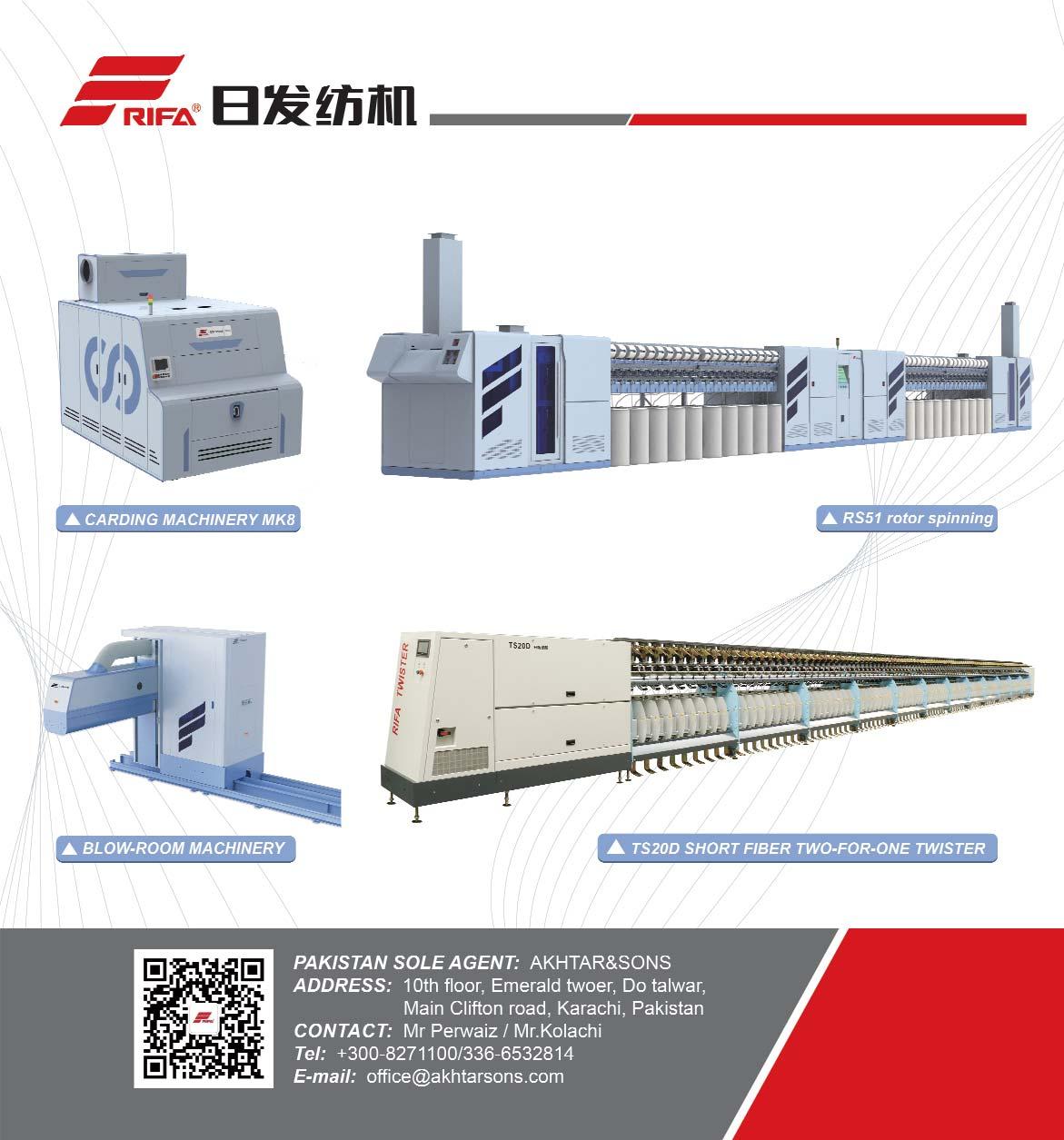
Established 1951 February 2024 Spinning Review
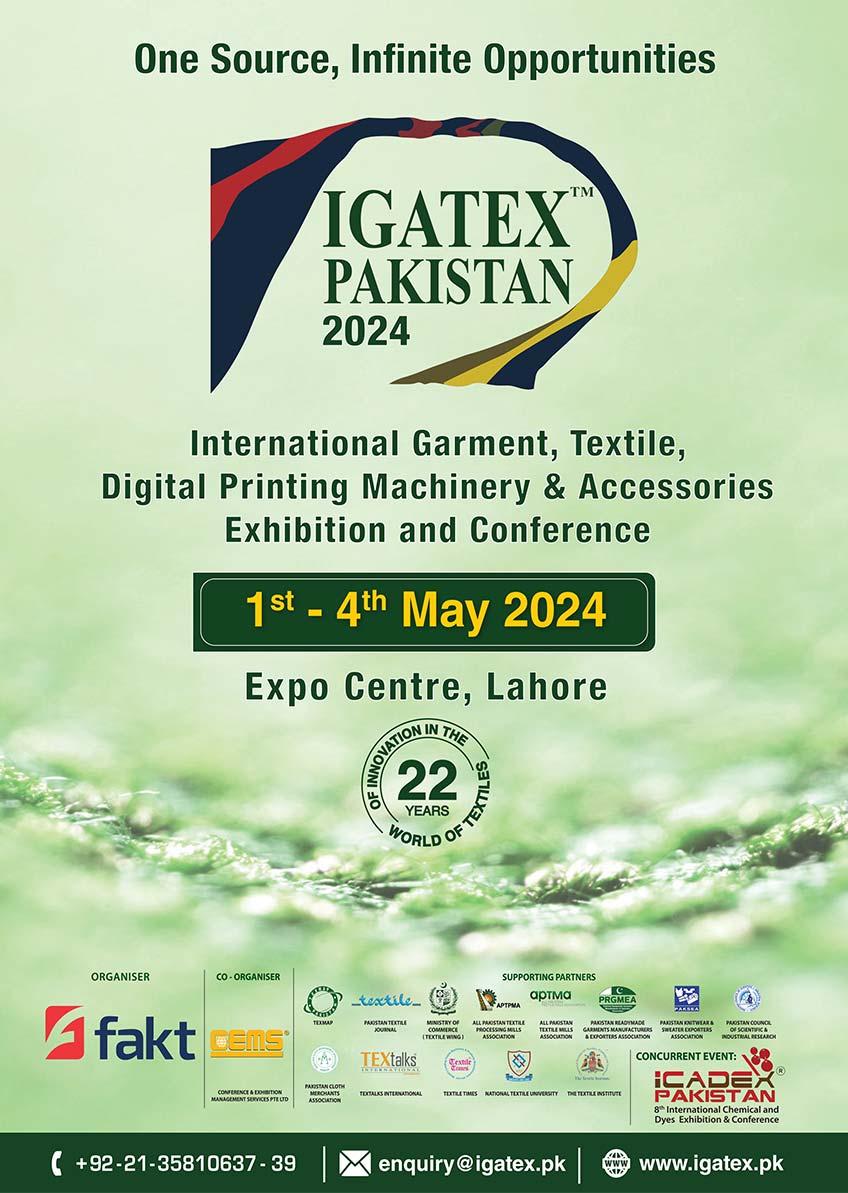
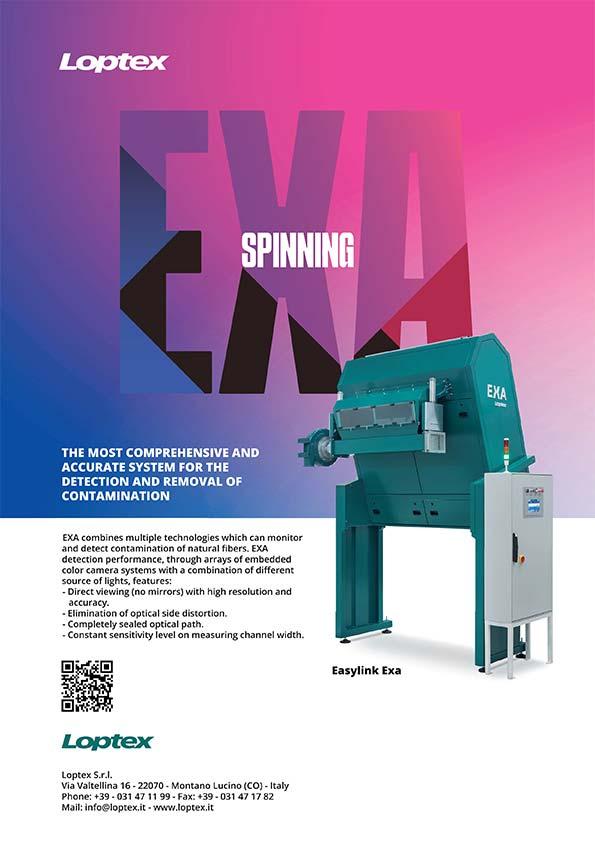
Calendar of Events
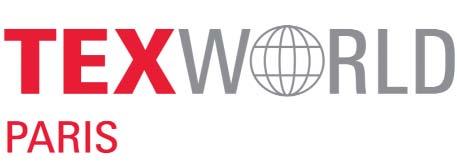
Texworld Paris
Dates: February 5th to 7th, 2024.
Venue: Paris

GTex Global Expo 2024
Dates: Feruary 22nd to 24th 2024.
Venue: Expo Centre, Lahore.
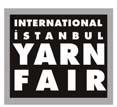
Istanbul Yarn Fair
Dates: February 22nd to 24th, 2024.
Venue: Istanbul, Turkey.

Textile Asia 2024, Karachi
Dates: March 1st to 3th 2024.
Venue: Expo Centre, Karachi.
Textile Asia 2024, Faisalabad
Dates: March 07th to 09th 2024.
Venue: Faisalabad Quilim Marquee.

FESPA 2024
Dates: March 19th to 22nd 2024.
Venue: Amsterdam, The Netherlands.

Techtextil 2024
Dates: April 23rd to 26th, 2024
Venue: Frankfurt, Germany.

IGATEX Pakistan 2024, Lahore
Dates: May 1st to 4th 2024.
Venue: Expo Centre, Lahore.

iCADEX Pakistan 2024, Lahore
Dates: May 1st to 4th 2024.
Venue: Expo Centre, Lahore.

DOMOTEX asiaCHINAFLOOR 2024
Dates: May 28th to 30th 2024.
Venue: NECC, Shanghai, China.
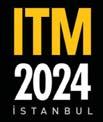
ITM 2024
Dates: June 4th to 8th, 2024.
Venue: Istanbul, Turkey.

HIGHTEX 2024
Dates: June 4th to 8th, 2024.
Venue: Istanbul, Turkey.

INTEX SOUTH ASIA 2024
Dates: August7th to 9th 2024.
Venue: Colombo, SriLanka.

63rd DORNBIRN-GFC Call For Papers
Dates: September 11th to 13th 2024.
Venue: Dornbirn Austria.

ITMA ASIA + CITME 2024
Dates: October 14th to 18rd, 2024.
Venue: NECC, Shanghai, China.

JIAM 2024 OSAKA
Dates: November 27th to 30th 2024.
Venue: Osaka, Japan.

Heimtextil 2025, Frankfurt
Dates: January 14th, to 17th, 2025
Venue: Frankfurt am Main.
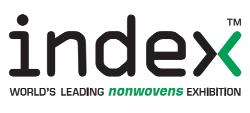
Index 2026
Dates: April 21st to 24th, 2026.
Venue: Palexpo, Geneva, Switzerland.

ITMA 2027
Dates: September 16th to 22nd, 2027.
Venue: Hanover, Germany.
2
PAKISTAN TEXTILE JOURNAL - February 2024
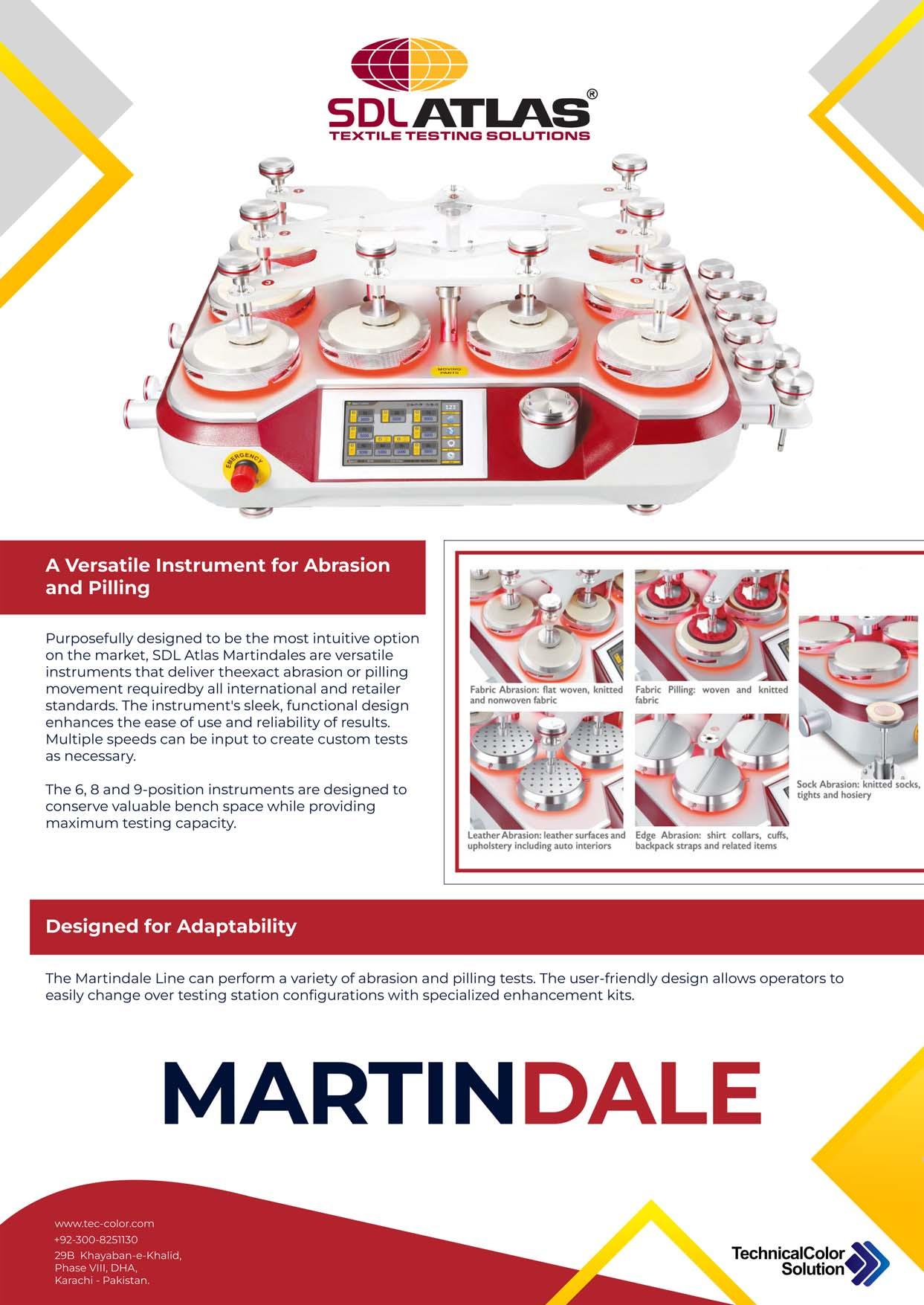



Tel: +92-21-34311674-5
Fax: +92-21-34533616
Email: info@ptj.com.pk
URL: http://www.ptj.com.pk
PTJ Europe Ltd.
Registered Office: Dairy House, Money Row Green, Holyport, Maidenhead, Berkshire, SL6 2ND, United Kingdom.
Registered no. 09141989
Tel: +44 792 2228 721


















CORPORATE NEWS
ALLIED Feather + Down Ramps Up RENU:TRACE Program Through Partnership with NEMO Equipment
Navis TubeTex announces strategic partnership with Fibroline to revolutionize dry impregnation solutions in the U.S.
Vickers Oils secures OEM approval from Lonati S.p.A., Italy
A Swedish win-win partnership for ACG Kinna and Värnamo
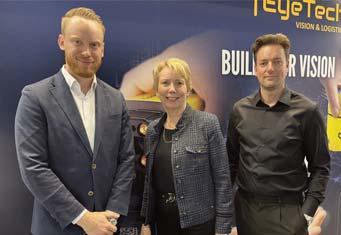
22 21
DYES AND CHEMICALS
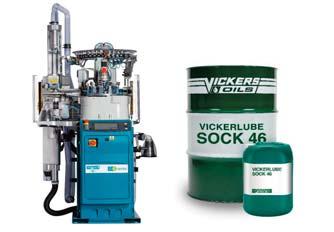
Archroma and Sanitized AG celebrate a decade-long partnership and align strategically for enhanced collaboration in marketing, sales and technology . . . . . . . .23
The search reopens for the SDC’s Global Colourist of the Year 2024 . . . . . . . . .24
PERSONALIA
Personnel changes at BRÜCKNER Textile Technologies . . . . . . . . . . . . . . . . . . . . . . .25
Karl Mayer Turkey appoints general manager;
FAIRS AND EXHIBITIONS
How digitalisation is driving growth: panel discussion on the future viability of the textile industry with reference to Techtextil and Texprocess 2024 . . . . . . . . . .26
Giltex LLC (Azerbaijan) joins ITMF as Corporate Member . . . . .
.28
63nd Dornbirn GFC Global Fiber Congress 11–13 Sep.2024, Dornbirn Austria . . . .29
DOMOTEX 2024: A Gathering of Global Industry
AROUND THE WORLD . . . . . . . . . . . . . . . . . . . . . .14 NEWS & VIEWS . . . . . . . . . . . . . . . . . . . . . . . . . .10 EDITOR’S PAGE . . . . . . . . . . . . . . . . . . . . . . . . . . .7 Impact of energy crisis on the textile industry, particularly spinning industry of Pakistan TEXTILE BRIEFS . . . . . . . . . . . . . . . . . . . . . . . . . . .8 Vol. LXXIII No. 02 February 2024 Rs. 565.00 Founded in 1951 by Mazhar Yusuf (1924-2009) Publisher / Nadeem Mazhar Editor in Chief Amina Baqai Associate Editor Nimrah Nadeem Production Manager Mazhar Ali Layout & Design Noor M. Jaan Website / Social Media Minhaj Ali Hony-Editorial Board Dr. Hafizur Rehman Sheikh Ph.D (UK) F.T.I. (UK) Syed Mahfooz
C.TEX, F.T.I (U.K), B.Sc. Fellow I.C.T.T Atlanta, GA; (USA) Dr. Zubair Bandukda PhD (Textiles), CText ATI Printed at: Color Plus Korangi, Karachi. Published by Nadeem Mazhar from D-16, K.D.A. Scheme No.1. Karachi. Available on Gale and Factiva affiliated international databases through Asianet Pakistan Editorial & Advertising Office B-4, 2nd Floor, 64/21, M.A.C.H, Miran
Road,
Qutab
M. Shah
Karachi - Pakistan
. . . . . . . . . . . . . . . . . . . . . . . . . . . . . . . . . . . . . . . . . . . . . .18
.
. . . . . . . . . . . . . . . . . . . . . . . . . . . . . . . . . . .20
. . . . . . . . . . . . . . . .
.21
. . . . . . . . . . . . . . . . .22
. . . . . . . . . .
. . . . .
. . . . . . . . . . . . . .
. . . .30
. . . . .
. . .
. . . . . . . . . . . . . .
. . .
. . . .25
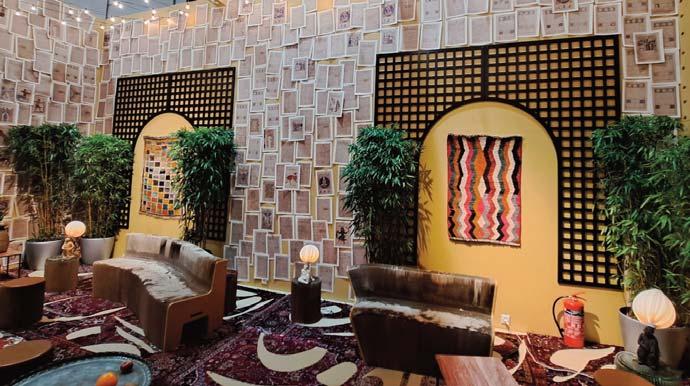

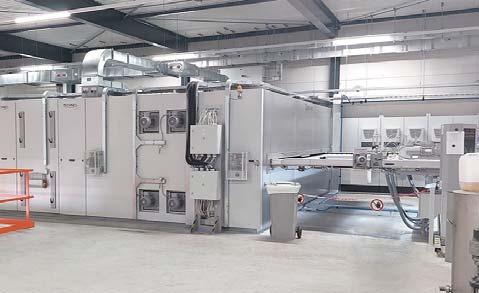
Heimtextil 2024
Heimtextil ends with an increase in exhibitors, a plus in visitors and sets new standards for a sustainable and AI-driven textile industry
Interview with Aamir Ansari, Head of Product Development & Innovation at Feroze1888 Mills Ltd., and Martin, Chief Technology Officer at Pond Global .
FESPA MIDDLE EAST 2024
Investment tops agenda for senior decision-makers at FESPA MIDDLE EAST 2024 . .46
Buyers with spending intentions worth $486mn+ gather at inaugural regional expo Interview with Marc Verbeem, Supervisor of Product Management at Mimaki Europe EMEA . . .
SPECIAL REPORT
Insight: Pakistan's cotton spinning sector during FY23
by Nadeem Mazhar, Managing Editor, Pakistan Textile Journal.
U.S. Cotton Trust Protocol now represents almost quarter of U.S. cotton acreage and reports continued improvements across all six sustainability metrics
Savio Winding and Air-Jet Spinning Innovations
Major Win for Rieter in Patent Dispute in China
All eyes on the Trützschler’s TC 30i
Saurer 72XL compact spinning machine first hand at Egy Stitch and Tex 2024
Uster: Right raw material, optimized production…
Uster solutions combine to deliver practical benefits in processes and profits
Marzoli obtains the Recyclability Index Certification
Mini-Spinning, new lab-scale Shredding machine & recycling in textiles
Weavers of carbon fabrics rely on Loepfe Weftmaster® FALCON-I
Oerlikon Barmag WINGS FDY Technology for a sustainable polyester yarn production at Garden Silk Mills in India
Yarn Quality at the Highest Level with Suessen Top Weighting Arms
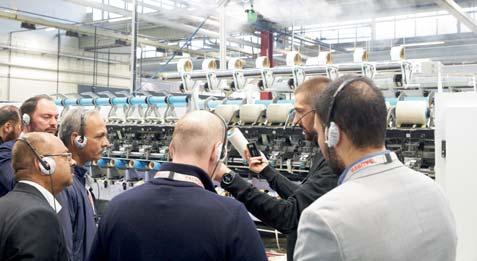
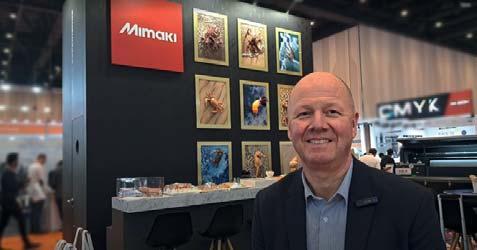

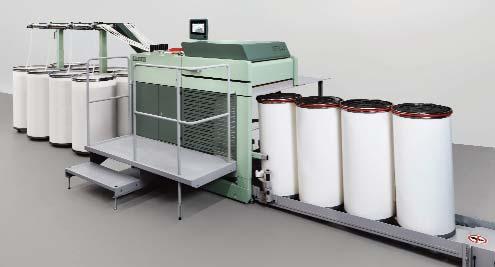
34 32 36 48 54 53 30
. . . . . . . . . . . .32
. . . . . . . . . . . . . . . . . . .33 Uster
Finishing
. . . . . . . . . . . . . . . . . . . . . . . . . . . . . . . . . . .34 Lenzing
. . . . . . . . . . . . . . . . . . .35
FEATURES Naia™ Renew receives Global Recycled Standard certification . . .
The third-party certification verifies recycled content in textiles. Know-how for a better world with recycled textiles . . .
Technologies issues practical guidance in its new Sustainability Bulletin
lines for carpets and textile floor coverings - Brückner offers the widest range of products in this field
once again on CDP’s prestigious Triple A List,
. . . .36
SPECIAL REPORT Saurer OpenHouse 2024: A platform for knowledge sharing and innovation
. .
. . . . . . . . . . . . . . . . . . . . . . . . . . . . . . . .48
. . .
.
. . . . . . . . . . . . . . . . . .49
. . . . . . . . . .
.
.52
. . . . . . . . . . . . . . . . . . . . . . . . . . . .53
. . . . . . . . . . . . . . . . . . . . . . . . . . .54
. . . . . . . . . . . . . . . . . . . . . . . . . . . . . . . . . . . .55
. . . . . .56
. . . . . . . . . . . . . . . . . . . . . . . . .58
. . . . . . . . . . . . . . . . . . . .59
. . . . . .60
. . . . . . . . . . .61
. . . . . . . . . . . . . . . . . . . . . . . . . . . . . . . . . . . . .62
. . . . . . . . .63
. . . . . . . . . . . . . . . . . . .38
. .44

Impact of energy crisis on the textile industry, particularly spinning industry of Pakistan
Spinners are demanding various concessions claiming that the increase in power and energy tariffs have made them non-competitive, yet the 33.5 percent increase in yarn exports in the first quarter of this fiscal speaks otherwise.
This is the period when power and energy rates were jacked up. Pakistan exported 114,818 metric tonnes of cotton yarn worth $315.40 million during the July-Sept 2023 quarter compared with exports of 73,209 metric tonnes of yarn worth $236.26 million.
Energy and power is a major input for the spinning sector. During the month of September, yarn exports increased by 49.8 percent to 41,563 metric tonnes compared with the yarn exports of 22,545 tonnes achieved during September 2022.
Yarn exports in fact were the highest among all manufactured textile items during the first quarter of this fiscal. Textile exports declined to $4.12 billion in Q1 from $4.58 billion achieved during the corresponding period of last fiscal. This depicts a decline of 9.95 percent.
In September, the textile and clothing exports declined by 10.88 percent to $1.36 billion from $1.52 billion in the same month last year. Caretaker Commerce Minister Gohar Ejaz last month announced to offer regionally competitive energy prices to textile exporters and resolve their cash flow issues by releasing pending sales tax refunds. Nothing has been done in this regard.
The most disturbing aspect of decline in exports is the decline in value-added exports.
The fact that there was an increase in volumes of both Knitwear and readymade garments showed that our exporters did get higher orders, but were forced to lower the rates due to global recession.
With the global situation improving the value-added sector might recover per unit value.
The Pakistan Bureau of Statistics data showed the exports of readymade garments shrank 11.21 percent in value in July-September, but grew by 8.24 percent in quantity; while knitwear dipped 15.83 percent in value, but grew 34.14 percent in quantity; and similarly, bedwear posted a negative growth of 10.02 percent in value, growing 1.39 percent in quantity.
The exports of textile and clothing contracted by 14.63 percent to $16.50 billion in FY23. However, the total merchandise exports dipped 12.71 percent to $27.54 billion from $31.78 billion in the preceding year.
Towel exports slightly increased by 2.89 percent in value and 16.24 percent in quantity, whereas those of cotton cloth dipped by 18.15 percent in value and 7.50 percent in quantity.
Textile millers are demanding regionally competitive power and gas tariff, as well as return to zero-rating regime to compete globally.
The increase in exports in volume of cotton yarn, cotton cloth, knitwear and readymade garments depicts that that export volume has increased meaning that the exporters obtained higher orders, but the value in dollars declined in line with the rates quoted by our competitors.
Another depressing news was the decline in the import of textile machinery by 75.38 percent in July-September. Pakistan lags behind its competing economies in technology and quality of textile machinery.
But it looks like expansion or modernisation projects are not the priority of our textile players. Most of the spinning industry is operating on outdated spindles that consume more power and more man power.


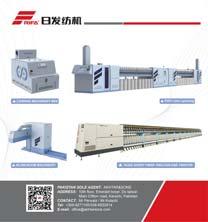
7
EDITOR’S PAGE
Established 1951 February 2024 Spinning Review February 2024
1
Pakistan's cotton production has soared by an impressive 75% in the current season, reaching a remarkable 8.35 million bales. This surge has not only buoyed the country's largest export earner, the textile industry but has also amplified its impact on overall economic activities.
2
Chairman Kamran Arshad of the All Pakistan Textile Mills Association North (APTMA) has fervently appealed to officials within the Ministry of Commerce to actively pursue foreign direct investment (FDI). Addressing a delegation of trade and investment officers selected for postings in Pakistan's missions abroad, Arshad emphasized the

immense potential for exporting a diverse range of textile products, including apparel, footwear, and related goods.
3Pakistan's textile exports faced a downturn of approximately 6.33 percent in the initial four months (July-October) of the current fiscal year, as reported by the Pakistan Bureau of Statistics (PBS). The sector recorded exports totaling $5.565 billion, compared to $5.940 billion in the corresponding period of the previous fiscal year.
4Pakistan's textile sector engaged in discussions with a US envoy during a recent visit by the US Consul General to the All Pakistan Textile Mills
Textile Briefs International
1
Tanya Plibersek, the Australian Environment Minister, is contemplating the imposition of a mandatory 4 cent clothing levy on the fashion industry, a decision slated for July pending industry compliance with a voluntary green levy initiative. The move comes in response to the alarming environmental impact of discarded clothing, with the majority ending up in landfills, according to the Australian Fashion Council.
2The once-thriving home textile sector of Bangladesh is facing tumultuous times in the global export market, grappling with a confluence of challenges ranging from a persistent gas crisis to volatile exchange rates and soaring production costs. The sector,
Association (APTMA) in Lahore. Sharing mutual optimism, both parties acknowledged Pakistan's promising potential in the textile and allied sectors, highlighting the untapped opportunities for joint endeavors to amplify trade and investment prospects, as conveyed through a press release from APTMA.
5
The All Pakistan Textile Mills Association (APTMA), representing Pakistan's largest industrial sector, has urgently called for the elimination of cross-subsidies from power tariffs for industrial consumers, advocating for a reduction to 9 cents/kWh. In a statement issued on earlier this month, APTMA emphasized that
implementing a tariff of 9 cents/kWh for industrial consumers is a vital structural reform necessary for Pakistan to regain competitiveness in international markets.
6
The Sindh Community Foundation (SCF) has recently signed a Letter of Understanding with the Directorate of Literacy and Non-Formal Education, part of the Education and Literacy department of the Government of Sindh to enhance female literacy and empowerment in rural Sindh. The collaboration aims to provide essential training to 3000 women cotton workers across the Matiari and Sanghar districts.

which witnessed a promising trajectory in previous fiscal years, has now encountered a sharp downturn, compelling several factories to shutter their operations.
3Despite facing a 10 percent decline in cotton production last year, Brazil maintained its position as the world's second-largest cotton exporter in 2023, a testament to its resilience in the face of challenging circumstances.
Figures released by the Brazilian Cotton Growers Association (Abrapa) reveal that Brazil exported 1.617 million tons of cotton, generating export revenues of US $3.06 billion.
4
China's export figures for refined cotton and specialty cotton linter pulp in 2023 offer insights
into the delicate balance between growth and challenges. Despite a marginal 0.74 percent yearly increase, reaching a total of 82,292 tons, the significance lies not just in the numbers, but in the nuanced fluctuations throughout the year.
5China's spandex imports witnessed a remarkable surge in 2023, underscoring the nation's pivotal role in the textile industry. Import figures surged by 22,112 tons, marking an unprecedented 85.6 percent increase over the previous year, with total imports reaching an impressive 47,900 tons.
6The European Union has forged a provisional political agreement aimed at overhauling its economic governance frame-

work, with far-reaching implications for member states. Spearheaded by Belgian finance minister Vincent Van Peteghem, the agreement marks a significant stride towards fostering sound and sustainable public finances while promoting inclusive growth and investment.
7The Indian cotton spinning sector is set to embark on a trajectory of robust growth, with projections indicating a substantial expansion of 12-14 percent in fiscal 2024-25, commencing from April 1. A key driver of this growth is the anticipated surge in cotton yarn exports, expected to skyrocket by 8590 percent, propelled primarily by the "China Plus One" strategy.
8 PAKISTAN TEXTILE JOURNAL - February 2024
Textile Briefs National

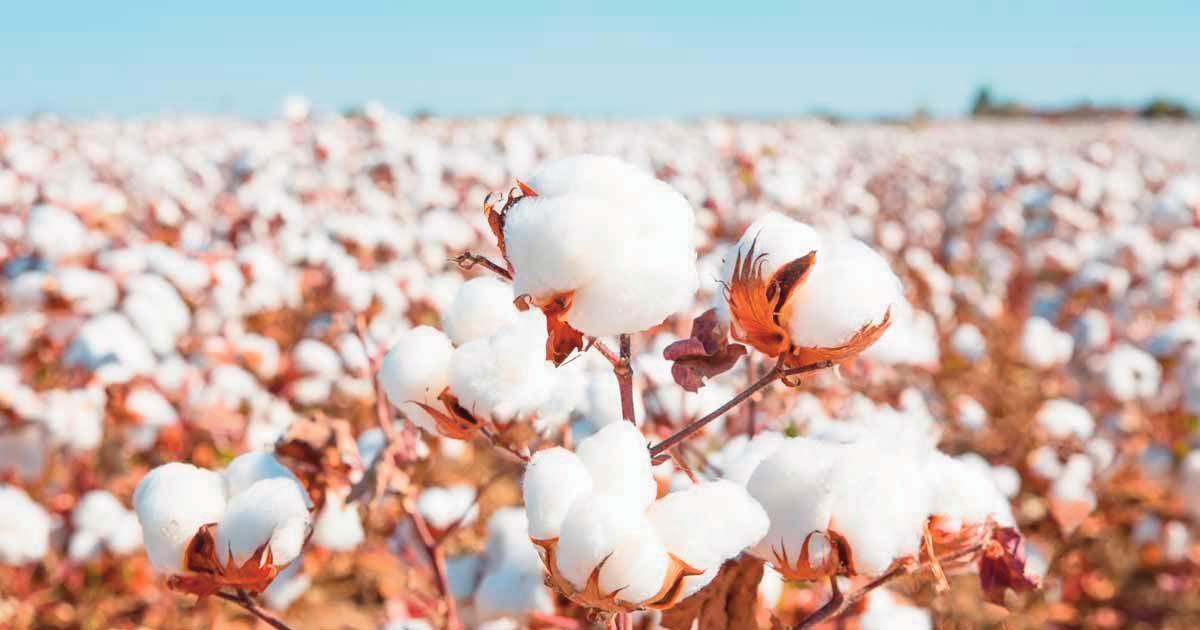
Pakistan’s cotton production witnessed a 75% increase during the current season
Pakistan's cotton production has soared by an impressive 75% in the current season, reaching a remarkable 8.35 million bales. This surge has not only buoyed the country's largest export earner, the textile industry but has also amplified its impact on overall economic activities.
The remarkable growth in cotton output can be attributed to favourable weather conditions and the government's announcement of a higher commodity support price at Rs8,500 per 40kg for the ongoing season. This policy shift has played a pivotal role in driving this unprecedented growth.
According to the Pakistan Cotton Ginner's Association, production, as reported in February, stands at 4.76 million bales in the same period (Jul-Jan) of the fiscal year 2022-23.
Breaking down the latest production data, the major boost in commodity output is attributed to Sindh, where harvesting increased by 120% to 4.11 million bales in the current season compared to the previous one. The remaining production, totaling 4.24 million bales, came from Punjab, marking a 47% rise in the first seven months of the season compared to the same period
last year. The PCGA estimates the fullseason output to be in the range of 8-9 million bales this year, while Naseem Usman, Chairman of the Karachi Cotton Brokers Forum, projects the total commodity production to reach 8.45 million bales by the end of the current season.
The government's decision to announce a minimum purchasing price of Rs8,500 per 40kg has incentivized farmers to cultivate the commodity over a larger area of agricultural land, according to industry officials.
However, despite stability in cotton prices internationally, local textile and spinning mills are facing challenges, notes Ahsanul Haq, Chairman of Pakistan Cotton Ginners' Forum. The industry is grappling with the rising cost of production due to increased energy prices, prompting discussions of potential protests.
Chairman Kamran Arshad of APTMA Urges Ministry of Commerce Officials to Prioritize FDI for Textile Sector
Chairman Kamran Arshad of the All Pakistan Textile Mills Association North (APTMA) has fervently appealed to officials within the Ministry of Commerce to actively pursue foreign direct
investment (FDI). Addressing a delegation of trade and investment officers selected for postings in Pakistan's missions abroad, Arshad emphasized the immense potential for exporting a diverse range of textile products, including apparel, footwear, and related goods.
During a recent gathering at the APTMA Lahore office, attended by senior officials including Senior Vice Chairman Asad Shafi, Executive Members Haroon Elahi and Ismail Fayyaz, Energy Consultant Tahir Basharat Cheema, and Secretary General Raza Baqir, Arshad underscored the critical need to prioritize duty-free access, identify investment opportunities, and foster strong industry linkages. He stressed the significance of initiatives such as organizing road shows, facilitating joint ventures, and transferring technology to bolster the domestic textile sector.
Arshad outlined the ambitious vision of the APTMA, which includes a USD 50 billion export plan aimed at establishing 1000 garment plants. This plan, with an expected investment of USD 7 billion, is projected to generate annual exports totaling USD 20 billion and provide employment opportunities for over 700,000 workers.
Highlighting the pivotal role of trade and investment officers stationed in over 50 countries, Arshad urged them to actively engage in exhibitions, prepare comprehensive reports for trade
News & Views 10 PAKISTAN TEXTILE JOURNAL - February 2024
associations and exporters, and explore new markets to expand Pakistan's export footprint. Additionally, he addressed key challenges facing the textile industry, advocating for the removal of cross subsidies, the introduction of export-oriented industry tariffs, and the streamlining of tax refund processes.
Asad Shafi, emphasizing Arshad's sentiments said, the importance of brand development and the promotion of Pakistani products on the global stage. Meanwhile, in a separate engagement, a delegation of Trade and Investment Officers from the Trade Development Authority of Pakistan (TDAP) visited the Lahore Chamber of Commerce and Industry (LCCI).
Led by Director General Shahzad Rana, the delegation engaged in discussions aimed at addressing hurdles in external trade, streamlining taxation systems, and diversifying markets to enhance Pakistan's export competitiveness.
The collective efforts of industry stakeholders, alongside proactive measures by government officials and trade bodies, underscore a concerted push to revitalize Pakistan's textile industry and position it as a key player in the global market.
Textile Sector Sees Decline of 6.33% during 1st quarter FY24 Despite Month-onMonth Growth
Pakistan's textile exports faced a downturn of approximately 6.33 percent in the initial four months (July-October) of the current fiscal year, as reported by the Pakistan Bureau of Statistics (PBS). The sector recorded exports totaling $5.565 billion, compared to $5.940 billion in the corresponding period of the previous fiscal year.
Despite this setback, the overall exports for the country during the July-October fiscal year 2023-24 amounted to $9.6 billion (provisional), showcasing a marginal decrease of 0.48 percent from the previous year's $9.554 billion.
Data analysis from the PBS reveals a month-on-month (MoM) growth of 5.61 percent in textile exports for October 2023, reaching $1.437 billion, compared to $1.360 billion in September 2023. Furthermore, textile exports witnessed a year-on-year (YoY) increase of 5.92 percent in October 2023, up from $1.356 billion in October 2022.
October 2023 saw total exports amounting to $2.690 billion (provisional), marking an 8.64 percent rise from $2.476 billion in September 2023 and a notable 12.84 percent increase from $2.384 billion in October 2022.
Noteworthy growth was observed in cotton yarn exports, surging by 42.85 percent during the initial four months of the current fiscal year, reaching $407.564 million compared to $285.315 million in the same period of the previous fiscal year. However, on a month-onmonth basis, there was an 18.85 percent negative growth.
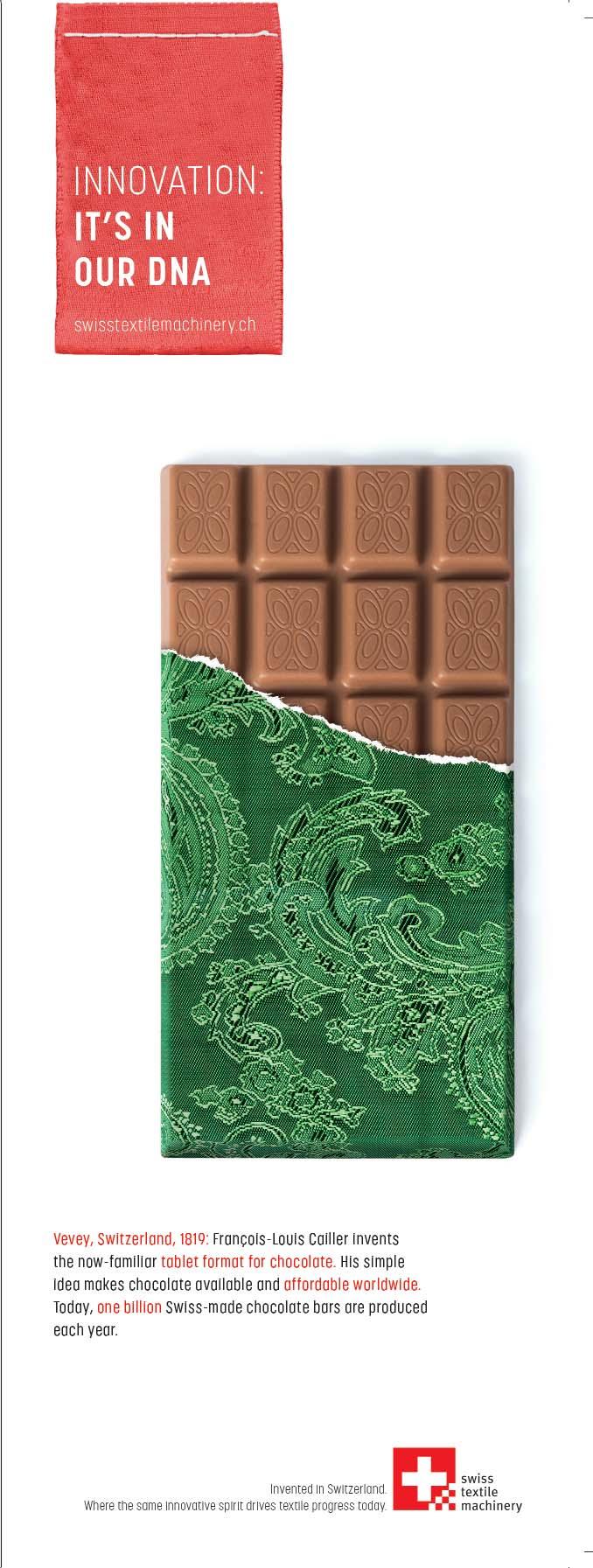
Major commodities in exports for October 2023 included knitwear, readymade garments, bed wear, rice, cotton cloth, oil seeds, nuts, kernels, towels, cotton yarn, rice basmati, and made-up articles (excluding towels and bedwear).
The decline in the textile and clothing sector's exports is primarily attributed to rising production costs and a liquidity crunch. The Caretaker Commerce Minister, Gohar Ejaz, recently announced plans to address these challenges by offering regionally competitive energy prices to textile exporters and resolving cash flow issues through the release of pending sales tax refunds. However, the implementation of these measures remains pending.
Pakistan-US Partnership Aims to Leverage Trade Opportunities in Textile Industry
Pakistan's textile sector engaged in discussions with a US envoy during a recent visit by the US Consul General to the All Pakistan Textile Mills Association (APTMA) in Lahore.
Sharing mutual optimism, both parties acknowledged Pakistan's promising potential in the textile and allied sectors, highlighting the untapped opportunities for joint endeavors to amplify trade and investment prospects, as conveyed through a press release from APTMA.
Underlining their steadfast commitment to fostering collaboration, APTMA's leadership reiterated its
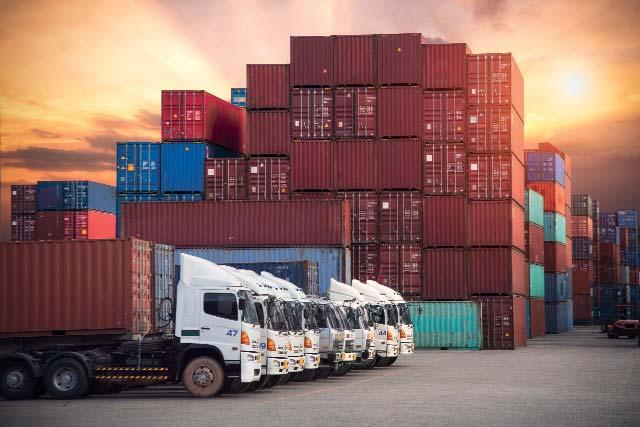
dedication to nurturing robust partnerships with their American counterparts, with a focus on expanding trade horizons and harnessing the full potential of the economic alliance between the two nations.
During the discourse, Kamran Arshad, Chairman of APTMA North, drew attention to the gradual decline in Pakistan's domestic cotton production, emphasizing the necessity of importing over three million bales this fiscal year. Notably, Arshad underscored the pivotal role of the USA as a primary supplier of cotton to Pakistan, emphasizing that the imported cotton would fuel the production of textile goods worth $8 billion, predominantly destined for the US market.
Proposing an innovative strategy, Arshad suggested leveraging the proceeds from Pakistan's textile exports
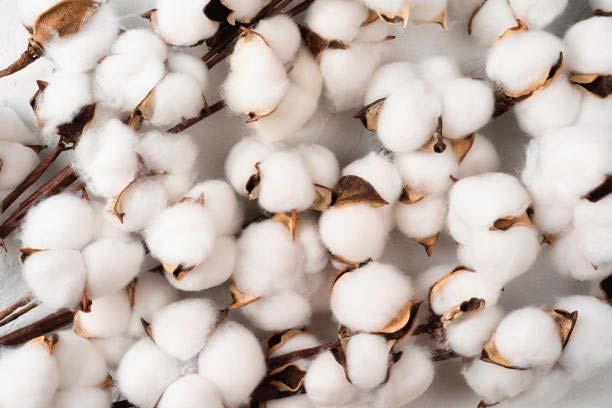
to the US as collateral via an escrow account mechanism, thereby offsetting the liabilities associated with cotton imports into the US.
In advocating for strengthened ties, APTMA's Chairman emphasized the importance of fostering closer USPakistan cotton linkages within the textile industry and advocated for the expansion of toll manufacturing opportunities in Pakistan by US textile enterprises. Additionally, Arshad emphasized the critical need for technology transfer to Pakistan, particularly concerning highyielding cotton seed, and proposed collaborative efforts with US cotton research institutions to enhance cotton quality.
The All Pakistan Textile Mills Association appeals for the urgent removal of the crosssubsidy from power tariffs
The All Pakistan Textile Mills Association (APTMA), representing Pakistan's largest industrial sector, has urgently called for the elimination of cross-subsidies from power tariffs for industrial consumers, advocating for a reduction to 9 cents/kWh. In a statement issued on earlier this month, APTMA emphasized that implementing a tariff of 9 cents/kWh for industrial consumers is a vital structural reform necessary for Pakistan to regain competitiveness in international markets.
"Reducing power tariffs to 9 cents/kWh will not only reverse the
News & Views 12 PAKISTAN TEXTILE JOURNAL - February 2024
declining power consumption among industrial consumers but also stimulate increased consumption, thereby offsetting any potential revenue losses with a positive volumetric effect," the statement asserted. Furthermore, APTMA highlighted the importance of such a move in addressing the escalating circular debt issue, which continues to grow despite significant energy price hikes over the past year.
The association underscored the detrimental impact of inflated energy costs, noting that many firms have been compelled to reduce production, resulting in job losses and decreased economic activity. Expressing concern over Pakistan's rapid deindustrialization, particularly evidenced by declining power generation and consumption among large industrial consumers, APTMA emphasized the urgent need to break the cycle of increasing power tariffs leading to decreased consumption and vice versa.
Looking ahead, APTMA stressed that Pakistan's gross external financing requirements are projected to exceed $25 billion annually over the next five years, underscoring the imperative of boosting exports to bridge this financing gap. APTMA asserted that reducing tariffs to 9 cents/kWh would not only bolster exports across various sectors but also stimulate growth in associated industries and services.
Highlighting the fierce global competition, APTMA emphasized the necessity of creating an environment conducive to business growth, with rationalized energy costs being a crucial element.
Sindh Community Foundation Partners with Government to Empower 3000 Women Cotton Workers
The Sindh Community Foundation (SCF) has recently signed a Letter of Understanding with the Directorate of Literacy and Non-Formal Education, part of the Education and Literacy department of the Government of Sindh to enhance female literacy and empowerment in rural Sindh. The collaboration aims to provide essential training to 3000 women cotton workers across the Matiari and Sanghar districts.
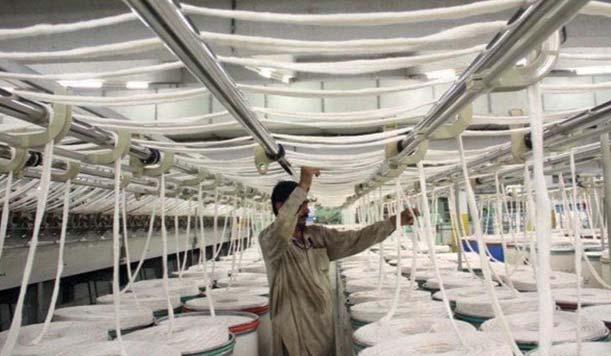
Javed Hussain, the Executive Director of Sindh Community Foundation, emphasized the organization's unwavering commitment to bridging the gender literacy gap and bolstering literacy rates in rural Sindh. He highlighted the pivotal role of literacy and education in both human and national development, underscoring how improved literacy levels among women cotton workers can lead to fair wages and better working conditions.
Dr. Aftab Sheikh, Director of the Directorate of Literacy, commended the collaborative efforts aimed at promoting literacy programs in rural Sindh. He expressed optimism that such joint endeavours would significantly elevate the female literacy ratio within the province. As a token of recognition for their dedicated efforts in advancing women's literacy in rural areas, the Directorate of Literacy and Non-Formal Education presented SCF with a shield of appreciation.
The signing ceremony was attended by key stakeholders including Additional Director Manzoor Uqaili, Deputy Director Muhammad Waseem, and Niaz Muhammad from SCF. This LoU marks a pivotal step towards empowering women in the textile industry through education and skill development initiatives.
Textile Exports Surge in January Despite Tariff Hikes, and Gas Price Hike Looms
Pakistan's textile sector witnessed a remarkable surge in exports during January 2024, defying earlier increases in power and gas tariffs. The boost in
exports, fueled by robust international demand and favorable pricing, underscores the resilience of the industry amid challenging economic conditions.
Official data released by the Pakistan Bureau of Statistics (PBS) revealed a significant uptick in textile exports, recording a 10.1 percent increase to $1.455 billion in January 2024 compared to $1.32 billion in the same month the previous year. Despite this positive momentum, textile exports for the period of July-January 2023-24 experienced a modest decline of three percent to $9.74 billion, down from $10.04 billion in the corresponding period of the previous fiscal year.
Key components of the textile group witnessed notable growth in January 2024. Sales of bedwear, knitwear, towels, readymade garments, cotton cloth, and yarn all registered substantial increases. Knitwear exports surged by 8.4 percent to $365 million, bedwear by 19.3 percent to $252 million, readymade garments by 13.85 percent to $333.4 million, and towels by 5.4 percent to $96.1 million.
Similarly, cotton yarn exports saw a significant increase of 19.8 percent to $81.3 million, while cotton cloth exports edged up by 0.5 percent to $159.7 million compared to January 2023.
However, amidst the overall positive trend, exports of textile machinery experienced a decline of 34.8 percent to $11.1 million in January, signaling potential challenges in this segment.
While the sector celebrates its recent export success, concerns linger over the impact of the recent increase in gas tariffs on future exports.
News & Views 13


AUSTRALIA
Environment minister weighs mandatory clothing levy to tackle fashion industry's carbon footprint
Tanya Plibersek, the Australian Environment Minister, is contemplating the imposition of a mandatory 4 cent clothing levy on the fashion industry, a decision slated for July pending industry compliance with a voluntary green levy initiative. The move comes in response to the alarming environmental impact of discarded clothing, with the majority ending up in landfills, according to the Australian Fashion Council.
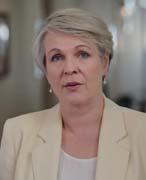
Addressing an industry event, Minister Plibersek emphasized the need for action, citing the fashion industry's significant contribution to carbon emissions, surpassing those of international flights and maritime shipping combined. While acknowledging personal accountability in her own consumption habits, she stressed the industry's responsibility in fostering sustainable practices, underscoring the necessity of systemic change beyond consumer preferences.
Last June, a government-funded consortium led by the Australian Fashion Council launched "Seamless," a program charting a course for the industry's
transition to a circular economy by 2030. Participants are required to contribute 4 cents per clothing item towards Seamless initiatives, focusing on collection, sorting, research, recycling projects, and educational campaigns.
Several prominent brands, including Big W, Cotton On, David Jones, Lorna Jane, R.M. Williams, Sussan Group, and The Iconic, have pledged support for Seamless, signaling a growing industry commitment to sustainability. The Fashion Council estimates the program could raise up to $60 million annually if made mandatory, with hopes of diverting up to 60 percent of clothing from landfills by 2027.
With Australians purchasing an average of 56 clothing items annually and over 200,000 tonnes of clothing finding its way to landfills each year, the minister is exploring interventions to bolster recycling and reuse efforts. Potential measures include enforcing minimum design standards and mandating fashion brands to contribute to a green fund for each clothing piece they produce or import.
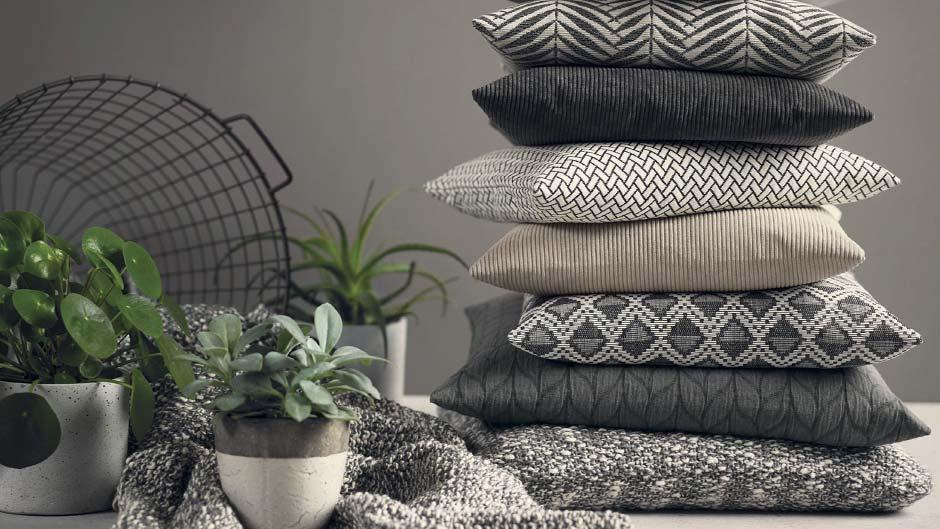
Around the World 14 PAKISTAN TEXTILE JOURNAL - February 2024
Tanya Plibersek, Australian environment minister

BANGLADESH
Bangladesh's home textile sector struggles amidst gas crisis and exchange rate volatility
The once-thriving home textile sector of Bangladesh is facing tumultuous times in the global export market, grappling with a confluence of challenges ranging from a persistent gas crisis to volatile exchange rates and soaring production costs. The sector, which witnessed a promising trajectory in previous fiscal years, has now encountered a sharp downturn, compelling several factories to shutter their operations.
After crossing the significant milestone of $1 billion in exports during the fiscal year 2020-21, the sector experienced a formidable setback in 2022-23. The adverse impacts of the gas crisis and a notable depreciation of the taka against the US dollar contributed to a staggering 32.47 percent decline in exports, plunging to $1.09 billion. The situation further exacerbated in the subsequent fiscal year, with shipments plummeting by 34.37 percent to $454.74 million between July and January of 2023-24.
The dwindling export figures have triggered a notable decline in the number of active home textile mills, dwindling from 38 to a mere eight establishments. The instability in the foreign exchange market has exacerbated the sector's woes, with the taka depreciating by approximately 30 percent against the US dollar over the past two years, rendering exports less competitive and imports costlier.
The immediate aftermath of the government's decision to hike gas prices from Tk 16 to Tk 30 per unit in February last year dealt a severe blow to millers, escalating production costs significantly. Home textile production, heavily reliant on gas for steam boilers and dyeing processes, faced unprecedented challenges as international retailers turned to alternative markets like Pakistan, leveraging its abundant cotton resources and favorable exchange rates.
The repercussions of the gas crisis are palpable, with local home textile millers
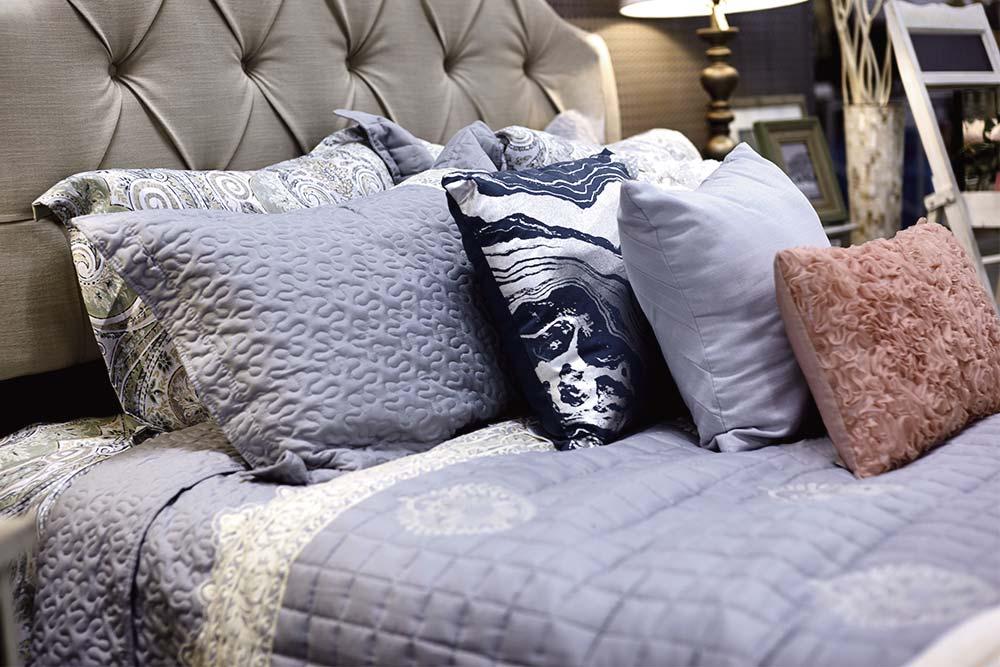
witnessing a staggering surge in gas bills, exerting immense financial strain on businesses. Moreover, the withdrawal of the 9 percent lending rate ceiling by the central bank has escalated the cost of funds for entrepreneurs, further exacerbating the sector's financial woes.
Amidst these challenges, industry leaders like Monsoor Ahmed of the Bangladesh Textile Mills Association (BTMA) and BTMA President Mohammad Ali Khokon warn of dire consequences if the gas situation remains unresolved, fearing the imminent closure of more textile mills.

BRAZIL
Brazil holds ground as second-largest cotton exporter despite production setback
Despite facing a 10 percent decline in cotton production last year, Brazil maintained its position as the world's second-largest cotton exporter in 2023, a testament to its resilience in the face of challenging circumstances. Figures released by the Brazilian Cotton Growers Association (Abrapa) reveal that Brazil exported 1.617 million tons of cotton, generating export revenues of US $3.06 billion.
Abrapa President Alexandre Schenkel attributes the production drop to adverse weather conditions during the 2022/23
crop season, coupled with a challenging global cotton market. Schenkel highlights the impact of ongoing geopolitical conflicts, such as the Russia-Ukraine and Israel-Palestine conflicts, on the global economy, leading to market instability, inflationary pressures, and reduced demand for cotton.
The repercussions of these conflicts manifested in decreased demand from textile mills, operating at lower capacities throughout 2023 and importing lesser quantities of cotton. Despite these challenges, Brazil managed to export 74 percent of its cotton in the second half of 2023, exceeding the volume recorded in the previous year by 24 percent.
In addition to its export prowess, Brazil solidified its position as the thirdlargest cotton producer globally in the previous season, further underscoring its significance in the cotton market.

CHINA
China's cotton export landscape a delicate balance amidst global shifts
China's export figures for refined cotton and specialty cotton linter pulp in 2023 offer insights into the delicate balance between growth and challenges. Despite a marginal 0.74 percent yearly increase, reaching a total of 82,292 tons, the significance lies not just in the numbers, but in the nuanced fluctuations throughout the year.
Around the World 15
Around the World
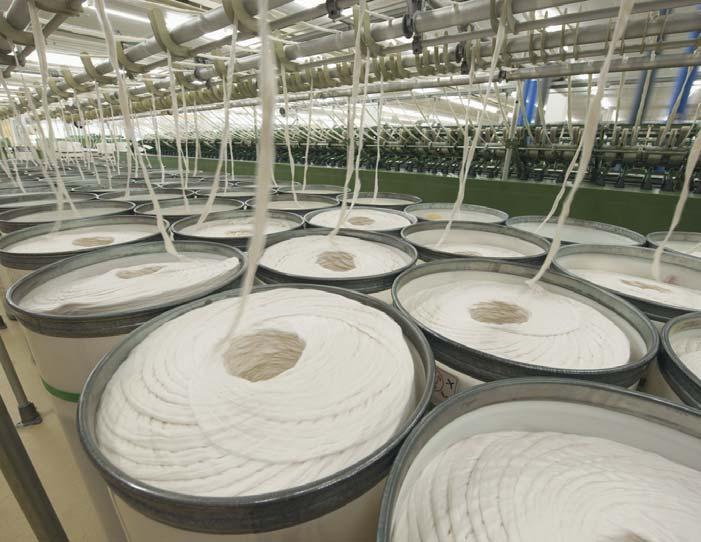
Throughout 2023, export volumes experienced oscillations, ranging from a low of 5,403.5 tons in June to a peak of 7,740.8 tons in August, with an average monthly export volume settling at 6,857.7 tons. This pattern reflects the intricate interplay of market dynamics and seasonal demands.
The trajectory of these exports follows a notable surge in 2022, with a remarkable 22.3 percent increase from the previous year, signaling robust growth and reaching unprecedented heights.
Diving into the geographical distribution of exports, refined cotton and specialty cotton linter pulp found their way to 40 countries and regions. Impressively, the top five markets accounted for a substantial 74 percent of overall exports, underscoring China's diversified yet concentrated export strategy.
Among these markets, South Korea emerged as the frontrunner, absorbing 27,965 tons of the total exports in 2023, marking a notable 25.9 percent increase and claiming a significant 34 percent share of the total exports.
However, amidst these success stories, challenges loomed large. Exports to the United States witnessed a staggering decline of 90.3 percent, plummeting to a mere 346 tons. Similarly, shipments to Germany also experienced a notable downturn, plummeting by 82.5 percent to 722 tons. These shifts reflect
not only market dynamics but also geopolitical and economic factors influencing trade relations.
Delving deeper into pricing dynamics, exports to France commanded the highest export price, fetching an impressive US $2,378 per ton. In contrast, exports to South Korea secured the lowest price point, at $1,387 per ton, highlighting the variance in market demands and willingness to pay.
China's imports of spandex skyrocket amid global supply dynamics
China's spandex imports witnessed a remarkable surge in 2023, underscoring the nation's pivotal role in the textile industry. Import figures surged by 22,112 tons, marking an unprecedented 85.6 percent increase over the previous year, with total imports reaching an impressive 47,900 tons.
Despite the substantial increase in import volumes, the average import price experienced a noteworthy decline, plummeting by $3.36 per kg to settle at $5.36 per kg on a year-on-year basis. This juxtaposition of soaring volumes and declining prices highlights the complex interplay of demand, supply, and pricing mechanisms within the spandex market.
The dominance of a select few countries in China's spandex imports became evident, with imports from four
key nations comprising a staggering 97.5 percent of the total. Notably, Vietnam emerged as a frontrunner, with imports soaring to 36,600 tons, marking a phenomenal 173 percent increase and capturing an impressive 80 percent import share.
Within China, specific provinces emerged as focal points for spandex imports, with Zhejiang, Guangdong, and Jiangsu provinces collectively commanding a substantial 95.3 percent import share. Notably, Zhejiang Province emerged as a powerhouse, with import volumes skyrocketing to 31,200 tons in 2023, marking a staggering 166 percent increase over the previous year. With a commanding 65 percent import share, Zhejiang Province solidified its position as a key player in China's spandex market.

EUROPEAN UNION
EU reaches milestone Agreement on economic governance reform to boost sustainability
The European Union has forged a provisional political agreement aimed at overhauling its economic governance framework, with far-reaching implications for member states. Spearheaded by Belgian finance minister Vincent Van Peteghem, the agreement marks a significant stride towards fostering sound and sustainable public finances while promoting inclusive growth and investment.
Central to the reform is the commitment to fortify the existing framework, ensuring its efficacy and applicability across all EU nations. Emphasizing the need for balanced and sustainable public finances, the agreement places a premium on structural reforms and strategic investments, envisaging a landscape conducive to robust growth and job creation throughout the Union.
Crucially, the agreement underscores a steadfast commitment to reducing debt ratios and deficits in a gradual, pragmatic, and growth-oriented manner. By prioritizing investments in key sectors such as digital transformation, environmental sustainability, social
16 PAKISTAN TEXTILE JOURNAL - February 2024
welfare, and defense, the reform paves the way for a more resilient and forwardlooking economic landscape.
In addressing macroeconomic imbalances and facilitating countercyclical policies, the agreement introduces mechanisms to guide member states towards fiscal prudence and long-term sustainability. Notably, provisions for extending fiscal adjustment periods underscore a nuanced approach to balancing fiscal discipline with the imperative of fostering resilience and growth.
Moreover, the reform aligns with broader EU objectives, including the pursuit of a fair, green, and digital transition, bolstering energy security, and enhancing social and economic resilience. By prioritizing sustainability and flexibility, the agreement reflects a holistic approach to steering the Union towards a prosperous and resilient future.
However, the journey towards implementation entails rigorous scrutiny and democratic deliberation. Subject to approval by the Council and the Parliament economic affairs committee, the agreement will undergo meticulous review before a formal vote is cast. This rigorous process underscores the EU's commitment to transparency, accountability, and democratic decisionmaking.

INDIA
Indian cotton spinning sector poised for robust growth in 2024-25
The Indian cotton spinning sector is set to embark on a trajectory of robust growth, with projections indicating a substantial expansion of 12-14 percent in fiscal 2024-25, commencing from April 1. A key driver of this growth is the anticipated surge in cotton yarn exports, expected to skyrocket by 85-90 percent, propelled primarily by the "China Plus One" strategy.
An ICRA press release highlighted that the surge in Indian cotton yarn exports will be spearheaded by increased imports from the United States and the European Union, particularly during the spring-summer season. This uptick in
Around the World
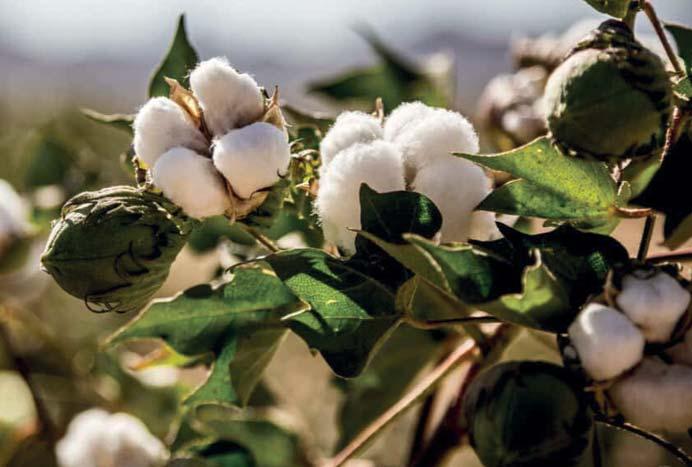
overseas shipments marks a significant turnaround following a sharp decline of 53 percent observed in the 2022-23 fiscal year.
Despite the optimistic export outlook, ICRA foresees a deceleration in cotton prices, which is likely to impact yarn realizations, consequently leading to a decline of 9-10 percent in sector revenues compared to the previous fiscal year.
The rebound in yarn exports is underscored by a remarkable 142 percent increase in total export volumes, albeit from a low base in the previous fiscal year. This growth trajectory has resulted in the share of yarn exports in overall production surging to 33 percent in the seven months leading up to October 2023, from 19 percent in the corresponding period of the previous fiscal year.

KENYA Kenyan cotton and textile industry stakeholders rally against duty-free fabric imports
The Kenyan cotton and textile industry is sounding the alarm over the government's decision to allow duty-free imports of fabrics, sparking concerns of dire consequences for local farmers and manufacturers. Stakeholders vehemently oppose the move, citing its potential to devastate cotton farming and cripple already struggling textile industries.
According to media reports, the decision threatens to undermine the gradual revival of cotton farming across several regions of Kenya and jeopardize the efforts to modernize key textile mills like Rivatex. Industry leaders warn that such a policy shift not only undermines the livelihoods of cotton farmers but also undermines the availability of locally sourced cotton.
Highlighting the commitment of farmers to meet domestic demand for cotton, stakeholders emphasize the need for government support to sustain this crucial sector. The importation of dutyfree fabrics is seen as a severe blow to the efforts aimed at revitalizing the cotton farming landscape.
Tejal Dodhia, Managing Director at Thika Cloth Mills, raises concerns about the adverse impact of duty-free fabric imports on domestic industries, warning of potential job losses. Dodhia stresses the importance of upholding the "Buy Kenya, Build Kenya" ethos to safeguard local businesses and livelihoods.
Rivatex Managing Director Thomas Kipkurgat underscores the significance of ongoing modernization efforts in enhancing the capacity and quality of Kenya's textile industry. Kipkurgat urges all stakeholders to unite in rejecting the proposal to import fabrics duty-free, emphasizing the need to prioritize the interests of local farmers and workers.
As the modernization of textile plants nears completion, stakeholders are calling for a united front against policies that threaten the progress achieved thus far.
17
ALLIED Feather + Down Ramps Up RENU:TRACE Program Through Partnership with NEMO Equipment
NEMO’s Endless Promise® circularity program is the first to utilize ALLIED’s one of a kind traceable down recycling program
ALLIED Feather + Down (AF+D), global leaders in high performance, ethically sourced, and recycled down, is proud to officially ramp up their one of a kind RENU:TRACE recycled down program with the help of NEMO’s Endless Promise® circular product collection. NEMO will be the first brand to utilize ALLIED’s industry leading recycling program to fuel the world’s first fully traceable recycled down insulation.
All ALLIED down is 100% ethically sourced and traceable back to the region where it was produced, and is therefore the ideal down material for their RENU:TRACE program. When NEMO’s Endless Promise down sleeping bags reach the end of their lifespan, ALLIED will fully recycle them and funnel the insulation into RENU:TRACE, the first and only fully circular and traceable recycled down insulation.
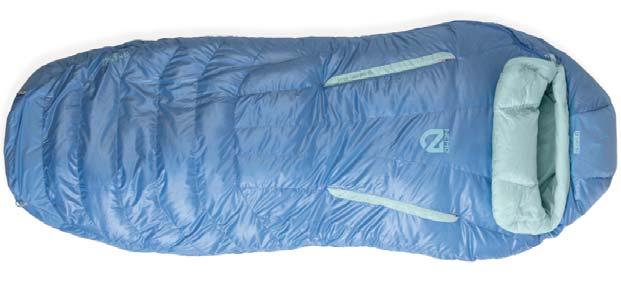
PFAS-free, RDS-certified ALLIED down fill. In addition to being made from recycled fabrics, each bag is 100% recyclable to stay out of the landfill at the end of its life.
While NEMO is the first to participate, the RENU:TRACE program is available to all of ALLIED’s partner brands.
“Recyclable and naturally biodegradable, down is one of the most sustainable insulations on the planet and plays an important role in a circular economy,” said Daniel Uretsky, President with ALLIED. “We launched our RENU:TRACE program in November, 2022, understanding the importance of ensuring animal welfare through traceable recycled down. We are excited to see the realization of RENU:TRACE’s potential within the NEMO Endless Promise program.”
Unless traceable down is both sourced and recycled in a closed loop, it is virtually impossible to ensure that any recycled down comes from purely ethical sources. Before RENU:TRACE, brands had to make a decision to either focus on post-consumer recycled material OR ethically treated animals.
For Spring 2024, NEMO’s top-selling down sleeping bags will be part of the fully recyclable Endless Promise Collection. The Disco™ and Riff™ Spoon™ shape sleeping bags, and the brand-new mummy-style Coda™ all incorporate technical features like next-generation Thermo Gill™ vents for fine-tuned temperature control; waterproof hood and footbox fabrics; and
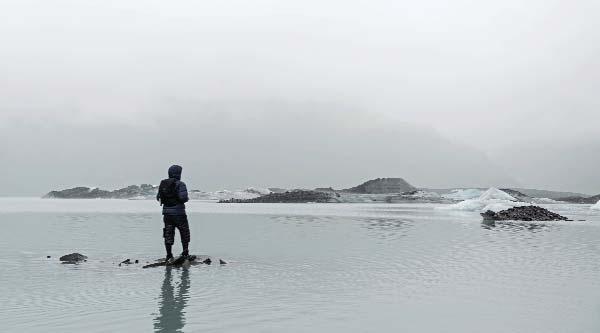
About ALLIED Feather + Down
Founded in Vernon, Calif. in 1987, ALLIED has been responsibly sourcing and sustainably processing down while simultaneously driving innovation within the insulation market for over 30 years. The family owned and operated business has earned the reputation as the largest, most reliable and most responsible supplier of raw material in the industry. Through the creation of programs such as the Responsible Down Standard (RDS) and TrackMyDown, ALLIED is committed to safeguarding the welfare of animals while protecting the environment. ALLIED remains a family-owned company with facilities worldwide and is proud to produce the highest quality down technologies demanded by the most discerning brands in the outdoor, hospitality and fashion marketplaces.
About NEMO
NEMO is a New Hampshire-based outdoor gear company known for creating award-winning products that are built to last, comfortable, and fun to use. Named one of Outside Magazine’s and Business New Hampshire’s Best Places to Work, NEMO has also been recognized as a small business leader for the environment by New Hampshire Businesses for Social Responsibility. NEMO’s reputation for design innovation across its product lines—tents, sleeping bags, sleeping pads, camp accessories, and furniture—is an outgrowth of its design philosophy to never bring anything to market that doesn’t offer a meaningfully better experience. NEMO’s team of designers and engineers are motivated by a passion for outdoor adventure and sustainability.
18 PAKISTAN TEXTILE JOURNAL - February 2024 Corporate News
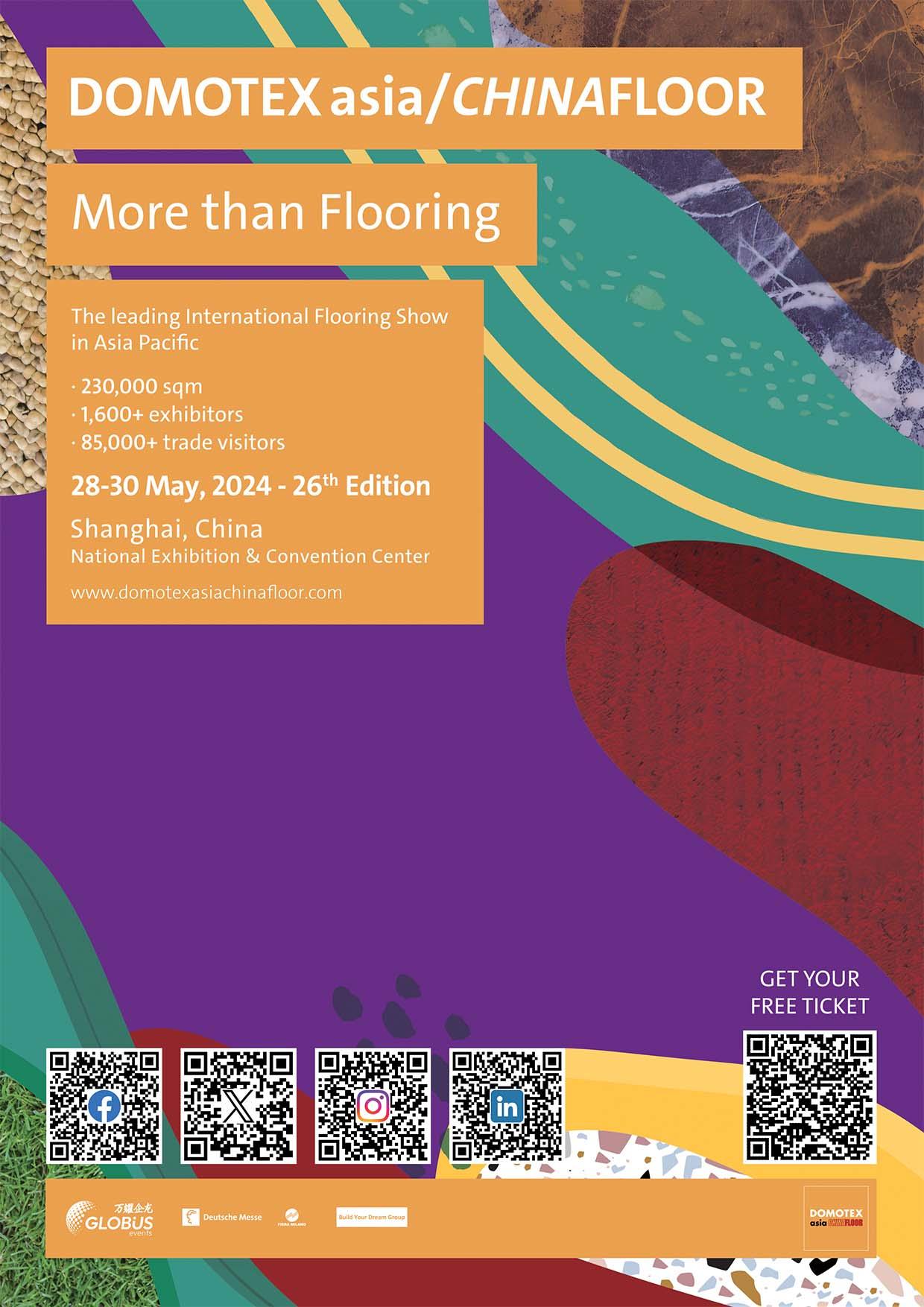
Navis TubeTex announces strategic partnership with Fibroline to revolutionize dry impregnation solutions in the U.S.
Navis TubeTex, a leading provider of advanced machinery solutions, is proud to announce its strategic partnership with Fibroline, a Lyon, France-based technology, and engineering company, which developed and patented revolutionary dry impregnation technologies. The Fibroline technology can impregnate powder form materials in a controlled manor throughout porous structures. Fibroline operates four business units including medical solutions, nonwovens & textiles, technical yarns, and composite materials.
Under the terms of the partnership, Navis TubeTex and Fibroline will launch “Fibroline USA”, a unique innovation Center dedicated to the promotion of Fibroline’s cutting-edge dry impregnation solutions for the U.S. market. Additionally, Navis TubeTex will be responsible for manufacturing and delivering the machinery required for U.S. customers, ensuring seamless access to Fibroline's groundbreaking technology.
"We are thrilled to announce this strategic partnership with Fibroline," said Will Motchar, President & CEO at Navis TubeTex. "Fibroline's expertise in dry impregnation technology aligns seamlessly with our commitment to delivering cutting-edge solutions to our customers.
This collaboration further demonstrates our strategic mission to provide sustainable solutions for coating, dyeing, and impregnation.
"We believe that this partnership with Navis TubeTex and the creation of Fibroline USA will significantly enhance our reach and impact in the U.S. market," said Jerome Ville, CEO at Fibroline.
"Navis TubeTex's reputation for excellence and commitment to innovation make them the ideal partner to introduce our dry impregnation solutions to a broader audience. We look forward to a successful collaboration that will revolutionize the industry landscape."

This partnership between Navis TubeTex and Fibroline represents a strategic alignment of expertise and resources, poised to elevate the standards of dry impregnation solutions in the U.S. market. The companies are committed to providing customers with unparalleled support, cutting-edge technology, and a seamless experience as they embark on this transformative journey together.



20 PAKISTAN TEXTILE JOURNAL - February 2024 Corporate News
Vickers Oils secures OEM approval from Lonati S.p.A., Italy
Vickers Oils is delighted to announce a significant milestone in our partnership with Lonati, as we have earned an Original Equipment Manufacturer (OEM) approval for our VICKERLUBE SOCK 46 needle oil.
Lonati, now officially recommends this product for use in their singlecylinder GOAL series, marking a successful collaboration that required dedicated efforts from Lonati, Lubrogamma, and Vickers Oils teams.
After rigorous testing and trials of VICKERLUBE SOCK 46 on Lonati singlecylinder machines, we received the much-anticipated approval earlier this year. This achievement is a testament to the dedication of our long-term Italian partners, Lubrogamma, who played a pivotal role in facilitating this partnership.
Lonati, a prominent name in the industry for over 70 years, is known for designing and manufacturing an impressive average of 8000 machines annually. They place a strong emphasis on delivering the highest quality textile machinery, underpinned by a commitment to research and development that ensures the use of cutting-edge products, technologies, and processes in their machines.
Vickers Oils shares these values, leading the industry in quality and assurance through our continuous focus
on research and development, technological leadership, quality control, and exceptional customer service.
About the product
Vickers Oils are committed to sustainable product development and
VICKERLUBE SOCK 46 meets the clearly defined criteria set out by the Global Organic Textile Standard (GOTS) and conforms to ZDHC MRSL Level 1 certification.
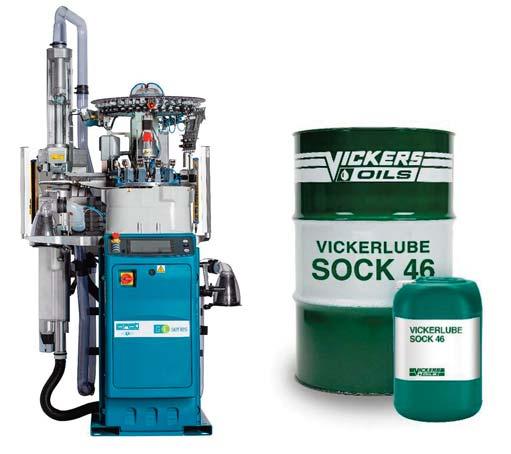
Sustainability for generations
VICKERLUBE SOCK 46 is a mineral based needle lubricant which is designed to meet the criteria for modern sock knitting machine technology.
VICKERLUBE SOCK 46 provides a high standard of lubrication as well as holding very good stability properties and having a high resistance to oxidation. The product is readily scourable and holds a well-balanced additive system meaning that it is fully compatible with all machine components. It can also be used with any yarn type including elastane, to produce the highest quality end product.
Vickers Oils is actively working towards several sustainability goals, with several already successfully realised. One standout achievement is a 39% reduction in gas consumption on site since 2020, despite a 40% increase in production output compared to previous years.
As part of Vickers’ ongoing sustainability journey, the company is determined to become net-zero for Scope 1 and 2 emissions by 2028, a goal coinciding with Vickers Oils’ 200th anniversary.
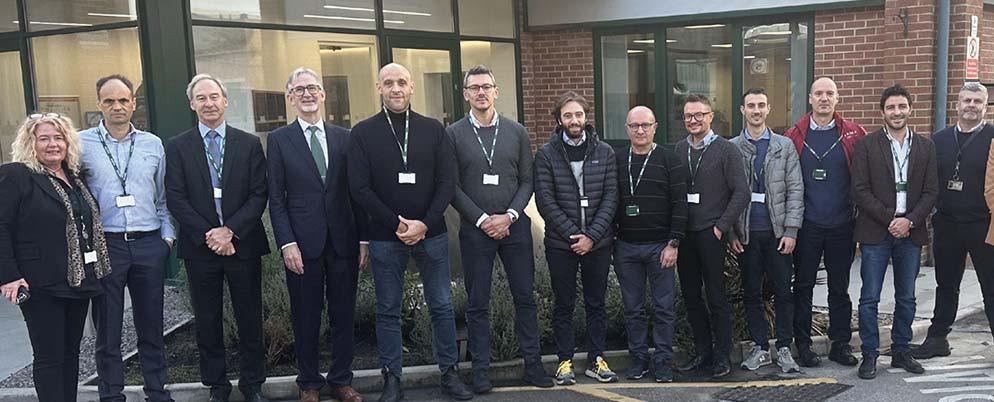
Corporate News 21
VICKERLUBE SOCK 46 now approved for Lonati single-cylinder machines
Team Lonati, Lubrogamma and Vickers Oils, at Airedale Mills, Leeds,
A Swedish win-win partnership for ACG Kinna and Värnamo
Continuous investment in the latest automation technologies – involving a long-standing and close cooperation with TMAS member ACG Kinna – has ensured family-owned Värnamo Sängkläder AB has retained its leading position in the production of high-quality bedding against heavy odds.
At the recent Heimtextil exhibition held in Frankfurt, Germany, from January 9-12, Martin Åhlander – the third generation CEO of Värnamo, which has specialised in high quality Nordic bedding since its foundation in 1951 – explained that his company is now the only producer of pillows, mattress protectors and quilts with manufacturing remaining in Sweden.
Investment
“Around fifteen years ago, our competition from Asia got very intense, as companies over there started exporting bedding products of very high quality at much lower prices than we could possibly produce conventionally in such a highcost country as Sweden,” he said. “Our solution was investment in the latest automated technologies, enabling us to be both flexible and to respond very quickly to the needs of our customers while cutting costs. This has proved to be a winning approach.”
Värnamo first started collaborating with ACG Kinna in the 1980s, initially with the installation of automated overlock stitching units for quilt production, followed by further moves such as bringing in-house polyester ball fibre filling technology into its plant with Nowo filling machines.
High volumes
In a more recent development, Värnamo became one of the very first companies to install an ACG Kinna robotic pillow line. With the ability to fill and finish some 3,840 pillows in an eighthour shift, this line configuration enables the completely seamless fibre handling, filling, sewing and packing of pillows.
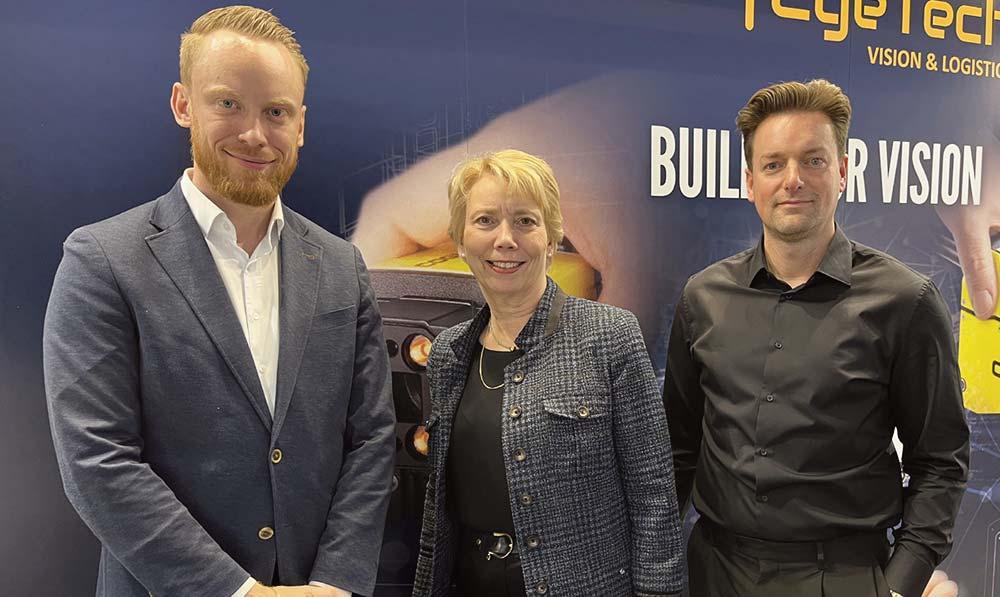
“We needed big volumes to enable such an installation, and they were forthcoming,” Åhlander said. “We are now producing and supplying eight times more pillows than we did before the installation, so we’re pretty happy about this decision.”
“Since the Covid-19 pandemic there have also been increasing problems with the logistics and cost of international shipping, leading to very long lead times for products from Asia on occasions, which has worked in our favour too,” added Martin’s mother and Värnamo’s sales manager Berit Åhlander Nilsson.
Complete process
Nowo – a long-established name in fibre filling technologies – became part of ACG Kinna at the end of 2021 and most recently, EyeTech, a young, Swedish developer of machine vision solutions for manufacturing, warehouse and factory automation has also joined the company.
“EyeTech exploits 2D, 3D and deep learning techniques for inspection, measuring, and robot guidance and is further enabling us to fulfil our promise of ‘complete process – one supplier,” explained ACG Kinna marketing and sales manager Tomas Aspenskog. “We now provide complete customised automation for the entire production chain – from the opening and weighing of the fibre to the packaging of the final products.
“With one partner, one installation and one freight delivery, each customer’s needs are individually covered, eliminating the headaches that arise from trying to coordinate multiple suppliers during a new installation. Värnamo is the flagship showroom for our automation capabilities and because they are so close to us, we often take other potential customers on visits to them, in order to fully demonstrate what is possible.”
“Our relationship with ACG Kinna is beneficial to both companies and we’re constantly exchanging ideas on both new process and technology improvements,” concluded Martin Åhlander.
Heimtextil 2024
“ACG Kinna had a very successful Heimtextil 2024, along with another TMAS member, Automatex, which is developing further technologies for home textiles with the emphasis on fully automated and highly integrated production lines,” said TMAS Secretary General Therese Premler-Andersson. “These technologies enable significant resource savings to be achieved, while making production in high-cost countries once more profitable. Cost effective manufacturing closer to the customer is also more sustainable, while enabling companies like Värnamo to change their cost structures but also increase their capacities and flexibility.”
22 PAKISTAN TEXTILE JOURNAL - February 2024 Corporate News
Pictured at Heimtextil 2024: Martin Åhlander and Berit Åhlander Nilsson of Värnamo, with ACG Kinna’s Tomas Aspenskog.

Archroma and Sanitized AG celebrate
a decade-long partnership and align strategically for enhanced collaboration in marketing,
Archroma, a global leader in color and specialty chemicals, proudly announces the continuation of its longstanding partnership with SANITIZED AG, marking collaborative success in the textile industry. This enduring alliance has been a cornerstone in driving innovation and setting industry standards, particularly for odor and hygiene management within the home textiles and apparel industry.
The textile landscape has witnessed the transformative power of the partnership between SANITIZED AG and Archroma, resulting in cutting-edge solutions and unparalleled quality across diverse applications. Archroma, recognized as the number one chemical supplier in its markets, further solidifies its position through the acquisition of Huntsman’s Textile Effects division in February 2023. “The acquisition enabled Archroma to broaden its global reach and technical expertise. Paired with our strong expertise in freshness additives, we enhance our marketing teams for joint communication, enhance the salesforce in the regions and strengthen our innovation force to drive the industry towards more sustainable solutions,” says Michael Lüthi, CEO of SANITIZED AG.
The partnership is a testament to the commitment to excellence and shared values that have defined the collaboration since its establishment in 1989 (with the Textile Division of Sandoz AG). "Our
sales and technology
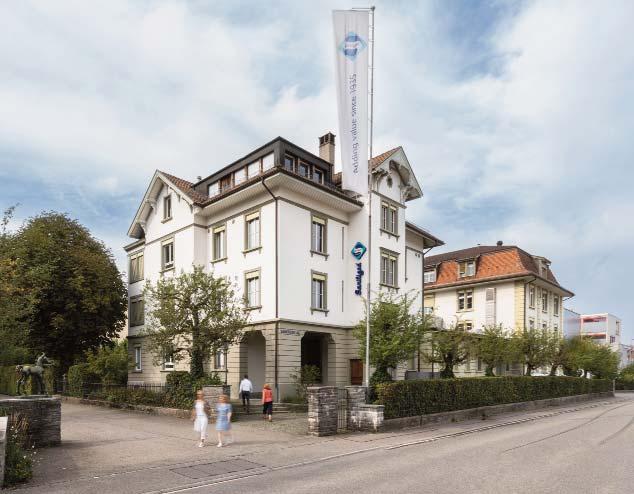
strategic partnership marks a pivotal moment for the global textile market. Both our company's commitment towards sustainability, innovation, and technical expertise is a perfect match," adds Dhirendra Gautam, Vice President Product Marketing and Strategy, Archroma Textile Effects.
With a focus on strategic development, Archroma and SANITIZED AG aim to reinforce mills and brands in elevating their products by adding the value of freshness to their products and providing high-quality effects. This
collaboration offers customers a flexible package, completed with application support through technical service and expertise, along with access to a strong product portfolio. Notably, the partners are ready to lead market trends and transformations, particularly in freshness finishes, ensuring their collective success in the dynamic landscape.
The commitment to this cooperation symbolizes the resilience and strength of this alliance, and it is poised for continued success in the years to come.
23

The search reopens for the SDC’s Global Colourist of the Year 2024
Long-time education provider Society of Dyers and Colourists (SDC) is delighted to announce that applications have now reopened for its Global Colourist Award.
The award recognises the professional achievements of those working across the wider coloration sector. Entries are open to colourists worldwide across the full gamut of specialisms including – but not limited to – textiles, dyes and pigments, leather, food and paint. Production dyers, shift dyers or printing colourists are all eligible.
A £1000 prize is on offer for the chosen recipient, with Advanced Colours and Chemicals Ltd in Rossendale UK kindly sponsoring the competition.
The winner will also be invited to the SDC’s all-expenses paid Day of Celebration and awards ceremony on 8 November 2024, where they will be presented with a certificate and their prize money.
Applications are welcomed up until the deadline of May and supervisors, managers or directors can also nominate
an employee. Alternatively, people can put themselves forward, on the proviso that a referee can confirm their suitability.
Ian Lewis, managing director of Advanced Colours and Chemicals Ltd, said: “This award represents recognition of outstanding achievement within the first decade of an individual’s career. There was an excellent array of nominations submitted for last year’s award, so the bar has been set very high!”
Dr Graham Clayton, chief executive officer of SDC, said: “The society is once again delighted to be reopening applications for the Global Colourist Award for a second year running. We’re looking for an outstanding individual who is able to demonstrate enthusiasm, commitment, excellent performance, competence, a contribution to team effort and strong general knowledge of the coloration industry.”
In addition to the event invitation and the prize money, the winner and their employer will be featured in the SDC’s quarterly members’ magazine, The
Colourist. Runners up and those who are highly commended will receive book vouchers to use for SDC’s books or nontextile coloration books, sponsored via other sources.
Highly commended winner for 2023, Hannah Rampley, teaching technician at the University of Manchester, said: “Being selected as last year's Global Colourist was completely unexpected and was a huge achievement for me, so thank you to the judges for selecting me as their winner and to the SDC for the award.
“It’s not often that technicians get recognised for the work that they do to educate and inspire students, so it was a huge honour to receive this accolade.
“I look forward to seeing how my future career in colour will develop and receiving this from the SDC has given me a huge confidence boost and made me really look forward to what will come next!”
Judging of the entries will take place in June, with interviews scheduled in early September. The winner will be notified in mid-September.
24 PAKISTAN TEXTILE JOURNAL - February 2024 Dyes and Chemicals
Personnel changes at BRÜCKNER Textile Technologies
Personnel changes in Production and Materials Management as well as in Sales of New Machines
Mr. Raghav Kuberan took over responsibility for production and materials management at Brückner Textile Technologies GmbH & Co. KG in Leonberg and Tittmoning as Vice President Operations. On April 1, 2024, he will also assume responsibility for IT at both locations and will manage these three areas as Managing Director in the future. He will take over from Mr. Rüdiger Gieske, who is retiring after more than 25 years as COO.
On January 1, 2024, Mr. Alexander Mandel succeeded Michael Tuschak as Sales Director at Brückner Textile Technologies GmbH & Co. KG in
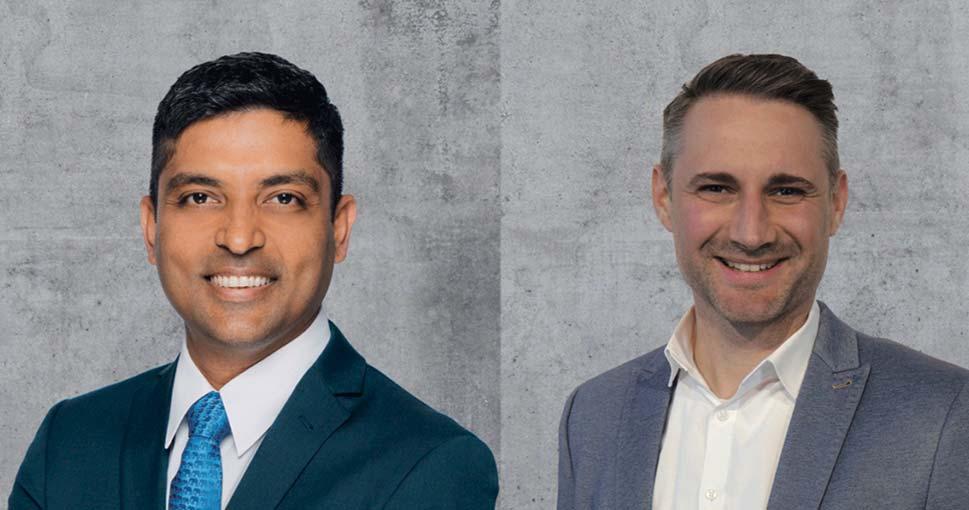
Leonberg, Germany. He has been General Manager of Brückner Sales & Services Shanghai since January 1, 2020. He will continue in this role in the future. Mr.
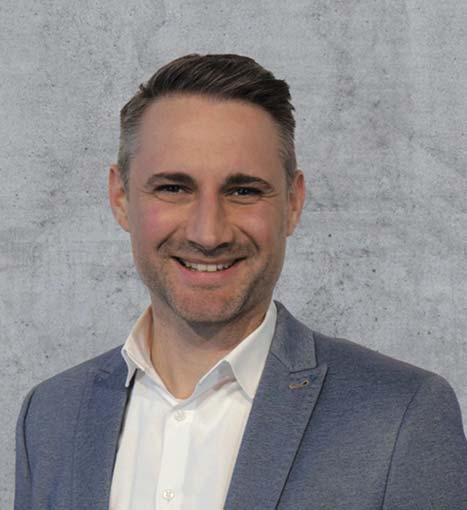
Mandel
Karl Mayer Türkiye appoints Toros Greenhalgh as new general manager
The KARL MAYER GROUP established its own site in Bursa, Türkiye, thus increasing its presence in one of its most important markets. KARL MAYER TURKEY will meet increasing customer demands for after-sales service, spare parts (Care Solutions), and academy, in the sectors of warp knitting and warp preparation, while KARL MAYER’s longstanding regional representative ERKO focuses on machine sales.
Toros Greenhalgh was appointed General Manager of KARL MAYER TURKEY on February 1st of this year. Holding a degree in mechanical engineering and materials science from the University of Birmingham, he comes with vast global experience in the fields of industrial plant construction management, renewable energy technologies, and the distribution of medical devices. Now in his late thirties, for the past seven years he has been active in the sector of textile machinery
through ERKO with particular focus on KARL MAYER machine sales, service, and spare parts.
In his new position, he is focussing on enhancing the after-sales support experience for customers.”I plan to streamline and optimize our service processes, ensuring efficient response times and topnotch customer satisfaction. Additionally, I aim to foster a collaborative and motivated team to deliver excellent support and ultimately strengthening our customer relationships”, says the General Manager.

He will be able to build on his extensive professional experience and the support of the KARL MAYER GROUP for
the tasks ahead. In particular, ongoing training programs and clear communication from the corresponding departments at headquarters will provide effective assistance for Toros Greenhalgh and his team.
Personalia 25
previously worked in the company’s design and project management departments for over 15 years.
Raghav Kuberan (Vice Director Operations) and Alexander (Sales Director)
Toros Greenhalgh; Karl Mayer Turkey General Manager
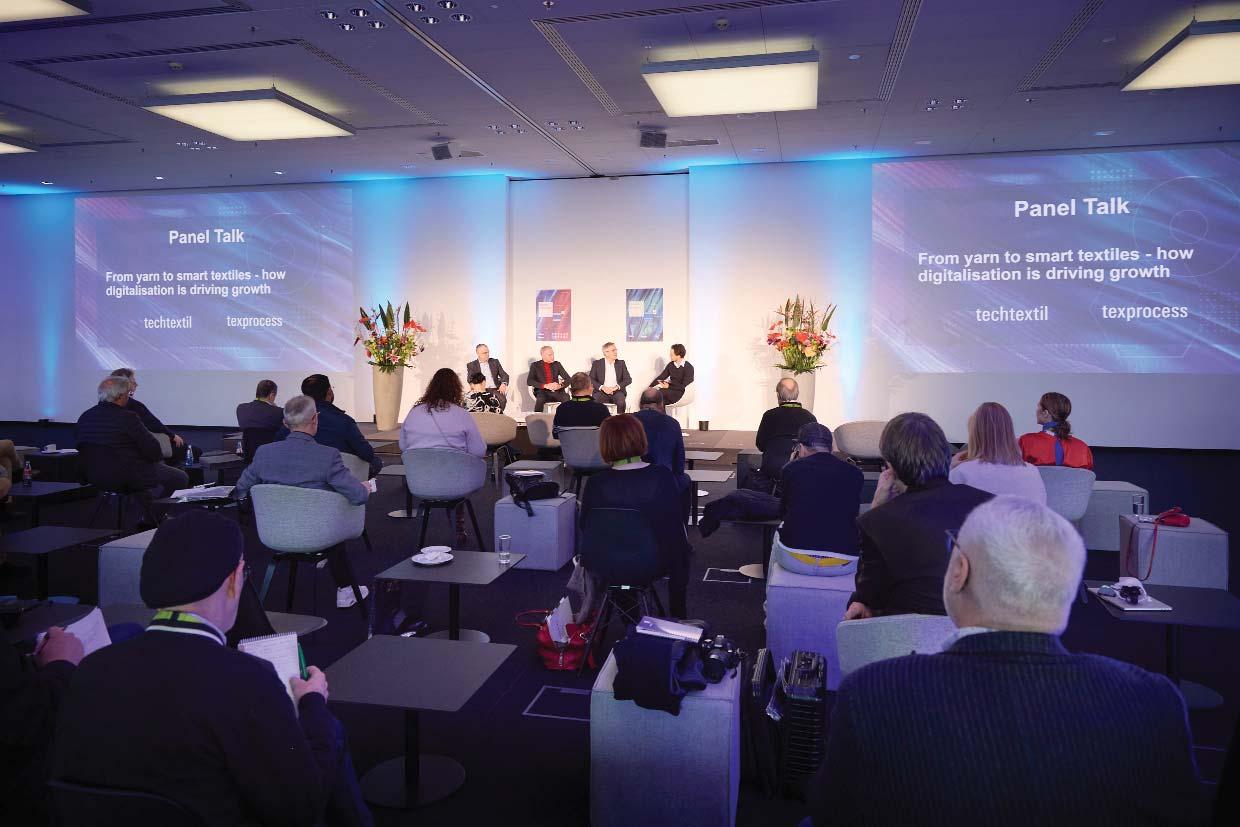
How
digitalisation
is driving
growth:
panel discussion on the future viability of the textile industry with reference to Techtextil and Texprocess
How is digitalisation affecting the textile industry in terms of innovativeness?
How can digitalisation be used to meet the challenges currently facing the sector? What are the latest developments? What does the digital future of the textile industry look like? In a panel discussion ahead of this year’s editions of Techtextil and Texprocess, experts considered these and other questions and previewed the trade fairs from 23 to 26 April 2024.
Digitalisation has by no means carved out a place for itself in the work processes
2024
of many companies. A study conducted by the German Economic Institute in 2022 revealed that, for example, only 31 percent of companies in Germany are able to use data efficiently1. However, it is essential for companies to improve their digital infrastructure because legal regulations, such as the EU strategy for sustainable and circular textiles and the associated digital product passport, require a corresponding level of digitalisation. At the same time, digitalisation helps to meet the sustainability requirements of customers and partners, for example, by improving
supply chain transparency or resource calculation. Thus, companies wanting to remain competitive and produce efficiently and flexibly, can no longer avoid digital technologies. Digitalisation offers solutions to many of the challenges currently facing the industry.
Techtextil and Texprocess support companies on their journey into the digital future. At these leading international trade fairs, over 1,600 exhibitors from around 50 countries are showcasing their latest developments and innovations. There, participants can find the right business partners and digital
26 PAKISTAN TEXTILE JOURNAL - February 2024
solutions to suit their individual needs. The extensive programme creates the ideal setting for discussions with the industry and experts.
"The sectors have an enormous potential for innovation, especially in the field of digitalisation. We can only realise this through a joint international exchange of information. The global industry meets at Techtextil and Texprocess. Dialogue, knowledge transfer, unique innovations and multifaceted solutions strengthen companies on their journey into the future", said Olaf Schmidt, Vice President Textiles & Textile Technologies, Messe Frankfurt.
Panel talk: From yarn to smart textileshow digitalisation is driving growth
In the panel discussion, Prof. Thomas Gries, Director of the Institute of Textile Technology (ITA) at RWTH Aachen University, Elgar Straub, Managing Director of VDMA Textile Care, Fabric & Leather Technologies, and Olaf Schmidt, Vice President Textiles & Textile Technologies of Messe Frankfurt, offered insights into digitalisation in the textile industry from a variety of perspectives. The discussion was chaired by Zackes Brustik.
Meeting challenges with digitalisation
Digitalisation helps companies meet the challenges currently facing their industries and remain competitive. Companies can take advantage of digital developments to counter raw material and labour shortages, energy costs or increased sustainability requirements and produce more efficiently, faster, more flexibly, more transparently and more costeffectivel.
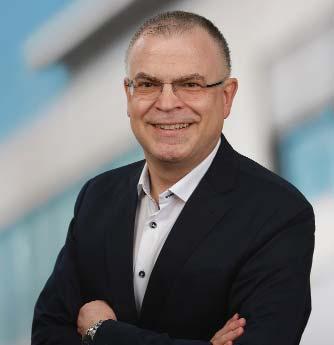
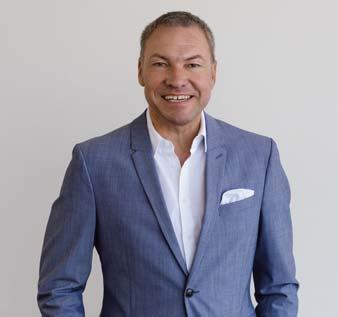
"Constantly changing consumer and legislative requirements, as well as labor shortages and more difficult trading conditions due to geopolitical changes, are constantly posing new challenges for garment manufacturers and processors of technical textiles. The manufacturers of machines, systems and processes for processing textile materials offer the necessary solutions. Through digitalisation and automation for increased flexibility, sustainability, quality and increased product potential, we help our customers in their production and at the same time ensure a boost in innovation," explained Elgar Straub.
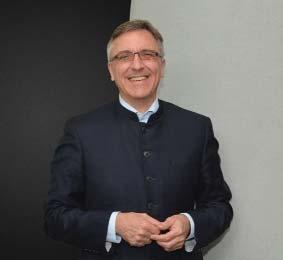
Research and the industry are promoting innovativeness
Although many companies have already digitalised individual stages in their process chains, it is essential that the entire textile value chain be digitalised and all gaps closed if the industry is to realise its potential to the full.
“Resilient and sustainable value chains are vital for the viability of the textile industry in the future. And the
basis for this is the digitalisation of all process stages. To this end, researchers and the industry must work closely together. New forms of cooperation, such as Open Innovation guarantee speed and efficiency”, said Prof. Thomas Gries.
Digitalisation opens up new potential
Digitalisation offers numerous new opportunities for technologies and textile products. And the latest developments will be on show at Techtextil and Texprocess. There, international exhibitors present their latest products. The spectrum ranges from manufacturing technologies, via textile processing machines, fibres, yarns and nonwovens, to functional and smart textiles. The variety of industries in which the products are used is unique.
From the medical and mobility sectors to the construction industry, they are used in all areas of application. Moreover, digitalisation is significantly advancing the textile industry: not only can manufacturing and processing procedures be made more efficient, but smart products can also create new added value.
Techtextil and Texprocess 2024: Up-todate on the subject of digitalisation
The comprehensive programme gives visitors the chance to update their knowledge. For example, the lectures of the Techtextil and Texprocess Forum spotlight aspects of digitalisation and production technology, as well as intelligent textiles, digital textile printing and delivery chains.
The extraordinary degree of innovativeness is also reflected by the Techtextil and Texprocess Innovation Awards. The categories of New Technologies and Digitalisation and Digitalisation and AI focus specifically on the latest developments in the field of digitalisation.
The events Techtextil and Texprocess will be held from 23 to 26 April 2024.

Fairs and Exhibitions 27
Olaf Schmidt, Vice President Textiles & Textile Technologies, Messe Frankfurt.
Prof. Thomas Gries, Director of the Institute of Textile Technology (ITA) at RWTH Aachen University
Elgar Straub, Managing Director of VDMA Textile Care, Fabric & Leather Technologies,
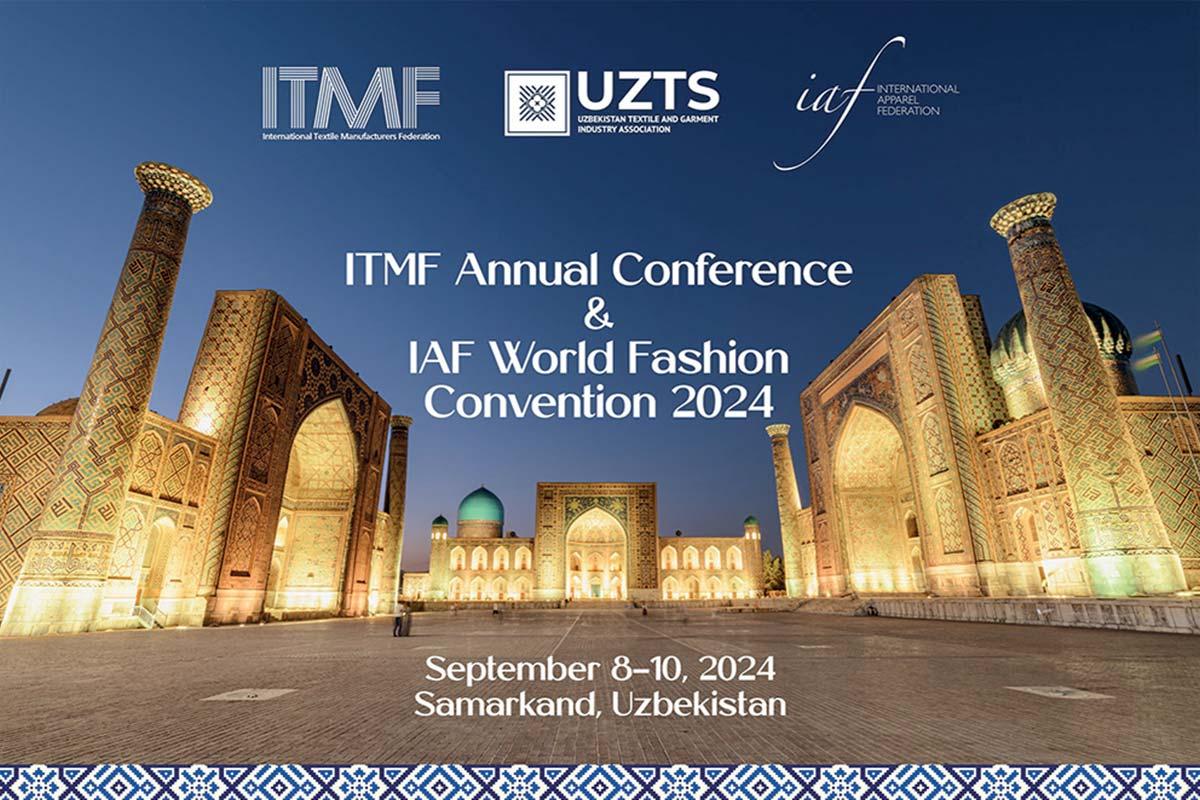
Giltex LLC (Azerbaijan) joins ITMF as Corporate Member
GILTEX LLC is the only company built with a vertical integration system, not only in Azerbaijan but also in the entire South Caucasus region. The company covers the textile production flow and consists of a spinning factory, two weaving factories, two dyeing factories, a garment factory, and a medical masks factory.

Mr. Christian Schindler, Director General of ITMF, stated that “ITMF is delighted to welcome Giltex in ITMF. That for the first time a fully integrated company from this region of the world joins ITMF shows that the textile business is truly a global industry. The desire to join an international network like ITMF that represents the entire textile value chain is an indication that companies around the world are looking for relevant information and networks. To successfully navigate these challenging times and to prepare for the future it is indispensable to have access to relevant facts and figures about the industry and to identify potential partners to collaborate with. ITMF is offering such a platform.”
Mr. Kanan Budagov, Head of Procurement Dept. of Giltex LLC, pointed out that “ITMF is a unique global organisation that brings together likeminded industry people from around the world. It provides a special environment that allows to discuss pressing issues and
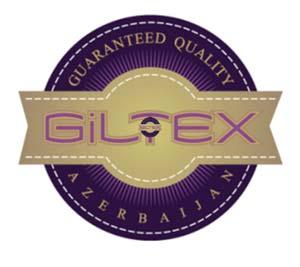
trends that help to better understand the ongoing and constantly changing dynamics in the global textile industry. In today’s world companies must develop long-term strategies based on reliable information. ITMF offers such information as well as provides access to a unique network of industry experts. To learn from the industry and to discuss with the entire textile value chain – from fibre producers to producers of home textiles and garments – how to overcome the challenges and turn them into opportunities is crucial.”
28 PAKISTAN TEXTILE JOURNAL - February 2024
63nd Dornbirn GFC Global Fiber Congress 11 – 13 September 2024, Dornbirn Austria
The experiences, impressions and feedback from the last Dornbirn GFC form the basis for planning the next Global Fiber Congress. This will take place in its usual form from September 11 - 13, 2024 in the Kulturhaus Dornbirn, Austria. The presentation topics for the 63rd Dornbirn GFC 2024 are unu-sual, new and innovative. The submission deadline for technical presentations is February 15, 2024 on the newly developed registration platform:
Call for Papers 2024:
The Dornbirn GFC 2024 has set itself the goal of meeting the requirements of the fiber industry. Fast-paced developments, technical challenges and, last but not least, the extensive legal requirements are incorporated into the program design. Therefore, the Dornbirn GFC team developed an innova-tive categorization and division of the subject areas in cooperation with the Programme Committee members.
Presentations can be submitted in these categories:
Fiber Innovations
Circular Economy & Recycling & Sustainability
Energy Solutions
Emerging Technologies
Fiber Innovation:
The fiber innovation category continues to be the main focus of the Dornbirn GFC and includes all applications such as apparel, home textiles, automotive, technical textiles, etc.
Nonwoven applications are also part of this category, as they have a high innovation potential. Presentations in the areas of natural fibers such as cotton, wool and others will enrich the holistic approach to fibers. Raw materi-als for man-made fiber production such as pulp and precursors for synthetic fibers expand the fiber innovation category. In summary, presentations can be submitted in the areas of biopolymers, bio-materials,
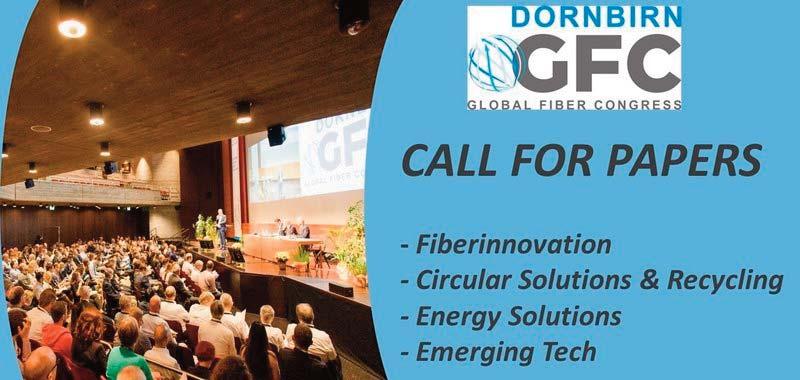
new process technologies, natural fibers, surface modification, raw materials, e.g. cellu-lose, polyester, etc.
Circular Economy & Recycling & Sustainability:
Due to the increasing awareness of climate change, the implementation of the "Green Deal" and the set goals for sustainable development, this topic has gained enormous importance over the years. The challenges facing the fiber industry are enormous. These concern the sustainability of textiles and nonwovens, new and future sorting and separation technologies and mechanical and chemical recycling.
Energy solutions:
The energy factor is becoming increasingly important for the entire value chain in terms of costs and sustainability. The Dornbirn GFC 2024 focuses on energy innovations. Fibers are used in the areas of energy generation, energy storage and energy efficiency.
Up-and-coming technology:
The topics of digitalization, artificial intelligence, transparency and traceability of fibres are becoming increasingly important in the value chain. New technologies, new approaches and new ways of think-ing in the fiber industry find their place in this category.
The Dornbirn GFC is a great opportunity for innovators to meet the
key players in the fiber and tex-tile industry. With its focus on innovation and research, the congress offers an inspiring environment for high-quality contacts. A total of 25 innovative companies and start-ups – from the 1st – 3rd or later stage - can apply to be part of the 4th Dornbirn GFC Innovation Days.
Which innovative technological solutions have already established in the market?
Do you recognize industry trends and would you like to involve your innovation?
Can you make a contribution with your innovation and support the fiber and textile industry with sustainable solutions?
Which research activities are currently particularly promising?
If you can answer one of these questions with “yes”, then the 4th Dornbirn GFC Innovation Days is the right place for your company. Take the opportunity for the benefit of the future and become part of the Dornbirn GFC community.
This offer is on available to innovators:
Touch Point in the Foje of the Kulturhaus
Lecture of 20 minutes - Free conference ticket
Networking with international fiber producers, processors, machine builders
Invitation to the gala evening
Invitation to the speakers' evening
Fairs and Exhibitions 29


DOMOTEX 2024: A Gathering of Global Industry
DOMOTEX, the premier trade fair for carpets and floor coverings, once again brought together exhibitors and attendees from around the world in Hannover, Germany. The event served as a hub for sharing insights into the latest products and trends shaping the industry.
Keynote Theme: Floored By Nature
The overarching theme of sustainability took center stage for the second time, emphasizing the importance of eco-friendly practices such as recycling, resource conservation, and environmental protection.
Sustainable Flooring Solutions
Exhibitors showcased a diverse range of sustainable and environmentally friendly floor coverings.
Li & Co introduced 'LICO DENIM FLOOR', a unique solution incorporating waste from the fashion industry along with recyclable materials like cork.
Companies like Amorim, GRANORTE, and ZIRO specialized in flooring made from natural cork, known for its durability and insulation properties.
Alternatives to PVC-based Products
Gerflor promoted sustainable vinyl and linoleum options, along with their "Second Life" recycling program.
CFL Flooring introduced 'NovoCore' and 'Tenacity Eco-Composite Flooring' as alternatives to less sustainable oil-based products.
Classen presented 'CERAMIN', a PVC-free flooring option using a blend of natural minerals and polypropylene.
Inspired by Nature: Trends in Flooring Design
Many exhibitors focused on achieving a natural aesthetic in their collections, drawing inspiration from wood and stone finishes.
Natural Look and Feel
SWISS KRONO expanded its ‘COREPEL EVOLUTION’ line with the 'COREPEL EVOLUTION PURE' collection, combining real wood surfaces with waterproof cores.
Kronospan utilized real wood veneer for its 'Organic Veneer Parquet', offering a cozy atmosphere with brushed oak surfaces.
Floorify and mFLOR showcased PVC flooring with designs inspired by natural elements like wood and slate.
Innovations for Walls and Interior Finishing
Wall coverings experienced a resurgence, not only as design elements but also for their contribution to room acoustics and overall comfort.
Acoustic Solutions
MeisterWerke introduced 'Acoustic Sense WOOD', combining real wood and high-quality felt to absorb sound.
Neuhofer's 'FN Acustico HEXAGO' offered hexagonal acoustic elements made of polyester felt for wall decoration.
Li & Co presented 'LICO Hydro HeatWall', providing acoustic effectiveness along with warming properties.
Comprehensive Interior Solutions
The RETAILERS' PARK featured a range of interior finishing products including paints, varnishes, wallpapers, and subfloors from various exhibitors.
30 PAKISTAN TEXTILE JOURNAL - February 2024
Carpet manufacturers like Lano, Edel Carpets, and Vorwerk complemented the offerings in the RETAILERS' PARK.
Sustainability in Carpets and Rugs
The Carpets & Rugs segment highlighted the growing emphasis on sustainability and environmental responsibility.
Handmade Carpets: Artistic and Eco-friendly
Handmade carpets showcased at DOMOTEX stood out for their use of renewable and natural materials, contributing to sustainability.

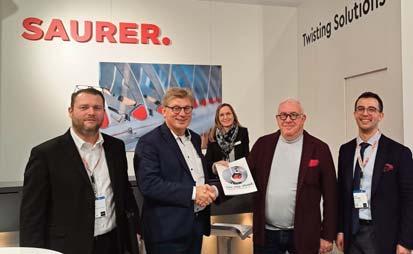
Manufacturers like Jaipur Rugs and Paulig prioritized fair trade practices and the elimination of child labor.
Eco-friendly Materials and Processes
Merinos presented the 'RECYCLE' collection, made from 100% recycled polyester, demonstrating a commitment to environmental conservation.
Oriental Weavers introduced the 'Elixir' collection, utilizing natural dyes extracted from plants and fruits for environmentally friendly and non-toxic carpets.


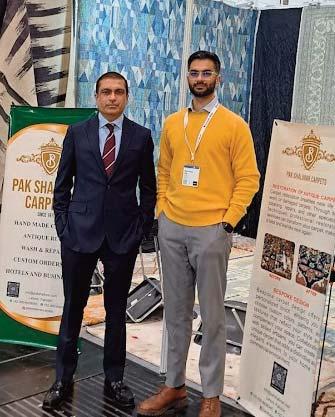
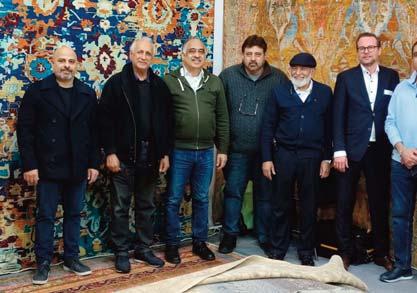
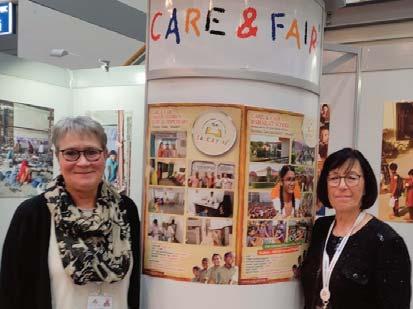
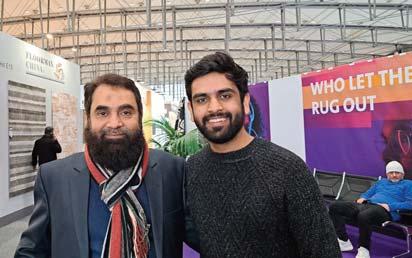
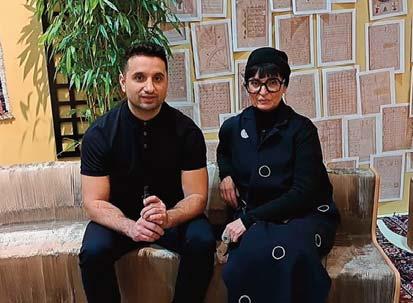
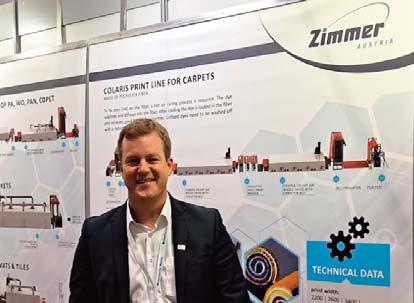

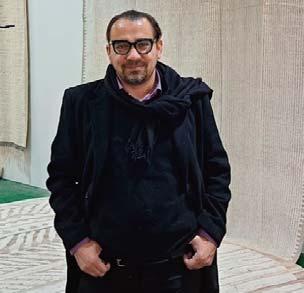

Fairs and Exhibitions 31

Naia™ Renew receives Global Recycled Standard certification
The third-party certification verifies recycled content in textiles.
KINGSPORT, Tennessee — Eastman Naia™ Renew cellulosic fiber received Global Recycled Standard (GRS) certification on December 13. This certifies Naia™ Renew recycled content, chain of custody, social and environmental practices, and chemical restrictions.
Textile Exchange, a global non-profit for sustainable change in the fashion and textile industry, owns the GRS certification process. Certification is achieved through an audit from independent third-party certifying body SCS Global Services and applies to the full supply chain. It provides increased traceability, environmental principles, social requirements, chemical content and labeling.
"We’re honored to add GRS certification to our list of Naia™ certifications that support our sustainability goals,” said Claudia de Witte, sustainability leader for Eastman textiles. “Third-party certifications help us build our brand trustworthiness. It’s our goal to make sustainable textiles available to all, and we do that by building trust with our customers and collaborators. This certification adds even more credibility to our fibers and our sustainability story, which we’re proud to share.”
In June 2023, Textile Exchange made an important announcement regarding its Alternative Volume Reconciliation (VR2)
policy, which broadened the range of chemical recycling technologies eligible for mass balance. Notably, this expansion now encompasses gasification, the technical description of Eastman’s molecular recycling technology known as carbon renewal technology. Eastman collaborated with Textile Exchange and other stakeholders to educate the industry about the value and contribution of its molecular recycling technology. This policy update is critical for Eastman because it allows the company’s innovative material-to-material recycling technology to be audited for GRS certification.
Molecular recycling technologies at Eastman break waste down into its molecular building blocks allowing the materials to be used in new materials that are indistinguishable from non-recycled materials. By expanding the GRS to include gasification, the global standard now allows for a broader approach to making sustainable textiles accessible to everyone.
“Collaboration is one of Eastman’s greatest strengths,” said de Witte. “That’s why we continually engage with industry leaders and associations to help shape the future of sustainable textiles. We’re thrilled Textile Exchange made the decision to expand the scope of VR2 to include gasification. This is a big win for Naia™ and the future of textiles sustainability.”
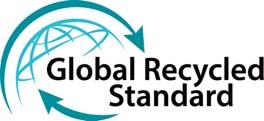
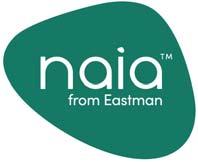
In recent years, the textiles industry has shifted toward circular materials to help tackle one of the largest challenges facing the planet: waste pollution, especially textile waste. Eastman molecular recycling is complementary to mechanical recycling and is a solution for hard-to-recycle waste material, including textiles, which are impacted by factors like fiber blends, chemicals and additives.
Naia™ Renew is produced from 60% sustainably sourced wood pulp and 40% GRS-certified* waste materials that would otherwise be destined for landfills through Eastman's patented molecular recycling technology. The certification verifies the processes of chemical recycling, concentrating, extrusion, and spinning of the undyed yarns and fibers.
For further information, please contact iTextiles
Email: info@itextiles.com.pk
Website: www.itextiles.com.pk.

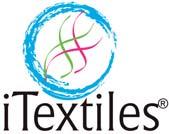
32 PAKISTAN TEXTILE JOURNAL - February 2024

Definitions, standards and specific industry knowledge…Uster Technologies covers the whole story of recycled textile materials in its application report Sustainability Bulletin No. 1. The publication is part of Uster’s commitment to support the use of recycled materials along the entire textile value chain.
Many consumers today already expect recycled materials to be used in the clothing and home textiles they purchase – and this is clearly pushing innovation throughout the industry. However, there is a degree of uncertainty about what this trend means for yarn producers, both economically and technically. The first Uster Sustainability Bulletin outlines the challenges and presents the solutions.
Starting positions and results
Upstream in textile processing, spinners are often asked to produce yarns with recycled materials, with comparable quality to those from new fiber. “The use of mechanically recycled fibers in spinning has specific quality considerations. Such fibers have a higher short-fiber and nep content and may often be colored, particularly if post-consumer material is used,” says Gabriela Peters, Head of Product Management Laboratory Systems at Uster Technologies and one of the bulletin’s authors. It is also true that recycled yarns have limitations in terms of yarn fineness. But thermo-mechanically
Know-how for a better world with recycled textiles
Uster Technologies issues practical guidance in its new Sustainability Bulletin
and chemically recycled fibers and filaments are thought to present fewer processing challenges, as they are expected to have similar processing behavior to new fibers and filaments from synthetic and viscose materials.
The Sustainability Bulletin is focused on the more problematic recycled raw material. For example, it deals with the potential difficulties in the various process steps in spinning. The aim is to bring clarity and understanding about mechanically recycled materials and provide ideas on how they can be processed.
Studies have shown that yarns and fabrics produced from recycled fibers may be better for applications where the strength of yarns and fabric is less critical, but where control of unevenness, imperfections, and handle properties is required. Consequently, recycled fibers are most suitable for manufacturing casual clothes such as T-shirts, sweatshirts, and sleepwear. In China, tons of denim jeans trousers are already made of mechanically recycled fibers.
The guardian of quality
Uster Technologies sees its role as knowledge provider, setting definitions and standards, to accelerate this ongoing industry transformation. As a long-term trusted supplier of quality control systems to the textile manufacturing industry, Uster assists the industry by evaluating test results. This helps to guide spinners
on the current possibilities for dealing with recycled material in its many forms.
The Uster Statistics benchmarks will be helpful in the requirement to measure, control, and improve the quality. The new edition, launched at ITMA 2023, includes for the first time a section for recycled yarn. The Uster Statistics 2023 edition also features an extended range of fiber data, supporting sustainability goals. It’s a fact that an ideal fiber mix – with or without recycled content – must also meet quality requirements for minimal waste.
Uster understands its function as a kind of neutral arbiter, reporting what quality can be expected when processing different recycled materials. Uster knowhow on using recycled raw material is collected in the Sustainability Bulletin No. 1 and ready to download free of charge at www.uster.com/sustainabilitybulletin.
Cooperation for a sustainable future
Using recycled materials effectively and efficiently will be a key to success in future years. To achieve acceptable results and profitability, all sections of the textile chain will need to cooperate and learn from each other, to avoid collective failure. “At Uster Technologies, we firmly believe it’s a great opportunity for textile manufacturers to lead this momentous industry transformation, as recycled fibers are the raw material of a sustainable future to be processed into new products,” says Peter.
33 Features
Finishing lines for carpets and textile floor coverings - Brückner offers the widest range of products in this field
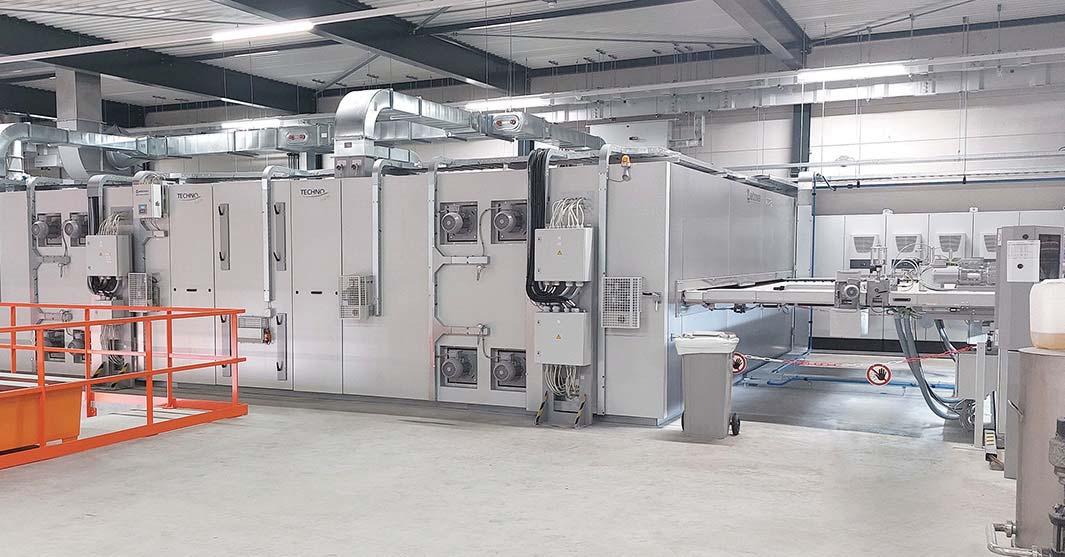
BRÜCKNER has been known worldwide for decades for its high-quality lines for textile finishing. The company also offers a wide range of lines for the carpet industry. For more than 70 years customers around the globe have been working with BRÜCKNER lines for coating, drying and finishing a wide variety of floor coverings.
Numerous lines for the production and finishing of carpets and textile floor coverings are in operation worldwide. In recent years, a wide range of lines have been supplied for finishing tufted and woven carpets, as well as thermofusion ovens for needle felt and back coating lines for artificial turf.
BRÜCKNER lines offer the right unit for every process. Whether full bath impregnation for aqueous media, onesided full-surface or dot application of latex and acrylate pastes, foam or paste application via various roller and knife blade systems for backing consolidation, application of laminating adhesive for a
secondary backing and laminating units for wet laminating of the secondary back - BRÜCKNER has the right solution for every technology.
In addition to the application units, the portfolio naturally also includes corresponding drying systems. These include, for example, the SPLIT-FLOW dryers or the thermofusion ovens from the SUPRA-FLOW product line, which are also used for drying and heat-setting after digital printing or dyeing. The DUOTHERM dryer has been specially developed for drying coated floor coverings. It is particularly suitable for thermal treatment processes that require temperature separation between the upper and lower air.
Like all BRÜCKNER lines, the DUOTHERM dryer can be heated with different media: direct or indirect gas heating, thermal oil heating, steam heating in low- or high-pressure versions, electric heating or hybrid versions. A recently delivered BRÜCKNER line for drying recyclable floor coverings was
equipped with a completely electrically heated DUO-THERM dryer. By operating the dryer with green electricity, the carpet manufacturer now has the option of CO2-neutral production of fully recyclable floor coverings.
The development of sustainable and efficient products is a fundamental focus for BRÜCKNER. This is primarily about minimizing the CO2 footprint, reducing resources and protecting the environment. This also includes heat recovery and exhaust air purification systems from the ECO product family, which are available in various sizes and different combinations. They can be supplied for new machines as well as retrofitted to existing lines from a wide range of manufacturers. Depending on the process and type of fabric, the ECO products contribute to a significant reduction in emissions and an increase in energy efficiency. Replacing dryers in existing lines can also contribute to a significant increase in efficiency and productivity.
Features
34 PAKISTAN TEXTILE JOURNAL - February 2024

Lenzing once again on CDP’s prestigious Triple A List, confirming sustainability leadership

The Lenzing Group, the world’s leading supplier of specialty fibers for the textile and nonwovens industries, has once again been recognized for leadership in corporate transparency and performance on climate change, forests and water security by global environmental non-profit CDP, securing a place on its annual “A List”. Based on data reported through CDP’s 2023 Climate Change, Forests and Water Security questionnaires, Lenzing is one of the only 10 companies that achieved a triple “A” – out of over 21,000 companies scored and for the third year in a row.
CDP is considered the gold standard of international environmental reporting. Fully aligned with the Task Force on Climate-Related Financial Disclosures (TCFD), CDP holds the largest environmental database in the world, and CDP scores are widely used to drive investment and procurement decisions towards a zero carbon, sustainable and resilient economy. In 2023, over 740 financial institutions with over USD 136 trillion in assets requested companies to disclose data on environmental impacts, risks and opportunities through CDP’s platform. A record-breaking 23,000 companies responded, representing two thirds of global market capitalization.
“I am very grateful and proud of what the employees of the Lenzing Group do every day to further expand
our leading position in the field of sustainability. Once again being on CDP’s Triple A List as one of the only 10 companies in the world is strong evidence that we are taking the right measures,” said Stephan Sielaff, CEO of the Lenzing Group. “Lenzing is working tirelessly to make the industries in which it operates even more sustainable and to drive the transformation of the textile business model from linear to circular. For this transformation to be successful, further efforts are required from the entire industry.”
Sherry Madera, CEO of CDP, said: “Congratulations to all the companies on CDP’s A List, and those companies that started or accelerated their journey towards environmental transparency in 2023 – we saw a 24 percent increase of disclosures last year and that trajectory is to be applauded. It is only by laying the groundwork of disclosure that companies can show they are serious about the vital part they play in securing a net-zero, nature-positive future.
Earning a place on the A List is about more than the score. It’s an indication of high quality, complete data that equips companies with a holistic view of their environmental impact, serves as a baseline for transition plans and –crucially – enables them to follow through on their ambitions. As we move deeper into the Decade of Action, and as CDP continually raises the bar for what represents environmental leadership, the
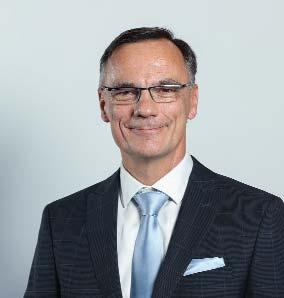
work of A List companies is never complete. We look forward to seeing all companies turn their commitments into further and more meaningful and effective action.”
As part of its strategic principles and in its defined core areas such as decarbonization, sustainable raw material sourcing and responsible water management, Lenzing sets itself ambitious sustainability targets that contribute directly to some of the United Nations Sustainable Development Goals (SDGs) and takes concrete measures to achieve these goals. For example, Lenzing pays attention to exclusively sustainable sourcing of wood and dissolving wood pulp, optimal use of its raw materials, continuous improvement of energy efficiency and investments in renewables. Lenzing is also driving the transformation of the industry towards a fully circular economy.
35
Stephan Sielaff, CEO Lenzing Group
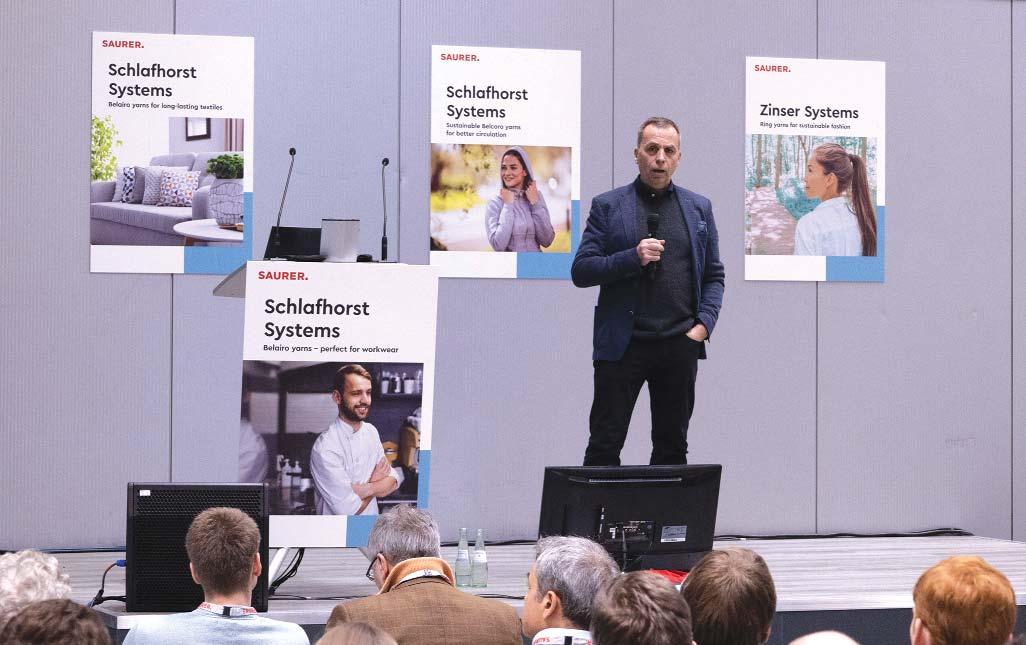

Saurer OpenHouse 2024: A platform for knowledge sharing and innovation
The textile industry is constantly evolving, and industry leaders must stay updated on the latest trends and innovations. To achieve this, Saurer, a leading textile machinery company, hosted for the first time the OpenHouse 2024 event on January 12 and 13. This new format brought together industry experts from academia, consulting, and industry, showcasing the latest advancements in textile technology and fostering collaborative discussions on prevailing megatrends.
The event featured an impressive lineup of esteemed speakers, including Prof. Chokri Cherif from Dresden Technical University in Germany and Prof. Thomas Gries from RWTH Aachen University in Germany, who shared their expertise and insights into sustainable business opportunities and future developments in the industry. Dr Uwe
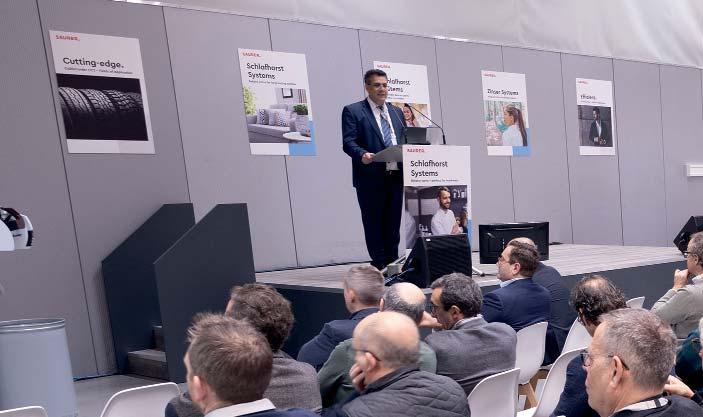
Rondé, Group CEO of Saurer, presented an outlook on the company's latest innovations and its commitment to supporting customers in energy-saving, digitalisation, automation, and recycling. The remarkable speaker's program

included representatives from industry partners such as Textechno Herbert Stein (Felix Liebhold) and Tailorlux (Tobias Herzog). Additionally, ITMF (Christian Schindler) provided an outlook on textile market development.
36 PAKISTAN TEXTILE JOURNAL - February 2024
Saurer CEO Dr Uwe Rondé presenting at OpenHouse.
Keynote speaker Dr Chokri Cherif from Technical University Dresden
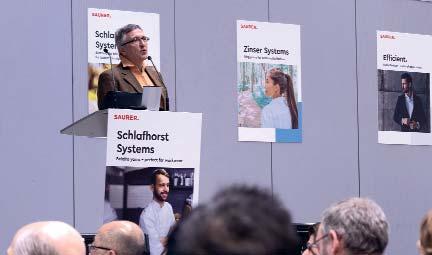

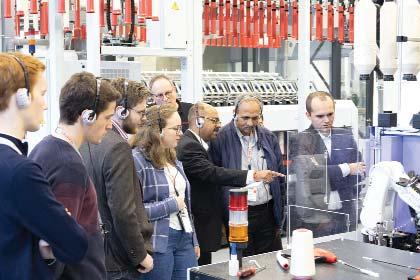
Customers and other visitors had the chance to explore the new Saurer Sustainability Hub, an innovation space that showcases and explores advancements in textile manufacturing. It includes a showroom, a spinning development centre, textile technology consulting services, and a machine research centre. This hub serves as a platform for fostering innovative solutions, sustainability, and collaboration within the textile industry.
One of the highlights was the worldpremiere presentations of Saurer's innovative machinery: from the machinebased automation of the BD480 and BD8 machines with doffer to the Autocoro Melange. Saurer has developed a technology for rotor spinning that for the first time allows the production of melange yarns with a flexible mixing ratio
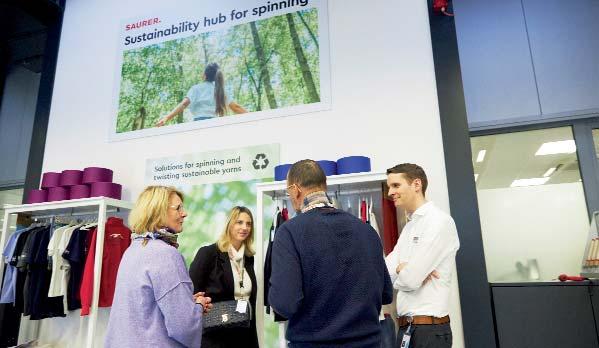

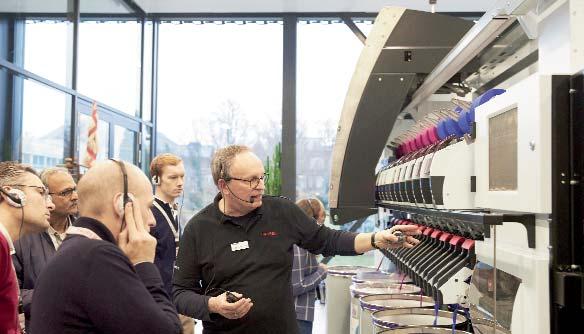
directly on the Autocoro. The semiautomatic rotor spinning machine BD Filea specialises in the production of elastane covered yarns. These innovative yarns are suitable for a wide range of applications, including stretch fabrics for garments. Notably, the spinning of 100% cotton on Autoairo also drew significant attention from visitors.
The Saurer OpenHouse 2024 also featured factory tours and workshops on the Saurer Academy, providing valuable knowledge-sharing opportunities, as well as presentations on Saurer's digital solutions, including the digital Senses platform and the e-commerce solution, Secos.
In addition, partner companies, such as Groz-Beckert, Kelheim Fibres GmbH, Renewcell, Reseda Binder, Rimtex Industries, RoZa Plastik San. ve Tic. Ltd.
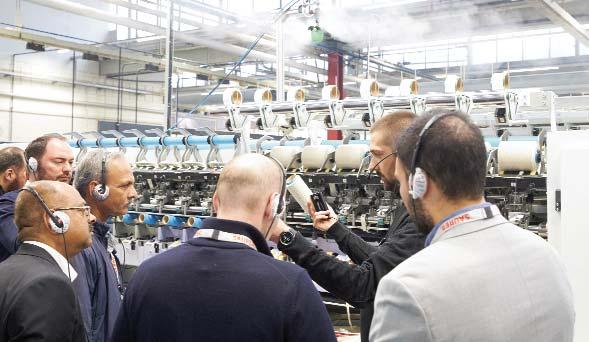

Ş
ti., Tailorlux GmbH - integrity solutions, Temsan Air, Textechno Herbert Stein, and Welker Vakuum showcased their contributions to sustainable textile production in a small exhibition. With DZ Bank also the financial sector was present.
Saurer donated an Autocoro Spinntester to the Technical University Dresden for research purposes, which was officially handed over to the keynote speaker Dr Chokri Cherif by Dr Ronde at the OpenHouse event.
The central concept of the event was to establish a space for fruitful discussions and idea-sharing that could help tackle the challenges faced by the industry. The visitors' feedback was overwhelmingly positive and showed that the textile industry needs this kind of informative exchange.
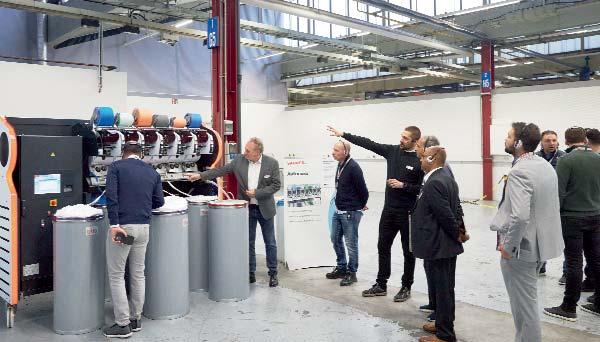
Special Report
37
Keynote speaker Dr. Thomas Gries from RTWH Aachen university
Saurer yarns and end products exhibited in the sustainability hub.
Customers during OpenHouse in the sustainability hub at the ZI72 XL with Autospin robot.
Customers in front of BD Filea rotor spinning machine producing elastane covered yarn.
Customers in front of Autocoro Melange, allowing a flexible mixing ratio of Melange yarns at the machine.
Customers during OpenHouse in the sustainability hub at the Autoairo air-spinning machine
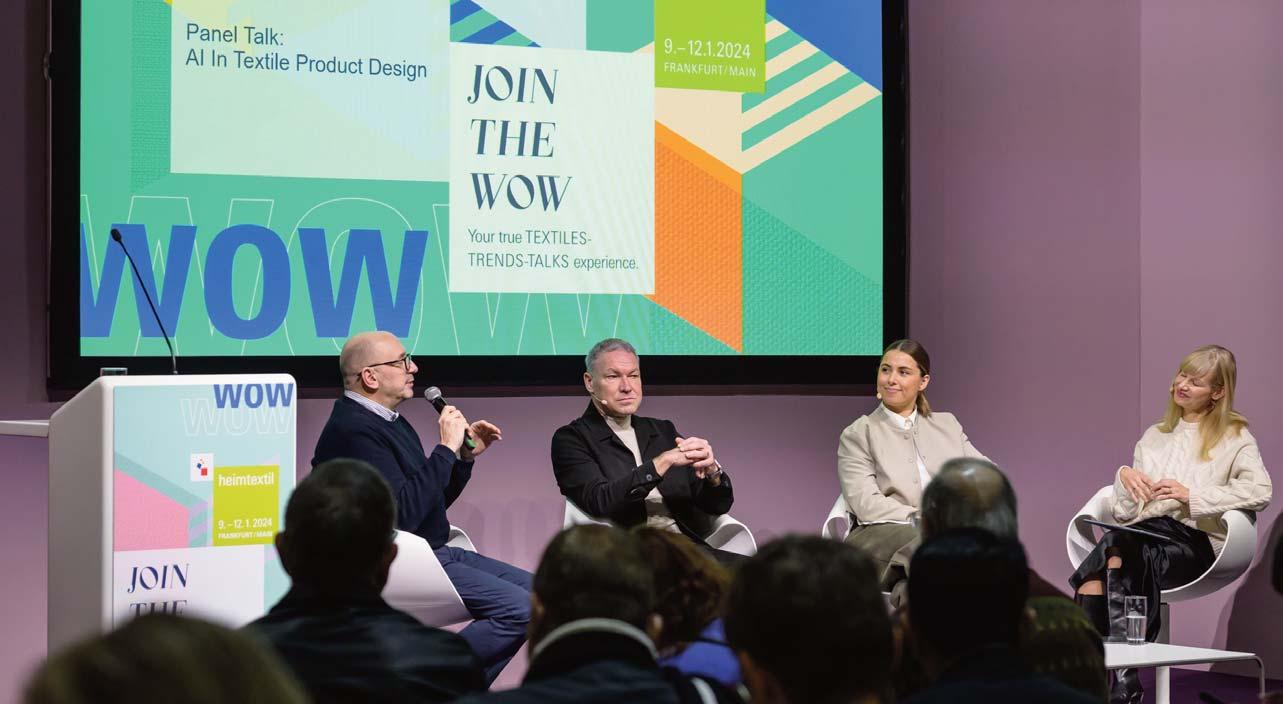
Heimtextil ends with an increase in exhibitors, a plus in visitors and sets new standards for a sustainable and AI-driven textile industry
New contacts with decision-makers, global business opportunities and worldwide streams of visitors: Heimtextil 2024 ended with 46,000 visitors from around 130 nations and 2,838 exhibitors from 60 nations with 25 per cent growth. With a plus in visitors, the show overcame difficult travel conditions due to nationwide rail strikes and regional demonstrations. The response from international buyers to the quality and variety of the new Carpets & Rugs product segment was overwhelming. In numerous talks, tours and workshops, Heimtextil as well focused on two of the most important key topics of the coming decades: sustainable production and action as well as artificial intelligence. At the leading trade fair for home and contract textiles, transformations could be experienced more intensively than ever before.
With intercontinental strength, Heimtextil 2024 laid the foundation for a
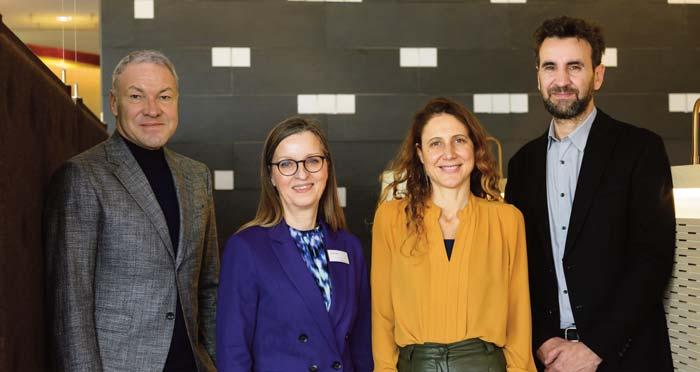
record year for Messe Frankfurt. 46,000 buyers from around 130 nations took the opportunity to participate in the global textile market - from upholstery and decorative fabrics, bed and bathroom textiles, mattresses, functional textiles and carpets to wallpapers, outdoor fabrics, artificial leather, curtains, fibres, yarns, sleeping systems and decorative
cushions. Despite nationwide rail strikes, this edition recorded a plus in visitor numbers and, with 2,838 exhibitors from 60 nations, a 25 per cent increase in exhibitor numbers compared to the previous year's event: "Heimtextil ends with overwhelming participation. The increase in space, exhibitors and visitors in 2024 makes the following clear: the
38 PAKISTAN TEXTILE JOURNAL - February 2024
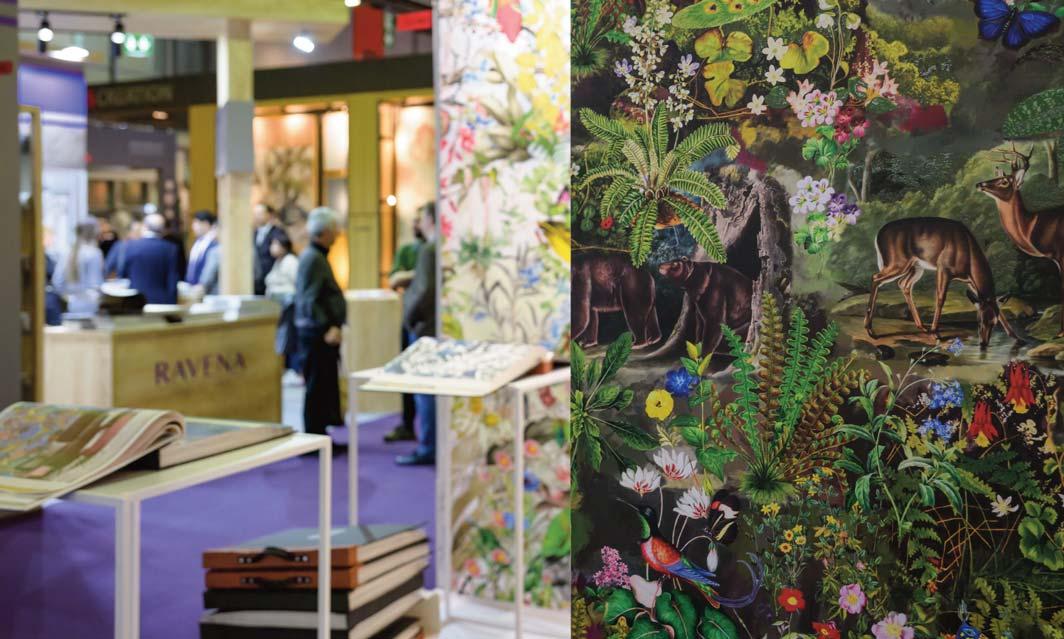
leading trade fair for home and contract textiles remains on course for growthand sets new standards for a sustainable and AI-driven textile industry", says Detlef Braun, Member of the Executive Board of Messe Frankfurt.
Outstanding intercontinentality: participation grows nationally and internationally
Heimtextil achieved an increase in the level of internationality on the exhibitor side to 95 per cent. The top ten exhibiting countries were China, India, Turkey, Pakistan, Italy, Germany, Spain, Portugal, Great Britain and the
Netherlands. There was an increase in the exhibitor numbers from Belgium, Bulgaria, China, India, Japan, Poland, Sweden, the Czech Republic, the USA and Egypt. On the visitor side, more visitors came from China, Germany, India, Japan, Croatia, Macedonia, Pakistan, Slovakia and Cyprus. The number of German trade visitors increased by around ten per cent.
Significant increase in satisfaction and visitor quality
In 2024, visitor satisfaction rose to an average of 93 per cent both nationally and internationally - particularly with the

breadth and depth of the offering. Among German trade visitors, overall satisfaction rose by seven percentage points to 88 per cent. Over 90 per cent of all visitors achieved their trade fair goals. Exhibitors were also impressed by the increased visitor quality and buying competence: the proportion of top decision-makers among buyers rose by six percentage points to 78 per cent. Around 80 per cent of exhibitors achieved their trade fair goals.
Brilliant start for new Carpets & Rugs product segment
The launch of the new Carpets & Rugs segment was a complete success. For the first time, the global carpet industry presented together in one hall, including numerous international market leaders who exhibited in Frankfurt for the first time or after a long time - with overwhelming satisfaction:
"For our debut here in Frankfurt, we deliberately presented our entire collection, which turned out to be the right strategy. The stand was well attended throughout and we made many new global contacts - from Europe to overseas, from Asia to Scandinavia," says Katrien Vandenbroucke, CEO of Ragolle Rugs, one of Belgium's leading brands.
39 Heimtextil 2024
Heimtextil 2024
"We came back because we saw potential in the new concept. And I have to say, we were more than pleasantly surprised," summarises Raghav Gupta, Director of E-Commerce at the Indian company The Rug Republic, which stands for high-quality handmade rugs.
The wish for a new joint appearance came from the industry - and Frankfurt was convincing. Exhibitors such as the Egyptian Oriental Weavers Group are looking to the future:
"We are completely convinced by the new concept. The hall has turned out beautifully from the very start, a perfect platform for our industry. Now it's time to take it forward together. In any case, we already know that we will be at Carpets & Rugs in 2025 - and with a significantly larger stand," says Ahmed El Gamal, Export Sales Manager of OWG subsidiary Mac Carpet.
From AI in textile product design to scalable sustainable solutions
Never before have transformations such as artificial intelligence and sustainability been so intensively at the center of Heimtextil and presented effective levers for a future-oriented approach to key technology. For the first time in 2024, the trade fair provided fascinating insights into the textile application of artificial intelligence and the use of AI-controlled sorting to refine recycled textile waste into new yarns. In the trend space, visitors' textile design ideas were also brought to life at interactive stations using tools such as ChatGPT-4 and Midjourney.
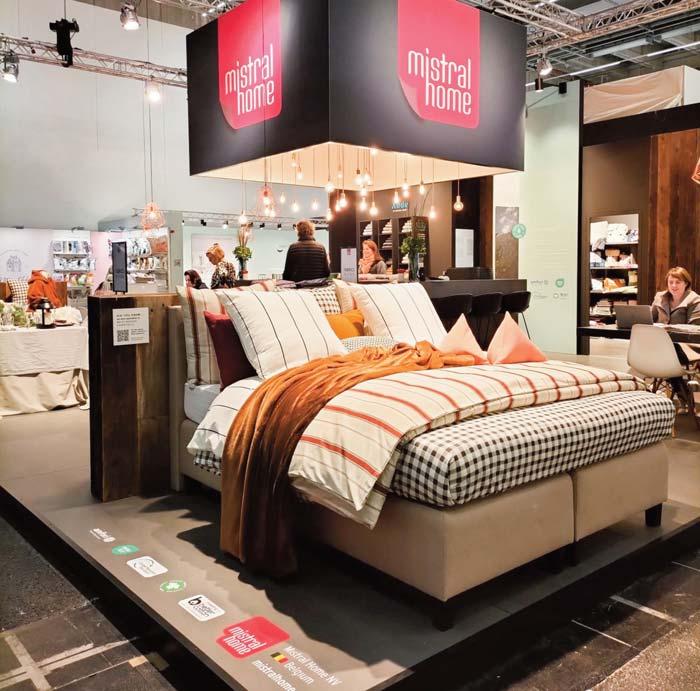
In addition, Heimtextil once again made state-of-the-art sustainable production and action tangible. One of the main points of contact were the Heimtextil Trends with New Sensitivity: the concept focused on the ongoing transformation of the textile industry and presented numerous market-ready and scalable solutions. One example was the company Ever Dye, whose self-developed color pigments enable dyeing at room temperature. Variant 3D, on the other
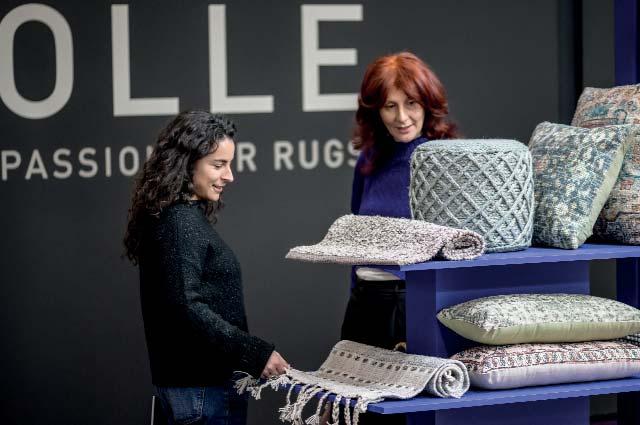
hand, offers AI-driven knitting software that can be used to produce even complex shapes such as lampshades without creating patterns. The Econogy program offered further central content formats, with Finder, Talks, Tours and the Econogy Hub demonstrating all the versatility of circular approaches, the relevance of certificates and possible applications for textile materials. The exhibitors listed in the Finder contributed to the holistic experience of sustainability.
„We have met many customers and are very happy with Heimtextil 2024. Almost all of our important business partners are here. Sustainability is a topic that is noticeably changing. People used to talk about recycling, but today it is being taken up as a holistic approach that extends from renewable energies deep into the processes to the raw materials and processing methods“, said Mevlut Baydar, Chief Sales Officer (CSO), Vanelli Tekstil San.
"At Heimtextil 2024, we were able to present our new collections in an eyecatching way as part of the DecoTeam. Sustainability plays an important role for the Alfred Apelt GmbH. We are delighted that we were listed in the Econogy Finder at Heimtextil as a supplier of sustainable
40 PAKISTAN TEXTILE JOURNAL - February 2024
products," said Sebastian Ihling, Sales Manager and Business Development at Alfred Apelt GmbH.
Strong response to textile range of bed, bathroom and sleep systems
From bedding, bed linen and bathroom textiles to mattresses and sleep systems - the broad Smart Bedding range for all forms of retail as well as the brands and private label excellence in the Bed & Bath segment met with a strong response:
„We are very satisfied and happy to be back at Heimtextil with the Herbert Neumeyer Group. Our concept of the three-sided open stand as a communicative concept has paid off. The exchange with our national and international customers is very important to us. We absolutely achieved this goal at Heimtextil and did so in a pleasant, informal, feel-good atmosphere on our stand. This enabled us to establish ourselves as a permanent focal point in the hall“, said Markus Ertel, Managing Director, Heinrich Häussling GmbH & Co.
„In a nutshell: Heimtextil has always been the guarantee of international strength and the global market for us“, said Roeland Smits, Managing Director, Essenza Home.
„We travelled here with many confirmed customer appointments and were also able to make new contacts. We were very pleasantly surprised by the numerous hospitality buyers who showed great interest in our high quality products and manufacturing processes – Heimtextil gave us access to the right markets“, said Tânia Lima, Marketing Manager, Lameirinho - Indústria Têxtil.
In 2024, the focus was once again on high-quality knowledge for the bed retail and hotel industry: international experts shared best practices, e.g. on the design of bedrooms and hotel rooms or the use of artificial intelligence in sleep analysis.
Asian Selection & Excellence: impressive range of high-quality large volumes
In the Asian Excellence & Selection halls, trade buyers of medium and large volumes found export-experienced partners and a unique range of highquality manufactured textiles. The suppliers were very satisfied with the quality of the visitors and were able to
open up new markets and contacts:
"We have been taking part in Heimtextil for 16 years and are very satisfied. The quality of visitors has increased again this year. We were able to do more order business. Our strongest markets are the UK, USA and Europe," said Nishant Kumar Singh, Export Sales Manager, GM Syntex.
"What is noticeable this year is that, in addition to Europe and the USA, more visitors from the Middle East are here. We see great potential for our products here and believe that this market could become very relevant in the future," says Muzzammil Kasumbi, Senior General Manager, Al-Karam Textile Mills.
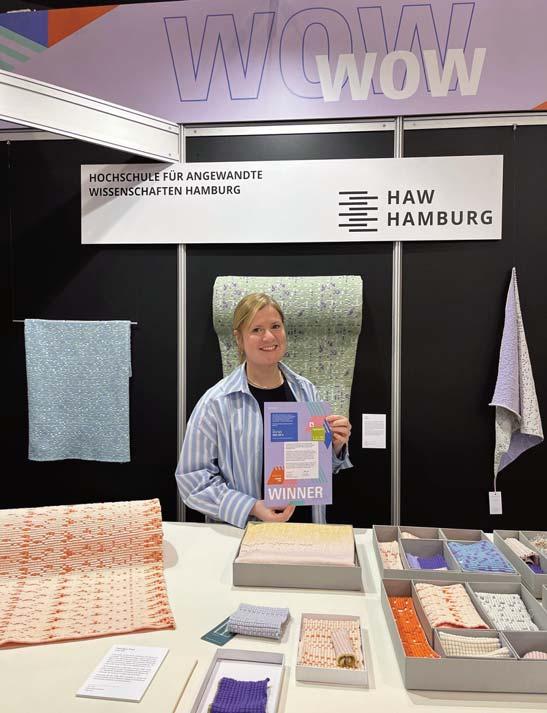
chemical recycling, met with great visitor interest," explained Anke Vollenbröker, Director Marketing & Business Development Trevira CS at Indorama Ventures Fibres Germany.
International, innovative and sustainable: the offering for the contract business
The Interior.Architecture.Hospitality programme at Heimtextil was more extensive and international than ever and brought architects and hospitality experts together with suppliers for the contract business. Whether focusing on health and care, outdoor, new work or sustainability - international manufacturers presented their functional innovations for a wide range of applications.
"Heimtextil 2024 was a successful start to the new business year for us. The Trevira CS brand was able to present itself to an international audience together with 17 top customers on a large joint stand. The sustainability topics such as fibres, yarns and fabrics obtained in various recycling processes, including
In the LIBRARY, visitors were inspired by selected functional textiles. Highlights included a flame-retardant wallpaper, dirt-repellent upholstery fabric and lightresistant leather. The contract range was complemented by the Fibres & Yarns area for decorative and upholstery fabrics. In 2024, the preliminary stage was larger than before.
Outlook for 2025: partnership with Studio Urquiola announced
For 2025, Heimtextil is announcing a partnership with one of the most important and influential international design studios: Studio Urquiola. A pioneering installation is planned for the upcoming Heimtextil 2025, which will enable an immersive and unique design experience. With this collaboration, the Milan-based design studio and the leading trade fair for home and contract textiles are emphasizing their joint commitment to innovation, sustainability and design in the entire textile industry.
41 Heimtextil 2024
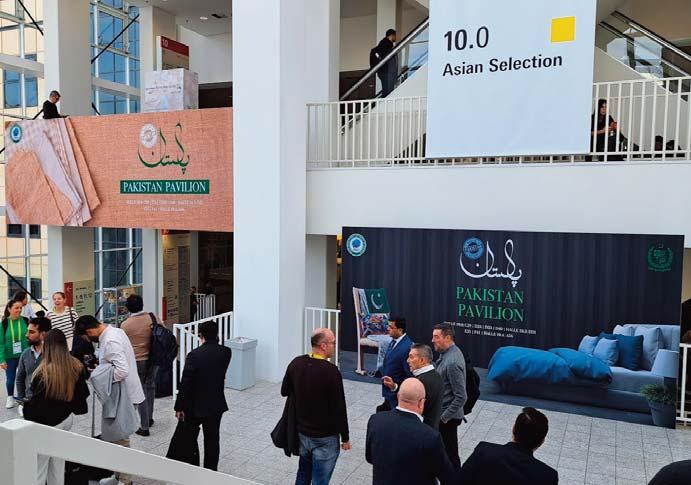
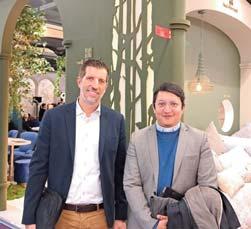
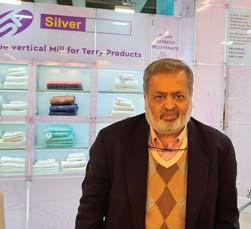
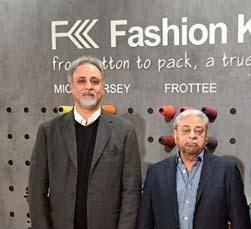
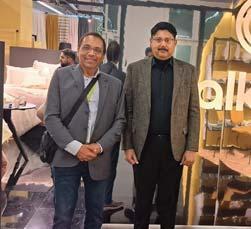
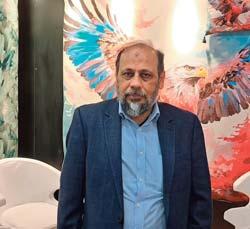
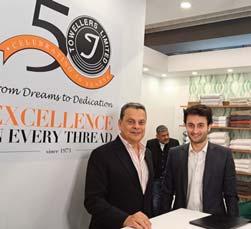
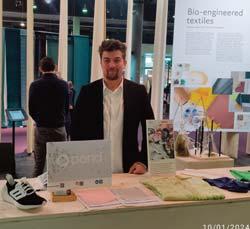
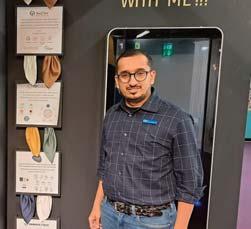
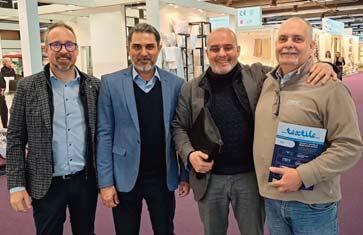
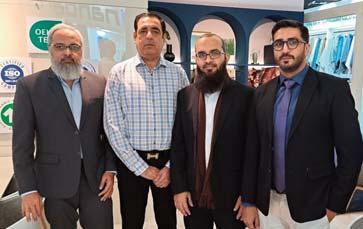
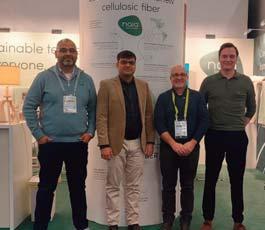

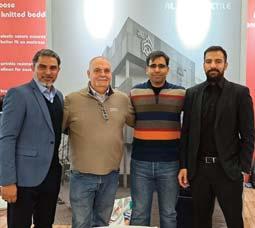
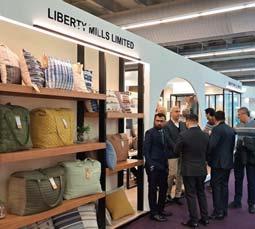
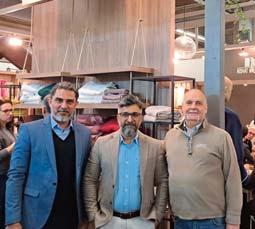
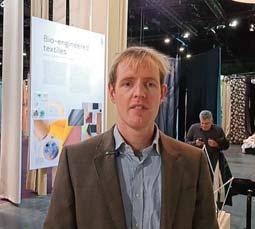
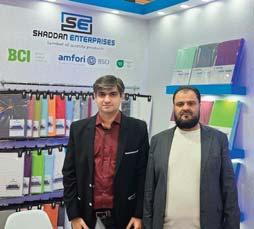
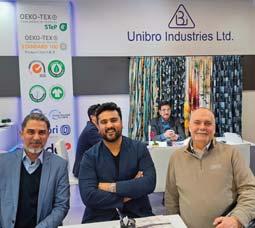
42 PAKISTAN TEXTILE JOURNAL - February 2024 Heimtextil 2024
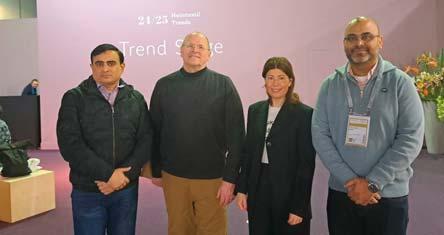

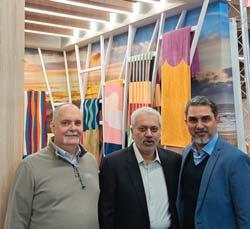

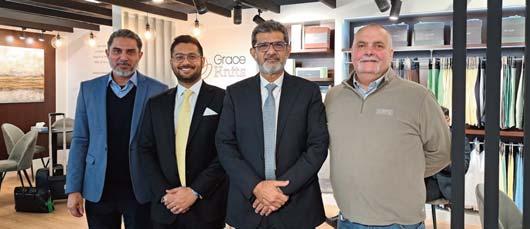

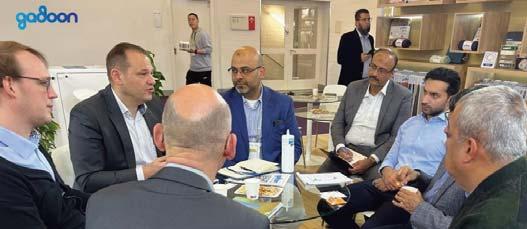
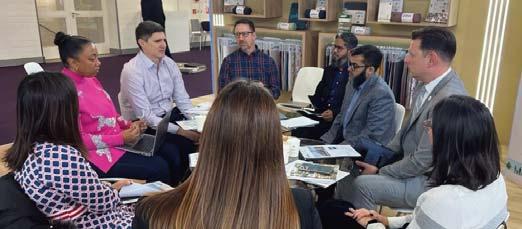
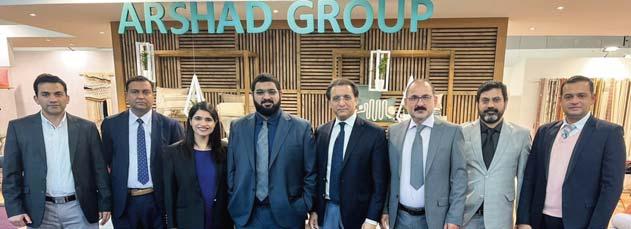

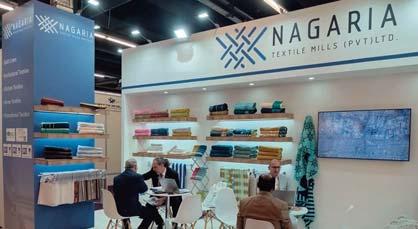
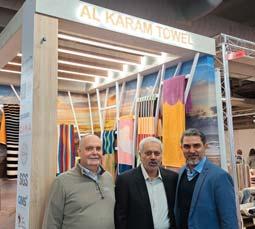

43 Heimtextil 2024
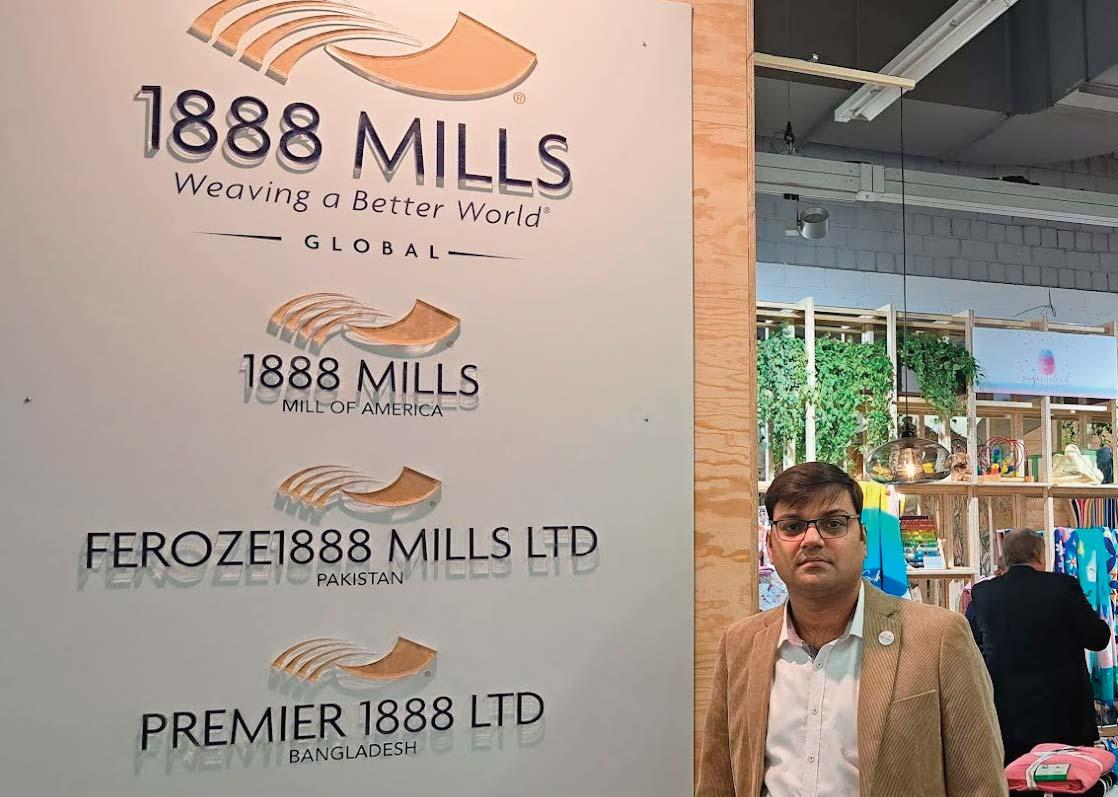
Aamir
Ansari, Head of Product Development & Innovation, Feroze1888 Mills Ltd., and Martin Jenson, Chief Technology Officer & Founder, Pond
Feroze1888 Mills Ltd. is one of the leading manufacturers and exporters of specialized yarn & textile products not only in Pakistan but across the globe. The company began its journey in the 1970s, with each passing year adding immense value to their customers and shareholders, aligning and integrating seamlessly with the innovative advancements & globalization, becoming an emblem of Excellent Execution Every time. Being partnered with 1888 Mills (USA), they are recognized as a progressive and global manufacturer of quality textiles for Home, Hospitality & Healthcare.
With the state-of-the-art machinery & set up, strong systems and procedures,
Global at Heimtextil 2024
exceptionally proficient and skilled human capital, Feroze1888 ensures high standards and delivers excellence in all what they do. Feroze1888 Mills is ISO 9001:2015 certified which corroborates a strong commitment towards quality in all aspects thus making it reliable for the customers and stakeholders, all around the world.
As an employer Feroze1888 Mills believes that its people are not only the biggest asset; they are also its’ greatest investment into their future, fundamental to their long term growth and success. Consequently, the company goes the extra mile in equipping them with the skills necessary for their professional growth, rewarding them for outstanding
performance and providing them with a world class environment to deliver their very best.
PTJ: Can you provide us with an overview of Feroze1888 Mills and Pond Global?
Aamir Ansari: Feroze1888 Mills is a global leader in the Terry Towel business, specializing in bath and kitchen towels for over a decade. With a strong presence worldwide, including in the US, Bangladesh, and Pakistan, we've established ourselves in institutional, retail, and fashion markets.
Martin Jenson: Pond is a Danish company focused on creating fully bio-based
44 PAKISTAN TEXTILE JOURNAL - February 2024
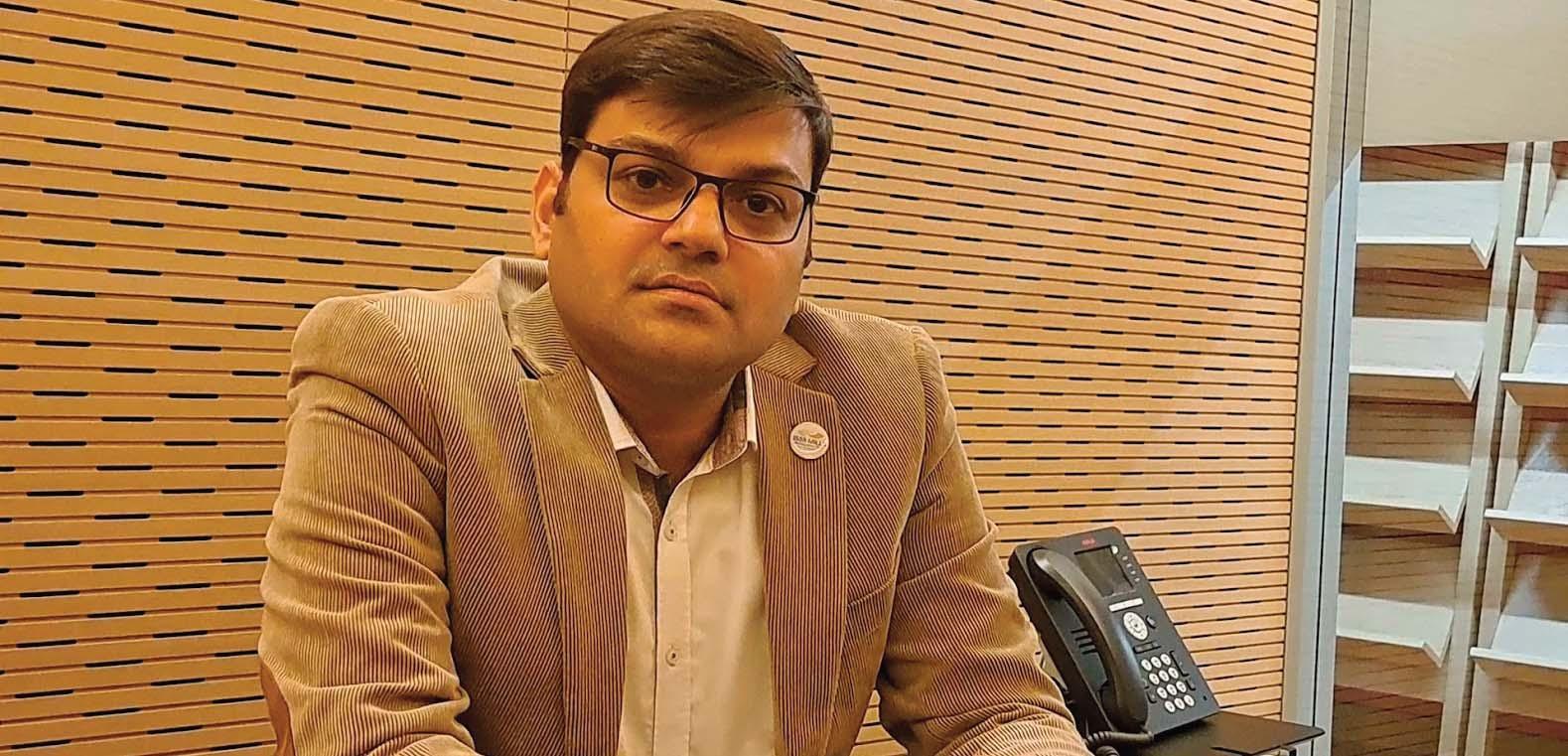
and bio-degradable materials, particularly PLA based yarns. Our materials offer the softness of natural fibers like cotton and silk, while retaining the durability of synthetic materials like polyester. We're excited to collaborate with Feroze1888 Mills to introduce innovative materials to the Terry, apparel and home textile industry.
PTJ: How do you see Heimtextil as a platform for the textile industry, particularly in showcasing your presence?
Aamir Ansari: Heimtextil is a fantastic event that brings the industry together, providing a platform to showcase our products and connect with buyers and customers worldwide. It's a one-stop opportunity to present ourselves and maintain and develop new relationships.
Martin Jenson: Absolutely. At Heimtextil, we're excited to exhibit our
collaboration with Feroze1888 Mills, showcasing our innovative materials like the Pond Cycle. It's a great opportunity to demonstrate how sustainable materials are shaping the future of the textile industry.
PTJ: Could you tell us about the specific product featured at Heimtextil and its significance?
Aamir Ansari: Certainly, our featured product at Heimtextil is the result of our collaboration with Pond, the Pond global. This innovative material, derived from corn, sugarcane and grass byproducts, represents a breakthrough in sustainable textile manufacturing. It's not only ecofriendly but also biodegradable, addressing key concerns in the industry.
Martin Jenson: The Pond Cycle is a game-changer for textile industry, offering a unique combination of softness and durability. By showcasing it at Heimtextil, we're demonstrating our commitment to sustainability and innovation while providing customers with a glimpse into the future of textile materials.
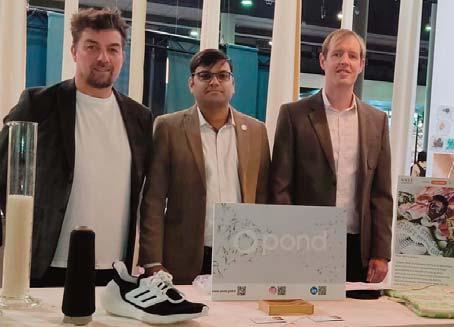
PTJ: What prompted the collaboration between Feroze1888 and Pond?
Aamir Ansari: Our goal at Feroze1888 has always been to stay ahead of the

curve in product innovation. When we encountered Pond's revolutionary bio-based materials, we found a perfect opportunity to enhance our product portfolio while aligning with sustainable practices.
Martin Jenson: Likewise, we were drawn to Feroze1888's reputation as a visionary in the industry. Their commitment to quality and innovation made them an ideal partner for bringing our materials to market.
PTJ: How do you envision the future of sustainable materials in the textile industry?
Martin: The textile industry is increasingly recognizing the importance of sustainability. Consumers are demanding eco-friendly alternatives, and companies like Feroze1888 are leading the way by embracing innovative materials like the Pond Cycle. As we continue to develop new technologies and processes, I believe we'll see a shift towards more sustainable practices across the industry.
Aamir Ansari: I couldn't agree more. Sustainability isn't just a trend; it's a necessity for the future of our planet. By investing in sustainable materials and practices, we're not only meeting consumer expectations but also ensuring the longevity of our industry.
PTJ: Thank you both for sharing your insights. It's clear that collaborations like yours are driving positive change in the textile industry.
Interview 45
Aamir Ansari, Head of Product Development & Innovation at Feroze1888 Mills Ltd.,
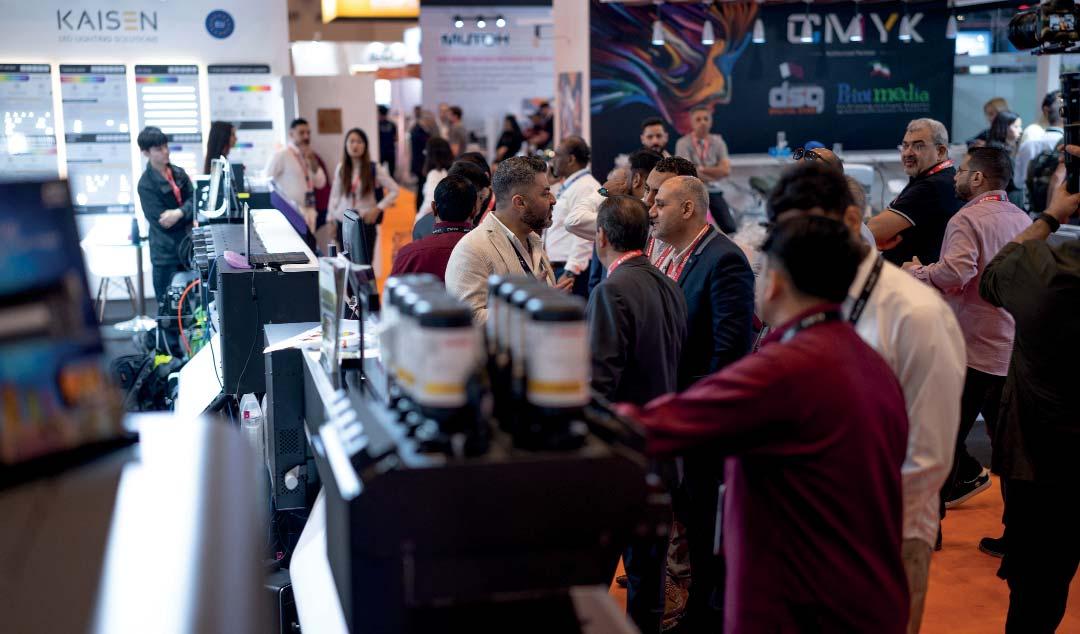
Investment tops agenda for senior decision-makers at FESPA MIDDLE EAST 2024
Buyers with spending intentions worth $486mn+ gather at inaugural regional expo
The inaugural FESPA Middle East 2024 exhibition (29 – 31 January 2024, Dubai Exhibition Centre) connected senior decision-makers from print and signage businesses with leading OEM suppliers and distributors, and featured a strong programme of educational content, facilitating conversations on investments, partnerships and industry growth plans.
54% of visitors shared they were planning to invest at, or within 6 months of, the show. Of those visitors who shared their investment budget, the average was $205,000 per visitor, with a collective budget of over $486 million.
With a compelling line-up of over 150 brands, the event attracted a high quality audience of senior decision-makers, who accounted for 51% of visitors. A further 18% were influencers in the decisionmaking process and 78% of the audience held the position of Owner, Director, Managing Director, Partner or Manager of their business.
Over the three days, the event attracted 3,146 visits from over 2,500 unique visitors from 88 countries, including the United Arab Emirates, Saudi Arabia, India, Pakistan, Kuwait, Iraq, Oman, Jordan, Egypt, Bahrain, Qatar, Turkey and Iran.
The response from visitors was upbeat, with delegates praising FESPA for the opportunity to access innovative technologies and connect with new suppliers. Shoaib Merchant, Director of Champion Group shared, “All the important industry players were there and there were a lot of products on show. It was a great opportunity for the industry to come together to discuss the latest trends and technologies and I hope that FESPA organises more events in this region in the future.”
Nafeesa Janmohamed Chief Executive Officer at Delfina printing and promotions Ltd, Dar Es Salam, Tanzania, commented, “This show was spot on, all the important printers attended, all the
important products and brands were at the event and I was totally impressed.”
Sabahat Zafar, CEO of SIFZ Services LLC added, “It was a very helpful event for printers and sign makers. There are so many updated machines that are coming to the market and I could see the best options at FESPA Middle East. FESPA should keep on coming so we can keep finding out about the latest technologies.”
The educational feature programme was also well received. Visitors learnt about alternative materials and substrates for more environmentally-conscious production at the Sustainability Spotlight and explored the world of vehicle wrapping at World Wrap Masters. The FLEX sessions and colour management workshops inspired lively discussions and delegates had the opportunity to network and connect with the wider community, as well as become FESPA Direct members at the Club FESPA lounge.
46 PAKISTAN TEXTILE JOURNAL - February 2024
Yasin Merchant, Founder & CEO, Signtrade, shared about,
Exhibitors commented on the high quality of contacts and conversations. “We’ve had good footfall, lots of highquality visitors and we’re happy that a lot of them are new customers now. It’s been a great experience and I wish FESPA would have hosted an event in the Middle East sooner.”
Rashed Abdeljalil, Business Development Manager, Flex Europa, added,
“FESPA Middle East has been an incredible experience and we’ve made a lot of meaningful connections during the show.”
Mathew Faulkner, EMEA Marketing & Innovation Director, Wide Format Printing Group, Canon Europe, explained,
“FESPA have a big draw within the wide format industry so it’s important for us to be present at their events and to share new opportunities for the market in the Middle East. FESPA Middle East was of the same high quality as FESPA in Europe. There was an excellent content programme, covering a wide variety of new and existing market opportunities and we’re really looking forward to next year’s event.”
Shihab Ahmed Zubair, Regional Sales Manager, Epson, said,
“FESPA is always our favourite show so we were very excited for FESPA Middle East. FESPA will add a lot of value to the region from an educational standpoint, providing fresh ideas to visitors and having all the key brands at their events.
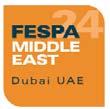
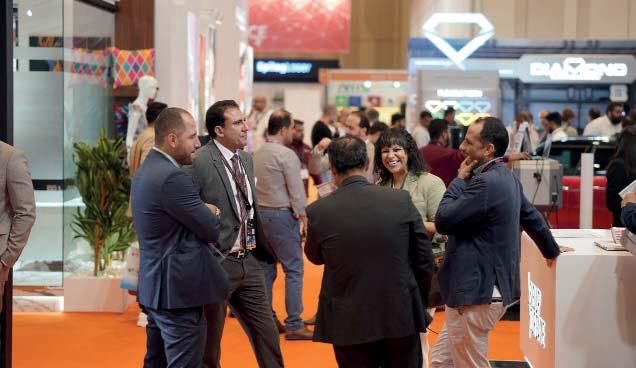
We had a great show and we’re hoping for more events in the future.”
Folker Stachetzki, Head of Marketing, Brother, shared,
“The Middle East and North Africa is one of the fastest growing markets for us and there’s a trend towards high volume, high-quality print production. The show was very good and we had very highquality visitors. We were very excited to exhibit and it definitely won’t be the last time.”
Karl Helfferich, Sales Director, Berger Textiles, explained,
“I have to say we were very happy to be there. The visitors were both international and regional and the leads that we got were of very high quality.”
Danna Drion, General Marketing Manager, Mimaki Europe, added,
“We had a very busy show, a lot of building new relationships with customers and prospects, and it was great to see so much interest in this region for our products and innovations. Being at the event
with our partners and distributors allowed us to enrich our partnerships and to work together on this great show, and we’re looking forward to the future.”
Bazil Cassim, FESPA Regional Manager, Middle East & Africa, comments,
“The inaugural event reaffirmed the need for a dedicated exhibition for speciality print and signage in the Middle East. For three days, the halls of the Dubai Exhibition Centre were abuzz with conversations about investments, partnerships, industry trends, shared experiences and creative business growth ideas. In addition to our comprehensive line-up of represented brands, visitors also had the opportunity to immerse themselves in a series of educational opportunities. The response from exhibitors and visitors alike was overwhelmingly positive and we’re thrilled to bring FESPA Middle East back in 2025 and to continue expanding our offering in this region.”
FESPA Middle East will return to the Dubai Exhibition Centre from 20 -22 January 2025.

47
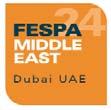
Marc Verbeem, Supervisor of Product Management at Mimaki Europe EMEA
PTJ: Marc, could you please tell us a bit about your role and the products you oversee?
Marc Verbeem: Certainly. I'm responsible for all the products at Mimaki Europe EMEA. Today, here at FESPA Middle East, I'm excited to discuss two key sectors we're showcasing.
PTJ: Great. Let's start with Mimaki DTF. Can you elaborate on what this product offers and its significance in the market?
Marc Verbeem: Absolutely. Mimaki DTF, or direct to film, is a new venture for us, introduced just last year. Unlike anything we've done before, DTF allows us to print directly onto film and then transfer it onto fabric. This technology opens doors for various applications like polyester cotton caps, name tags, and more. What sets Mimaki apart is our focus on providing stable production solutions. Customers appreciate not having to constantly clean ink heads for consistent results.
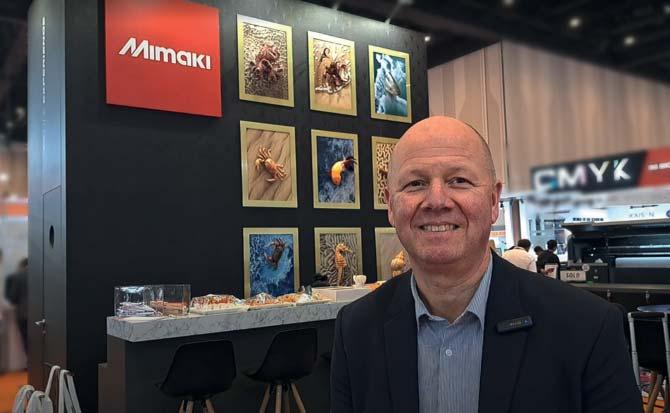
PTJ: That sounds like a gamechanger. Now, you also mentioned the new tiger sublimation printer. What advancements does this bring to the table, especially in terms of sustainability?
Marc Verbeem: The new tiger sublimation printer is a significant step forward. Unlike its predecessor, it's solely
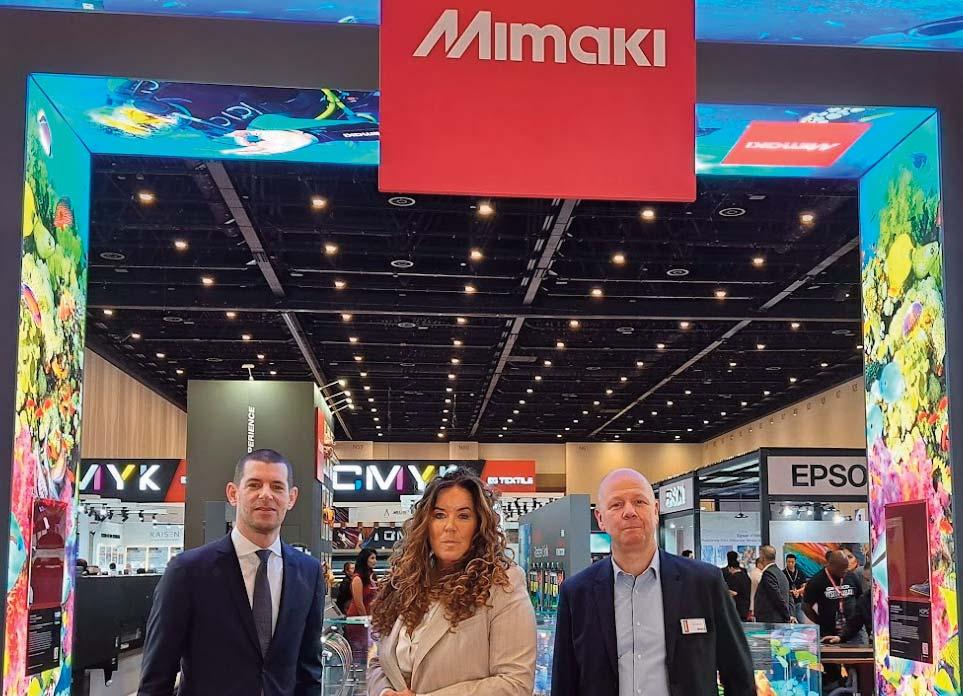
focused on sublimation printing, catering to the industry's increasing shift towards this method. Sustainability is a key consideration, and by eliminating the need for extensive pretreatment, such as with reactive inks, we're reducing water usage and environmental impact. Our highspeed capabilities, up to 300 m² in one pass and even up to 500 m², offer unparalleled efficiency without compromising quality.
PTJ: Impressive indeed. Finally, could you share your insights on the signing graphics market and Mimaki's position within it?
Marc Verbeem: The signing graphics market remains robust, and Mimaki holds a significant market share. We've experienced remarkable growth, with last year's revenue surpassing expectations by 130%. However, we're also witnessing a shift towards UV printing, alongside traditional solvent options. We're committed to providing solutions for both preferences, acknowledging the diverse needs of our customers.
PTJ: Thank you, Marc, for sharing your expertise with us today.
48 PAKISTAN TEXTILE JOURNAL - February 2024
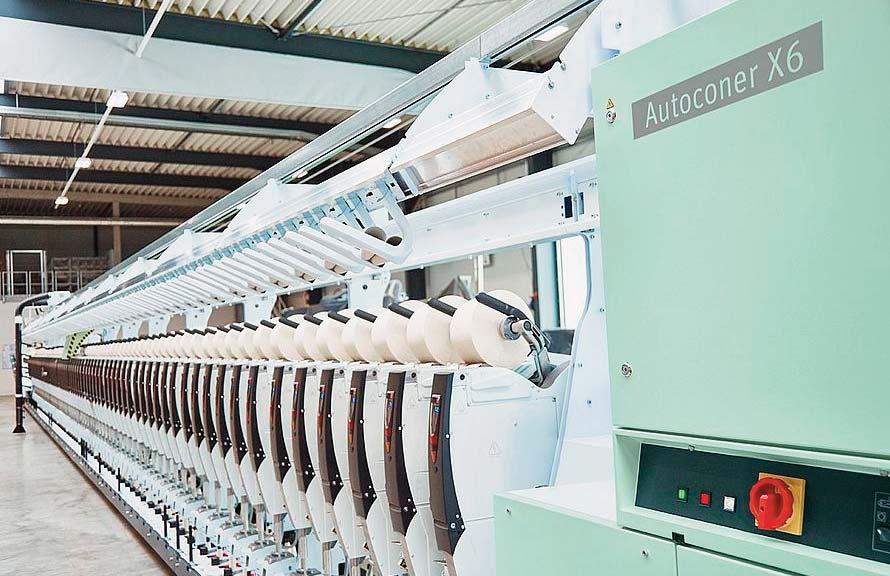
Insight: Pakistan's cotton spinning sector during FY23
by Nadeem Mazhar, Managing Editor, Pakistan Textile Journal.
Textile is the most important manufacturing sector of Pakistan. It has the longest production chain, with inherent potential for value addition at every stage, from cotton to ginning, spinning, fabric, dyeing and finishing, made-ups and garments. This sector contributes nearly one-fourth of industrial value-added and employs about 40 per cent of the industrial labour force. Barring seasonal and cyclical fluctuations, textile products have maintained an average share of about 60 per cent in national exports.
Cotton Spinning Sector
The spinning sector is the backbone of the textile sector of Pakistan. According to the Textiles Commissioners Organization (TCO), it comprises 517 textile units (40 composite units and 477 spinning units) with 13.414 million spindles and 198,801 rotors installed and
11.338 million spindles and 126,583 rotors in operation with capacity utilization of 84.55 per cent and 63.67 per cent, respectively.
The textile industry is the largest manufacturing industry in Pakistan and the 8th largest exporter of textiles in Asia, contributing 8.5% to the GDP of Pakistan. In addition, the sector employs
about 45% of the total labour force in the country (and 38% of the manufacturing workers). Pakistan is the 4th largest cotton producer with the third largest spinning capacity in Asia after China and India and contributes 5% to the global spinning capacity. There are 1,221 ginning units, 442 spinning units, 124 large spinning units, and 425 small units that produce textiles.
Year Installed Capacity Working Capacity Production of yarn (Million Kg) 2017-18 13.41 11.29 3,485 2018-19 13.41 11.34 3,431 2019-20 13.41 11.34 2,238 2020-21 13.41 11.34 2,880 2021-22 13.41 11.34 1,914
Table 1: Installed Working Capacity and Production of Yarn
(000
Spindles)
Source: Textile Commissioner Organization.
49
Pakistan has emerged as one of the major cotton textile suppliers globally, with a share of the global yarn and cotton fabric trade of about 30% and 8%, respectively, maintaining the sector as a backbone of industrial activity for the country. The annual volume of the total world textile and clothing trade was more than US$ 576 billion in 2023; Pakistan's share is less than 9%.
Cotton production during the current season has improved considerably due to favourable weather conditions. However, the country remains reliant on imports to meet the remaining demand, and the rising international cotton prices will put pressure on the sector's margins.
Due to exchange rate volatility, a greater reliance on imported raw materials also increases currency risk exposure. The polyester sector’s revenue registered a ~6.2% YoY increase in FY23 owing to better marketing campaigns across major sector players and higher local prices of PSF by ~25.9% YoY of the sector.
The spinning sector is the backbone of the ranking of textile production. The rapid increase in spinning capacity due to technological advances has substantially increased cotton production and related products. Pakistan's spinning sector caters
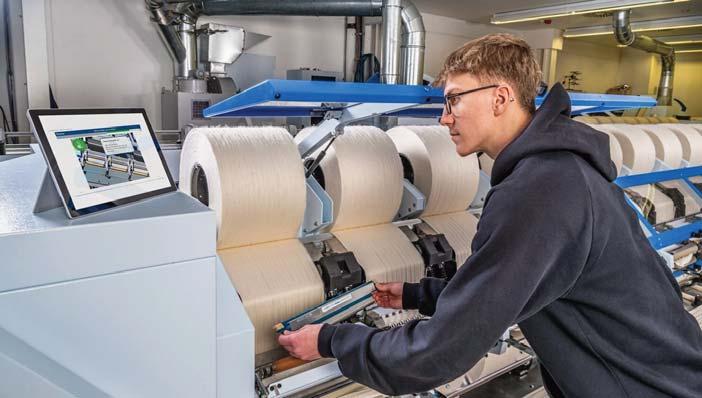
Source: Trade Development Authority of Pakistan.
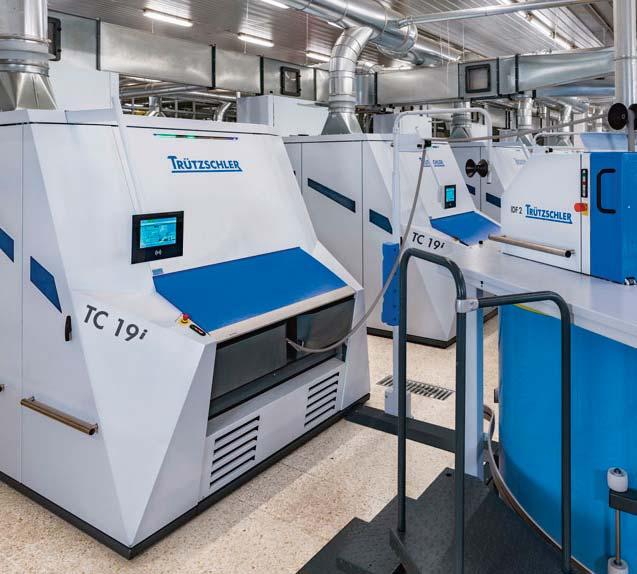
not only to the requirements of the domestic industry but also about onethird of the total output of yarn is exported to different destinations.
Imports
Pakistan's cotton imports were 1.6 billion in 2022-23, according to the United Nations COMTRADE database on international trade.
Exports
Pakistan exported cotton yarn worth US$ 852 million in 2022-23. Yarn exports have increased from 337 million kgs in 2021-22 to 339 million kgs in 2022-23. In terms of value, cotton yarn exports declined from 1.27 billion US$ in 202122 to US$ 852 million in 2022-23.
Raw material
Cotton is considered a lifeline of the economy of Pakistan. However, erratic weather has crippled the country's already ailing cotton sector in the past
50
PAKISTAN TEXTILE JOURNAL - February 2024
Spinning Review
Year Quantity Value Unit Value (000 Kgs) (US $ 000) ($/ Kg) 2018-19 423,975 1,125 2.59 2019-20 412,553 984 2.39 2020-21 390,565 1,016 2.60 2021-22 335,647 1,207 3.59 2022-23 280,030 852 3.01
Table 2: Exports of Cotton Yarn
three seasons. Cotton crop faces significant challenges vis-à-vis competing for crops, especially sugarcane. Most important being unfavourable international prices.
The spinning sector is closely linked with the cotton and textile industries, which influence yarn’s supply and demand. Both these industries were severely impacted during FY23, and subsequently so was the spinning industry. Heavy floods during 1QFY23 reduced Pakistan’s cotton production YoY by ~35%. This reduced raw material supply for yarn and yarn production reduced by ~22%. In addition to this, contractionary economic policies like high interest rates and global economic slowdown reduced demand for textile products and, by extension, that for cotton yarn yarn as well.
Challenges
The Pakistani textile industry, considered the backbone of the export sector, faces new issues that should be dealt with promptly. The quality of Pakistani yarn brings back global buyers who are disappointed by inconsistent and low-quality Indian yarn. However, Pakistani yarn manufacturers are not able to match Indian rates that are subsidized by their government.
While the industry is expected to nearly double exports to US$ 25 billion by 2024, many of the challenges long faced by the sector have not been addressed.
The government must immediately take notice of the provision of substandard cotton seeds to farmers by the
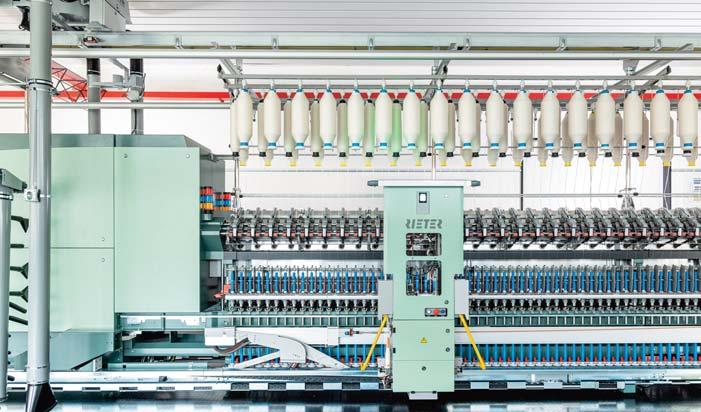
Source: Trade Development Authority of Pakistan.
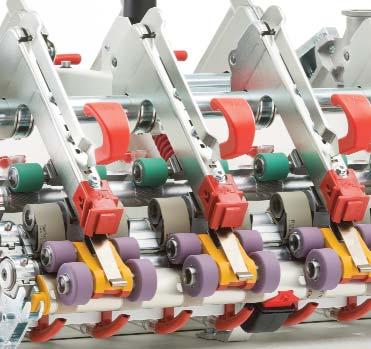
suppliers and strict action must be taken against them as exporters see it as an act against the interest of Pakistan.
First, the government should introduce good policies to make farmers have the consciousness and enthusiasm of planting cotton, and in particular, the government's policies should ensure that the farmers can make good money by planting cotton.
Second, the government should increase investment in scientific research, and
strengthen scientific research and technological development for cotton planting. Only in this way, can the technology of cotton planting always be at the advanced level in the world. And only in this way, can Pakistan's exports of textile products and cotton yarn increase significantly. References
51 Spinning Review
1.Textile Commissioner Organization 2.Pakistan Bureau of Statistics. 3.Pakistan Economic Survey-2022-23. 4.Trade Development Authority of Pakistan.
Value: US$ 000 Country 2020-21 2021-22 2022-23 China 686,044 609,030 444,040 Portugal 43,564 57,468 50,096 Italy 21,310 48,928 39,616 Japan 22,299 36,948 32,731 Turkey 31,960 54,458 31,123 U.S. America 18,553 33,961 20,580 Korea Republic 22,257 25,702 18,333 Germany 89,041 17,494 14,372 Belgium 3,224 5,142 6,861 Spain 2,477 9,817 4,838 United Kingdom 2,081 6,119 2,501 All others 74,159 302,479 187,395 Total 1,016,969 1,207,546 852,486
Table 3: Country wise Exports of Cotton Yarn
U.S. Cotton Trust Protocol now
represents almost quarter of U.S. cotton acreage and reports continued improvements across all six sustainability
Enrolled grower numbers tripled compared to 2020 launch, with 975 growers enrolling almost a quarter of entire U.S. cotton acreage; all 17 cotton-growing states represented
Key improvements on 2015 baseline figures reported are: a reduction in soil loss of 79%; 83% of Protocol growers seeing positive soil carbon index; yields +12% on national average; water efficiency up 14%; 27% reduction in energy use, and GHG emissions down 21%
Data reported in the U.S. Cotton Trust Protocol’s third Annual Report
The U.S. Cotton Trust Protocol has tripled its grower membership in just three years, whose 1.7m acres now represent almost a quarter (23%) of the entire cotton-growing area of the United States. And while it has expanded enrolled planted acres exponentially, the program continues to drive progress across its six metrics. These are just some of the headline results published today in the U.S. Cotton Trust Protocol’s third Annual Report.
Continued improvement across all six metrics
The program reported continued progress across all six metrics of land use; water use efficiency; energy use; greenhouse gas emissions; soil conservation, and soil carbon. Aggregate improvements on 2015 baseline figures reported are: a 79% reduction in soil loss with yields 12% greater than the national average; 83% of Protocol growers reporting a positive soil carbon index, water use efficiency enhanced by 14%, GHG emissions cut by more than a fifth (21%), and a 27% reduction in energy use. See notes to editors for further details.
metrics
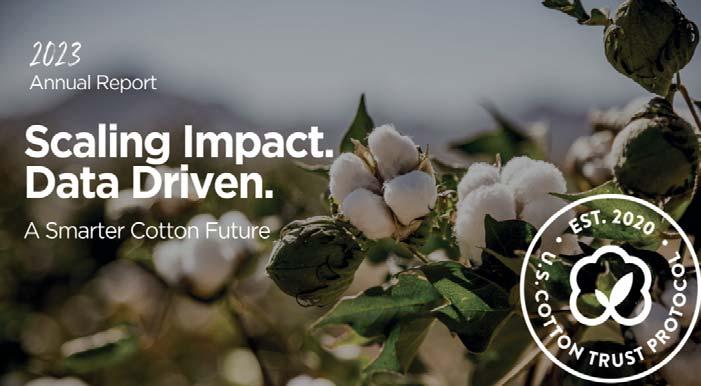
Regenerative agriculture metrics
The Trust Protocol’s Annual Report also includes key metrics on progress in regenerative agriculture using Field to Market methodology. The regenerative practices reported include cover cropping; minimal or no-tillage methods; promoting biodiversity; rotational farming; precision agriculture techniques; Integrated Pest Management, and using inputs tailored to specific landscape conditions. See notes to editors below for further details.
Aggregate data reporting in the context of an enlarged data set
The tripling of enrolled growers brings significant implications for data interpretation. More participating growers contribute to a larger data set which impacts the statistical significance of the findings. The diversity of practices with a large and broader group of growers also means there is a greater representation of farming practices, regions, conditions, which in turn helps improve data interpretation and allows
for benchmarking. At the same time an unusually high or a low value in a single year of exponential growth in enrolled grower members can lead to data anomalies. Aggregate data reporting over a three-year period ensures a reduced impact of anomalies as more data is incorporated into the program.
Commenting on the results, U.S. Cotton Trust Protocol’s Executive Director Daren Abney said: “I’m greatly encouraged by the continued progress, and not least by the exponential growth in enrolled planted cotton acres. Accurate data collection sets the stage for appropriate decisions for brands and retailers, where they can claim how much water has been saved or how many greenhouse gas emissions have been reduced. Today’s data demonstrates how Protocol growers continue to improve in their environmental performance, year on year. We do not have a final destination: our journey is one of continuous improvement in the pursuit of excellence.”
Spinning Review 52 PAKISTAN TEXTILE JOURNAL - February 2024
Savio Winding and Air-Jet Spinning Innovations
Savio is launching the newest SAVIO automatic winder Proxima Smartconer® at ITMA MILAN. Proxima Smartconer® is the result of the commitment of Savio R&D team and testifies Savio’s dedication to innovation technology and strong partnerships across the industry.
Textile Solutions Together
Savio has always acted as technological leader and innovative player in the textile machinery industry. Innovation technology and customer centricity are Savio drivers for developing new products. Our innovations aim to impact on the customer's value chain; we want to be together as partners and offer not only innovative products, but also our expertise and solutions able to satisfy customer needs. TEXTILE SOLUTIONS TOGETHER is our philosophy and summarizes our customer-oriented approach.
New Savio Agent In Pakistan
Since September 2022, Savio has a new official Agent in Pakistan for Sales & Servicing, EUREP ENTERPRISES, guided by Mr. Mohammad Rehan, CEO of Eurep Enterprises.
This strategic alliance is set to immensely benefit the Pakistani textile industry, as the expertise of Savio combined with the strong presence of Eurep on the local market, will give customers a competitive advantage in their business. EUREP is ready to provide the region with high class textile machines and the best After-Sales service. This partnership will enforce Savio support and strength towards our Pakistani customers and increase our customer centricity.
Next Destination: Proxima Smartconer®
The new winding machine Proxima Smartconer® is setting the benchmark in Savio automatic winding. We have combined the name Proxima with Smartconer®: It stands for a high-tech winding machine, capable of perfectly
adapting to demands of Connectivity, Industry 4.0 and Industrial Internet of Things.
Thanks to the innovations, spinners will get a machine featuring high-tech capabilities, thanks to a design with a strong focus on the main benefits for customer’s competitive advantage: high productivity, low energy consumption, premium yarn quality, automation, and data connectivity.
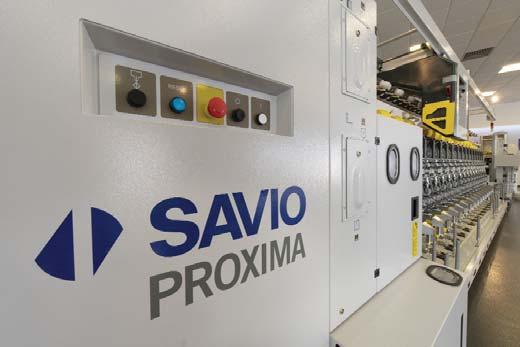
kgs of yarn produced, high productivity thanks to:
Proxima Smartconer® has been designed with the foremost attention to the customer’s needs in the optimal utilization of a winding machine.
Investing in equipment that enables to work faster and reduces manual and repetitive tasks, can increase both efficiencies and overall productivity. The same applies to a new equipment that does more of what is needed, faster, safer, with better quality but with less waste, less maintenance and less resource usage.
The team at Savio is steadfast to provide textile solutions for spinning business growth with unsurpassed customer service, response time, and technical expertise.
Boost the productivity of your business
Investing in new equipment as Proxima Smartconer®, as well as in Savio’s leading-edge technologies, enables spinners to be more agile and responsive as business needs change. It’s important to note that those gains in productivity and efficiencies while producing fault free packages, can generate significant cost savings. You can benefit from huge returns in terms of productivity with Proxima Smartconer®
The high productivity of the machine is obtained thanks to multiple factors that help optimizing the performances. More
Smart Booster, new device for bobbin unwinding that increases the winding speed and reduces yarn tension. Fast bobbin change cycle plus 1 extra bobbin in reserve.
Less power consumed per Kg of yarn produced.
New yarn tensioner and shorter splicing time.
Customer Service
A user-friendly machine allows spinners to respond quickly to changes or manufacturing challenges, to increase the ease of use and management of the machine, thereby improving efficiency and reducing machinery downtimes. PROXIMA Smartconer® has been designed to be easy to use, both for the setting of machine functions and for maintenance.
The newly designed user-friendly interface with touch screen functionality allows to easily setup working parameters. The interface of PROXIMA Smartconer® allows to monitor machine even remotely and to display dashboards, with the aim of simplifying processes and factory operations. Operators can also use machine PC interface to quickly display KPIs and manage alarms. The ability to make the necessary adjustments from the screen makes this process quick and easy.
53 Spinning Review
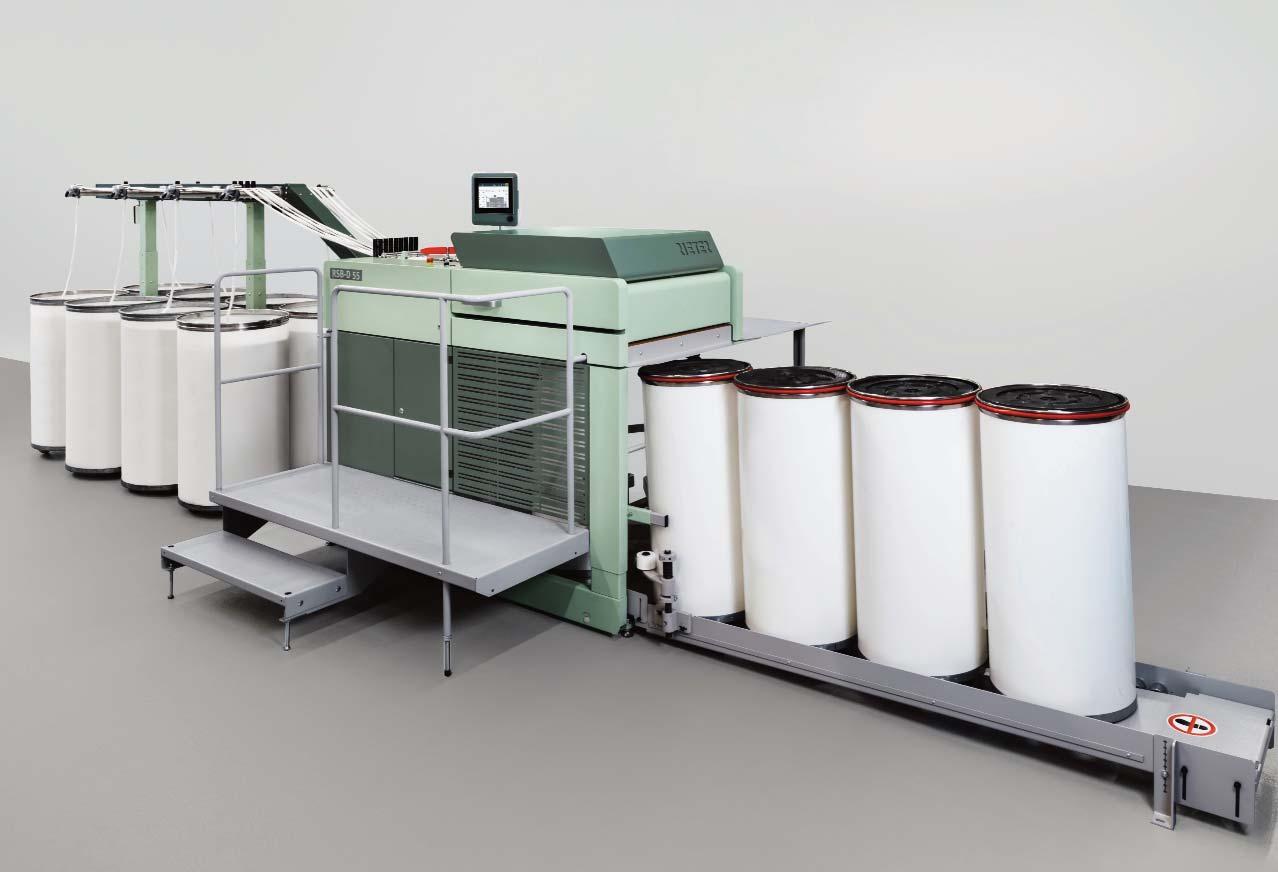
Major Win for Rieter in Patent Dispute in China
In a judgment in December 2023, the Supreme People’s Court of the People’s Republic of China ruled in favor of Rieter in a legal dispute. The case concerned the infringement of a Rieter patent by a competitor’s draw frame. Rieter protects its innovations with patents and registered designs and consistently takes action against infringements of its intellectual property.
Rieter draw frames are known for their stable operation with high sliver quality and productivity. Superb scanning precision and highest autoleveling dynamics ensure outstanding sliver evenness and thus the production of high-quality yarns. Draw frames have also been the subject of a patent litigation by Rieter in China at various levels of jurisdiction. Rieter had sued a competitor for unauthorized use of its patented draw frame technology.
In the summer of 2022, the Shanghai Intellectual Property Court confirmed the patent infringement identified by Rieter and prohibited the accused competitor
from continuing to use Rieter’s patented technology. The infringing party was also ordered to pay damages to Rieter.
The culpable competitor then appealed the decision of the Shanghai court to the Supreme People’s Court of the People’s Republic of China.
In December 2023, the Supreme Court of China in Beijing upheld the Shanghai decision, confirming that the patent had been infringed. As a result, Rieter’s competitor is prohibited from selling the infringing machine types and is required to pay the damages determined by the court.
This Supreme Court decision represents a major success for Rieter in defending its proprietary technologies in China. It is further proof that foreign companies can effectively defend their intellectual property in China.
As the technology leader in spinning machinery manufacturing, Rieter invests around 5% of its turnover annually in research and development. Rieter protects its innovative products with
patents and registered designs and takes consistent action against infringements of industrial property rights.
About Rieter
Rieter is the world’s leading supplier of systems for manufacturing yarn from staple fibers in spinning mills. Based in Winterthur (Switzerland), the company develops and manufactures machinery, systems and components used to convert natural and man-made fibers and their blends into yarns in the most costefficient manner.
Cutting-edge spinning technology from Rieter contributes to sustainability in the textile value chain by minimizing the use of resources. Rieter has been in business for more than 225 years, has 18 production locations in ten countries and employs a global workforce of around 5 100, about 16% of whom are based in Switzerland. Rieter is listed on the SIX Swiss Exchange under ticker symbol RIEN.
54 PAKISTAN TEXTILE JOURNAL - February 2024
Spinning Review

All eyes on the Trützschler’s TC 30i
The next-generation TC 30i carding machine already captured imaginations at the ITMA 2023. This innovative card inspired our customers – while confirming Trützschler as the trendsetting pioneer for textile machinery. From smart functions to sustainable features, the new card generated a lot of excitement. And the successful launch event in Milan is now followed by the sales release of our TC 30i!
Key benefits and highlights
The TC 30i offers a huge range of groundbreaking new features and fascinating details. But there are three benefits that our customers are particularly excited about:
1. High levels of performance and yarn quality thanks to 35 % more active flats and 14 % increased carding
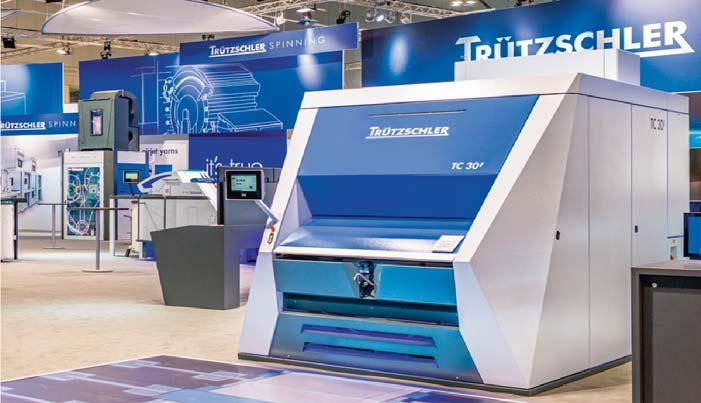
length in combination with the intelligent gap optimizer T-GO.
2. Operator-independent, consistent results thanks to automatic and continuous carding gap setting with T-GO.
3. More sustainable and economical use
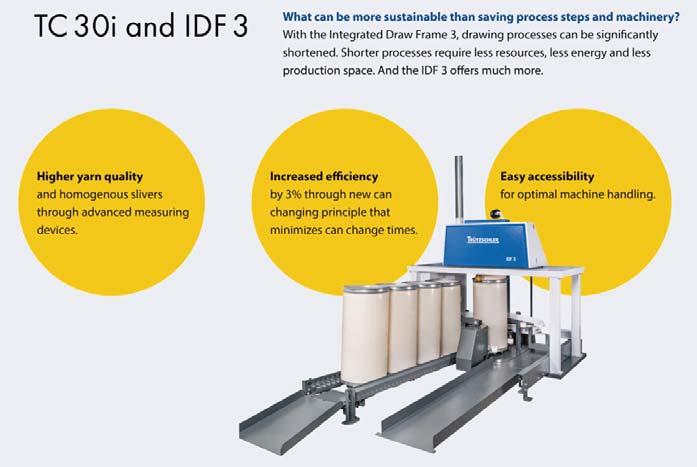
of raw materials thanks to a redesigned suction system that collects different types of waste separately – enabling 50 % of card waste to be reused. The TC 30i also comes with the proven WASTECONTROL system – an easy-to-use and effective assurance against unnecessary fiber loss.
A model for each application
We are also launching a version of this card specifically developed for textile recycling. It answers technical challenges in processing secondary fibers like high short fiber content, on average shorter fibers and yarn and fabric particles.
Carding soon…
The TC 30i is a pioneering new card with the power to maximize quality –while capturing imaginations too.
55
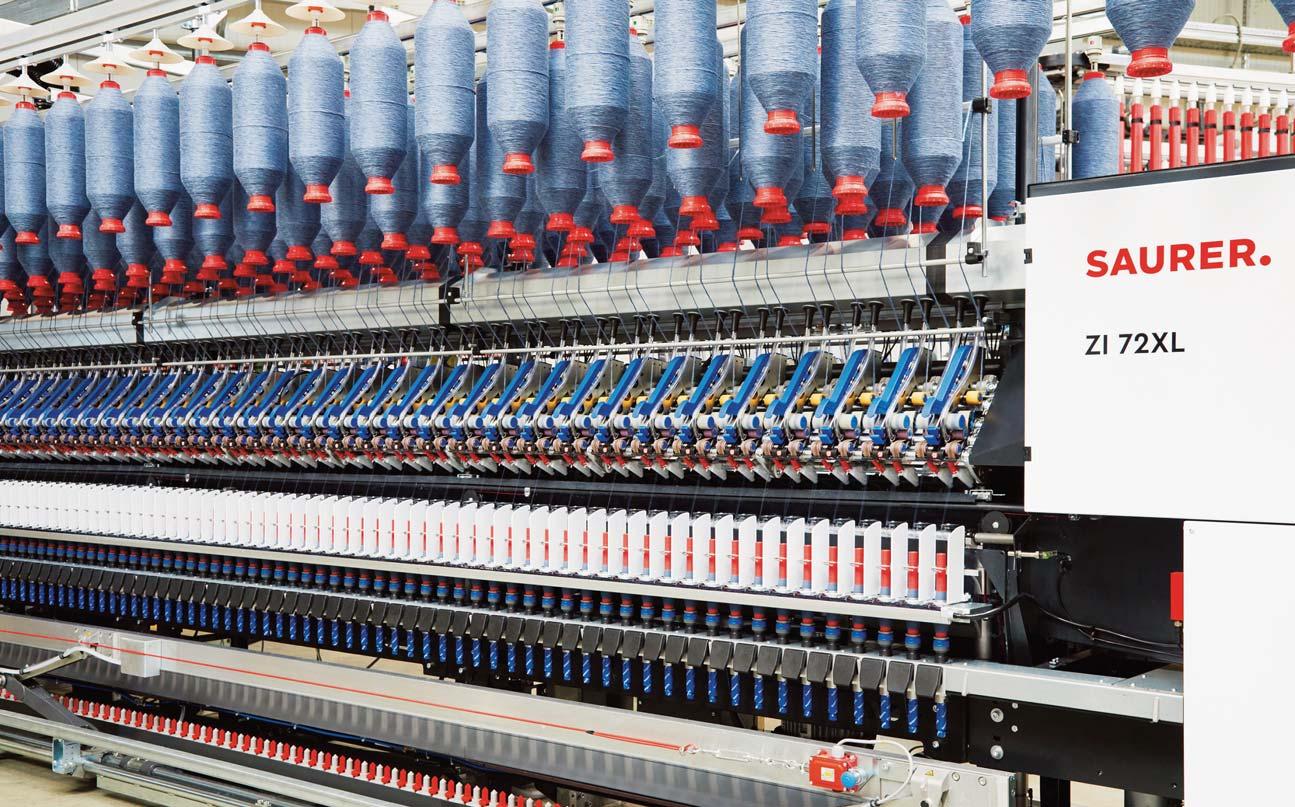
See the Saurer 72XL compact spinning machine first hand at Egy Stitch and Tex 2024
Saurer looks forward to welcoming customers at the Egy Stitch and Tex 2024 exhibition in Cairo, Egypt, at the ATAG booth 5E14 in hall 5. Supporting our customers in Egypt, Africa and the Middle East with our future-oriented solutions in the areas of sustainability, digitalisation and automation is Saurer's goal. Experience the ZI 72XL compact-spinning machine - running live on the booth.
Saurer is the pioneer for sustainable and economical solutions in ring-spinning and will present the highly productive ZI 72XL compact-spinning machine in Egypt. The ZI 72XL offers a high degree of flexibility for almost all applications and is suitable for recycling fibres. Featuring the new self- cleaning compact yarn system Impact FX pro with multihole aprons, the ZI 72XL delivers excellent yarn values for standard and recycled

yarns, especially for fine yarns.
Rising energy costs are forcing us all to take action. The new Texparts Eshape spindle has a reduced wharve diameter of 17.5mm, which enables remarkable energy savings of up to 6%. The Eshape spindle is installed on the ZI 72XL and
shown in running condition.
The Saurer experts on the booth will welcome you to discuss the latest innovations of the all-new product portfolio presented last year at ITMA Milano and ITMA Asia. With its focus on automation, digitization and ergonomics,
56 PAKISTAN TEXTILE JOURNAL - February 2024
the new Autocard SC7 M assists spinning mills to obtain more production and higher quality with less labor. Our rotor spinning portfolio has been upgraded to process even the shortest fibres with the Autocoro 11 in the Recycling Xtreme version and the semi-automatic rotor spinning machine BD 8 is now offering a doffer as an option.
The Autoairo air-spinning machine from Saurer sets new benchmarks for productivity, automation and efficiency for economical air spinning and is now processing cotton.
With the Texparts product line Saurer offers high quality components for the textile industry including drafting systems and spindles, spinning rings and travellers, as well as bearings for ring-spinning and rotor-spinning, winders and twisters. The Texparts components ensure excellent yarn quality, maximum productivity and with some products also energy savings.
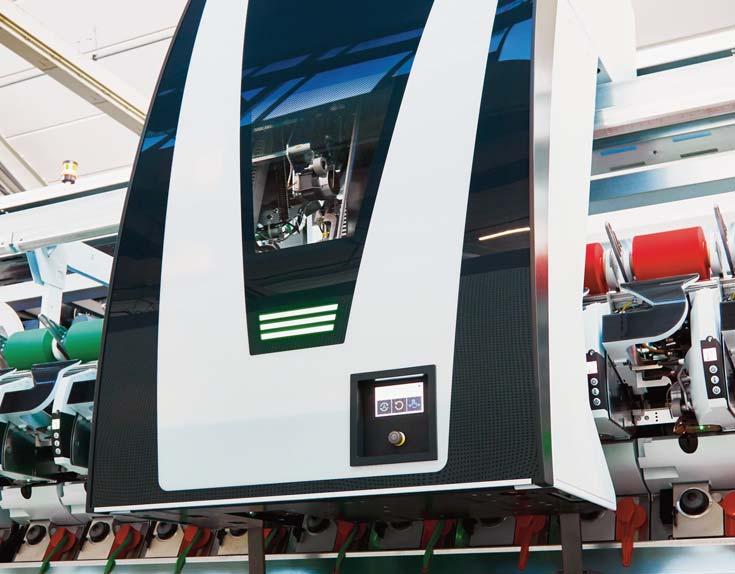
Sustainability also implies longer product life. SUN-Service Unlimited offers solutions for a long and sustainable life of Saurer spinning machines as well as
upgrade kits for processing recycled fibres. Additionally, Saurer provides solutions to improve the energy efficiency of your current machinery.
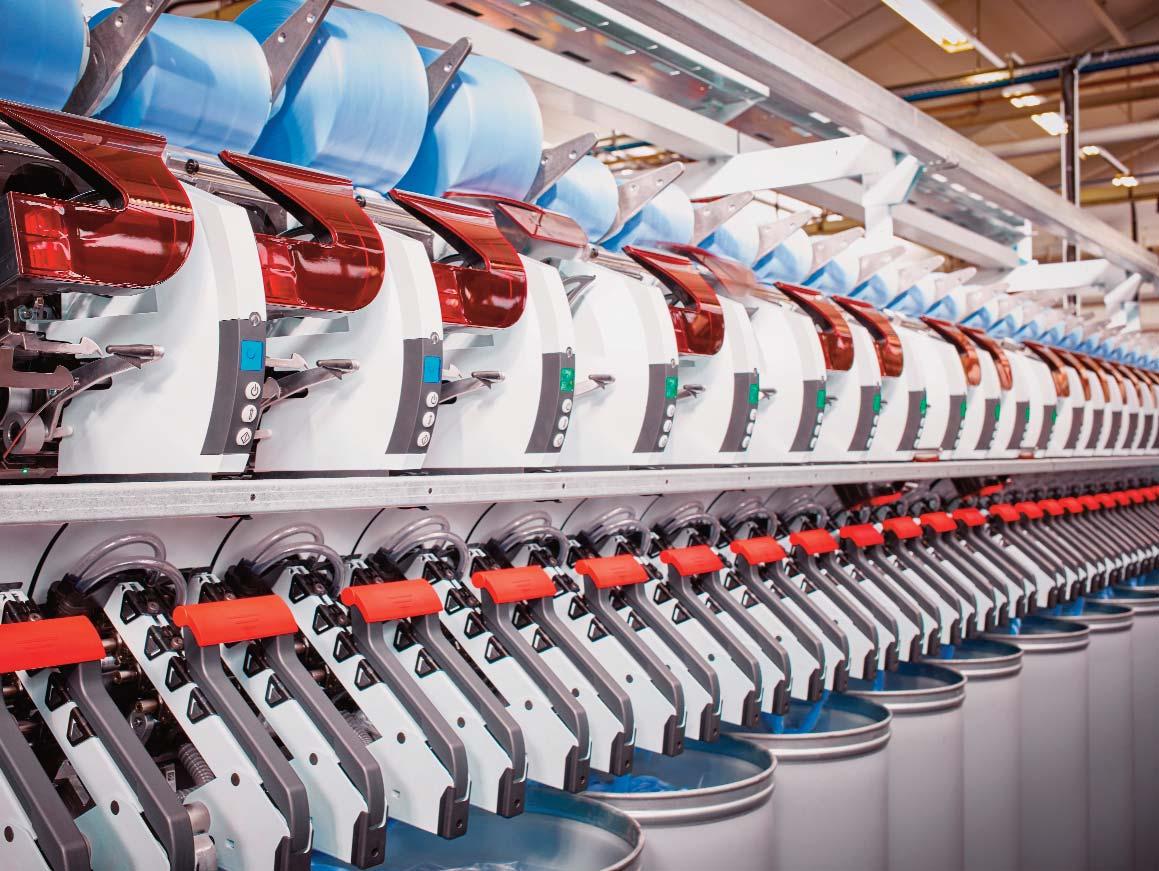
Spinning Review
57
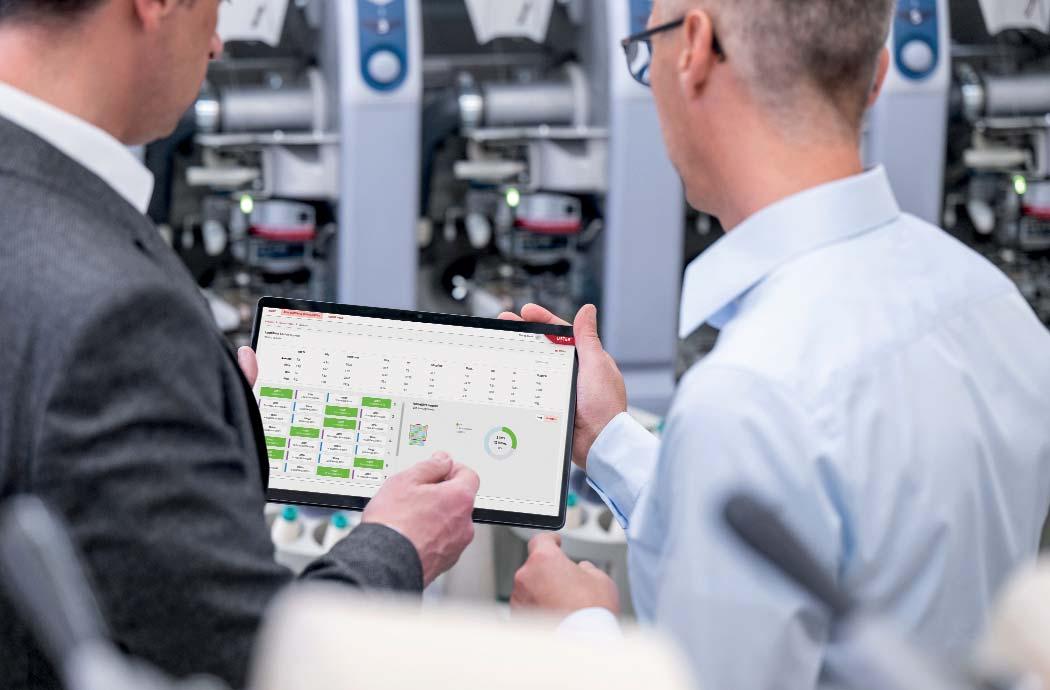
Right raw material, optimized production…
Uster solutions combine to deliver practical benefits in processes and profits
The unique Uster combination of quality measurement instruments with sophisticated software is at the heart of an evolution in spinning. FiberQ is the essential starting point to unlocking maximum profits, through absolute raw material consistency. And Uster Quality Expert completes the picture by monitoring quality throughout the production process. By combining these two systems spinners can achieve the full benefits in terms of both quality and profitability.
Positive feedback from leading mills worldwide confirms the advantages with facts and figures from practical mill experience. Accurate collection and analysis of complex data is applied at every stage, with Uster Quality Expert and 360Q with Fiber Q bringing added value and optimized processing throughout the mill.
Stratos Fragkotsinos, Uster’s Head of Product Management Mill Management Solutions, explains the importance of Fiber Q and Uster Quality Expert working in harmony to improve the whole mill
operation: “Without an optimum raw material management solution it is very difficult and expensive to achieve production of yarn with the right quality and quality consistency,” he says. “On the other hand, even the best raw material solution will not achieve its maximum potential without reliable and consistent in-mill production processes.”
The power of software solutions
On the road to Industry 4.0 it’s clear that software is an increasingly important driver of progress in quality control. That’s especially true in spinning, the most complex of textile segments, with its multiple related process stages. Spinning firms are also the ones with the greatest need for reliable data collation and analysis if they are to operate profitably. For example, raw material accounts for up to 75% of production costs for spinners, so proper management and minimized waste are essential. It makes sense to partner with the leading expert in data gathering and analysis to optimize this vital element.
Uster’s vision was to extend its Think Quality concept across the wider textile community, and a first step was the launch of Quality Expert. A standalone version was launched as a software solution in 2020, with the same features as the system hosted in Uster Tester 6. Uster Quality Expert – now known as UQX – delivers uncompromising standards in ultimate analysis, unique Value Modules and fault prevention mechanisms.
These UQX benefits support optimized settings, minimizing outliers with immediate and reliable notifications. And these optimum setting will have a direct impact on waste levels.
“Continuous in-process monitoring via the value modules of UQX will ensure trouble-free production, since variations in the raw material side are already at a minimum thanks to Fiber Q’s efficiency and reliability,” says Fragkotsinos.
Mill feedback reports
Quality Expert offers various Value Modules. Yarn Prognosis helped an
58 PAKISTAN TEXTILE JOURNAL - February 2024
Indian spinner to solve pilling problems and to restore quality quickly, avoiding losses. UQX enabled analysis of critical issues and guided notable improvements.
One of Pakistan’s best-known spinning brands sought the ultimate solution to optimize production routines for assured quality and managed costs. The company’s COO is convinced that improving the product quality has automatically improved productivity in the mill. He asserts that, even where cost is regarded as more important than quality, the best way to reduce cost is to improve quality.
Installing UQX proved to be a wise decision for this mill, with its fast and reliable data analysis enabling improvements to processes. It was easier for the mill to identify and prevent quality
outliers, as well as troubleshooting machine and component issues – and controlling contamination. The overall verdict was that significant improvements in quality consistency, productivity and profitability were achieved, thanks to analysis by Uster Quality Expert.
It’s not only in making ‘good’ quality ‘better’ that UQX scores. As evidence, an Indian spinner with yarn quality previously classed as ‘average’ reports that its quality level is now much higher thanks to Uster Tester 6 with UQX. This mill achieved its dual goal of enhanced market position and higher profitability.
At another spinning mill in India using Fiber Q, UQX was also checking overall production, identifying outliers and enabling setting optimization for every process step. This led to a waste
reduction of 2% and a significant improvement in the IPI level (-25%).
The full story, as well as other practical cases from customers, is available on the Uster websiteat www.uster.com/references.
Practical proof
It is well proven by practical trials and mill experience that Uster can now boost profitability in spinning mills with FiberQ as the unique raw material management solution in combination with UQX for full in-mill process optimization.
Says Fragkotsinos: “Consistent and optimum input combined with reliable quality monitoring are the key factors for success. It is obvious that together FiberQ from 360Q and UQX can enable maximum profitability for spinning mills.”
Marzoli obtains the Recyclability Index Certification
Marzoli have added a further important milestone to its sustainable strategy by obtaining the “Recyclability Index Certification” developed by ACIMIT and ASSOMAC together with Rina Consulting.
Enhancing Sustainability with Marzoli Roving Frame
At Marzoli, sustainability isn’t just a word; it’s a commitment embedded in Marzoli’s practices. The Marzoli’s Roving
Frame, in particular, is a testament to this dedication, boasting impressive sustainability indices that showcase Marzoli’s environmental responsibility.
92% of Maximizable Recyclability Potential:
This index expresses Marzoli’s commitment to sustainability by determining the potential for material separation from the mixed waste stream. A staggering 92% of the material used in
the Marzoli’s Roving Frame is maximizable for recyclability, reducing waste and promoting a circular economy.
65% of EoL RR – End of Life Recyclability Rate:
Marzoli understands the importance of considering the entire lifecycle of products. The EoL RR index reflects the share of waste material collected, pretreated, recycled, and reintegrated into the production cycle. The Marzoli Roving Frame achieves an impressive 65% rate, showcasing their dedication to responsible waste management and resource efficiency.
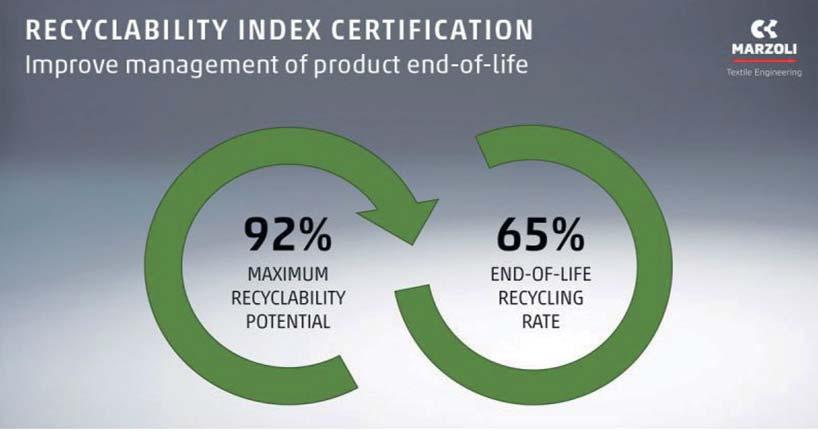
For Marzoli’s customers, these sustainability achievements translate into more than just numbers. It means being part of a sustainable ecosystem, contributing to a greener future, and actively engaging in better product end-of-life cycle management.
Spinning Review 59
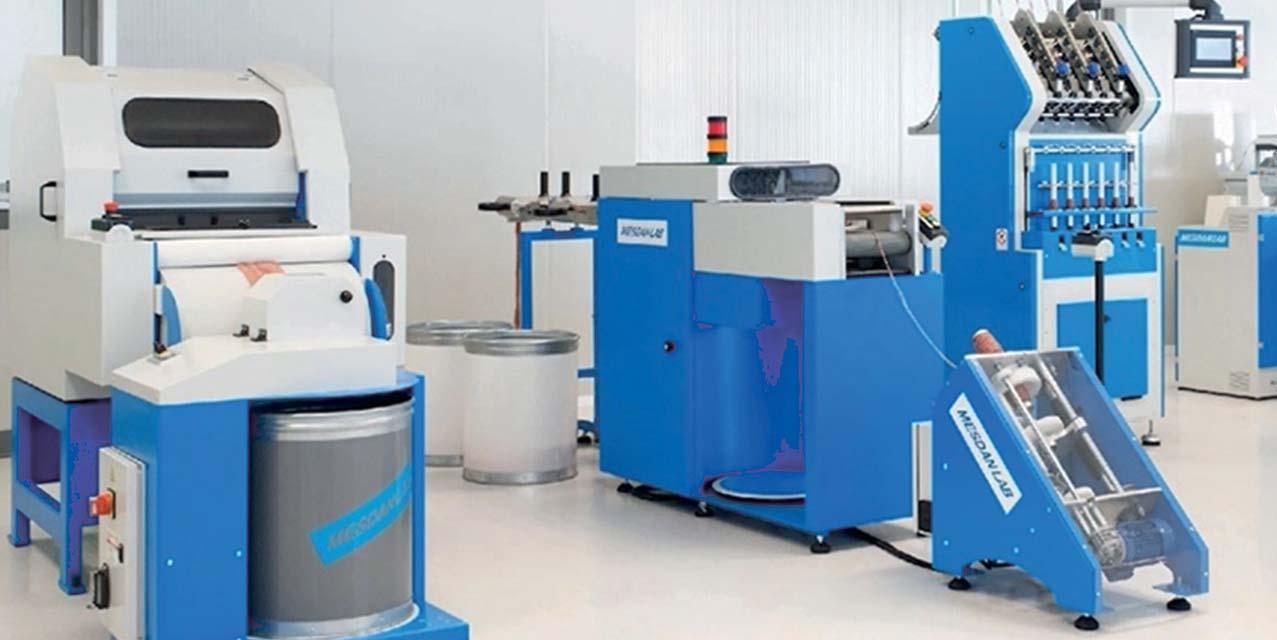
Mini-Spinning, new lab-scale Shredding machine & recycling in textiles
Given the announced community directives that will soon impose in many countries the reuse of resources and the reduction of waste, the circular economy and recycling are topics of very high interest nowadays, with increasingly widespread applications in all industries, but above all in the world of textiles.
In addition to its main functions (teaching, R&D, sampling), various stakeholders, including apparel manufacturers, renowned brands, R&D laboratories, and new startups, are increasingly considering the Mesdan Mini-spinning line as an integral part of recycling projects. These entities show significant interest in utilizing Mesdan lines for laboratory or small-scale production purposes, specifically for recycling old clothes, fabrics, and yarn waste, as well as recovering valuable waste fibers.
In recent years, various research institutes around the world have included the Mesdan Mini-spinning line in their textile recycling projects. The required equipment for this kind of assessment includes the card with the attached sliver web condenser, the drawing frame with the flyer for better resistance and uniformity of the roving and the ring
spinning machine. Some have completed the line with the addition of machines for the production of twisted yarns (assembly winder, twisting machine) or a knitting machine, all in lab scale.
The novelty that Mesdan presented at the ITMA 2023 in Milan is the laboratory scale Shredding machine. Its versatility, flexibility, and high performance define the machine, attributed to the capability to customize and save various settings. This includes modifying the machine’s working parameters such as work cylinder rotation speed, product feeding speed, and suction of the finished product.
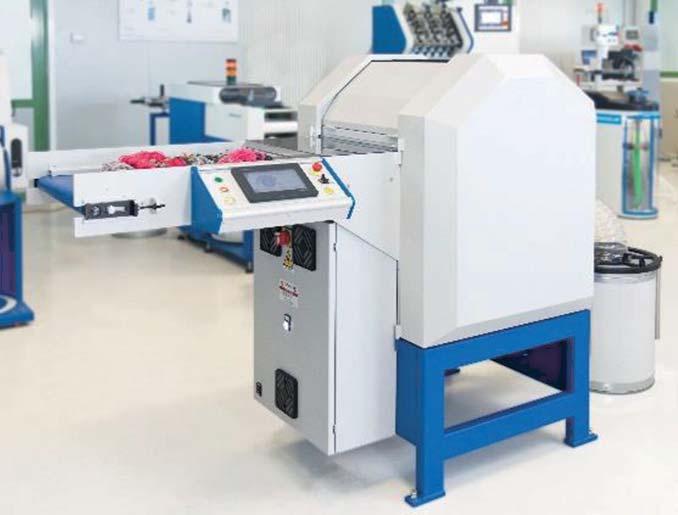
fiber mixing (with the possible addition of other non-recycled fibres) and carding, drawing plus spinning to obtain the final product (yarn with desired % composition, count and tpm)
A “standard” mechanical recycling process can be simplified as follows: selection and sanitization of the textile to be recycled, removal of non-textile parts (metal or plastic parts, such as buttons, zippers, etc),
cutting of incoming material and Shredding,
Medium-small sized companies are showing interest in the laboratory Shredding machine as a stand-alone recycling tool, considering its production capacity of approximately 1kg/min (60kg/h). This interest extends beyond applications intended for reuse in spinning mills to various technical applications like non-woven materials, thermal/acoustic insulation materials, padding, etc.
60 PAKISTAN TEXTILE JOURNAL - February 2024
Weavers of carbon fabrics rely on Loepfe Weftmaster® FALCON-I
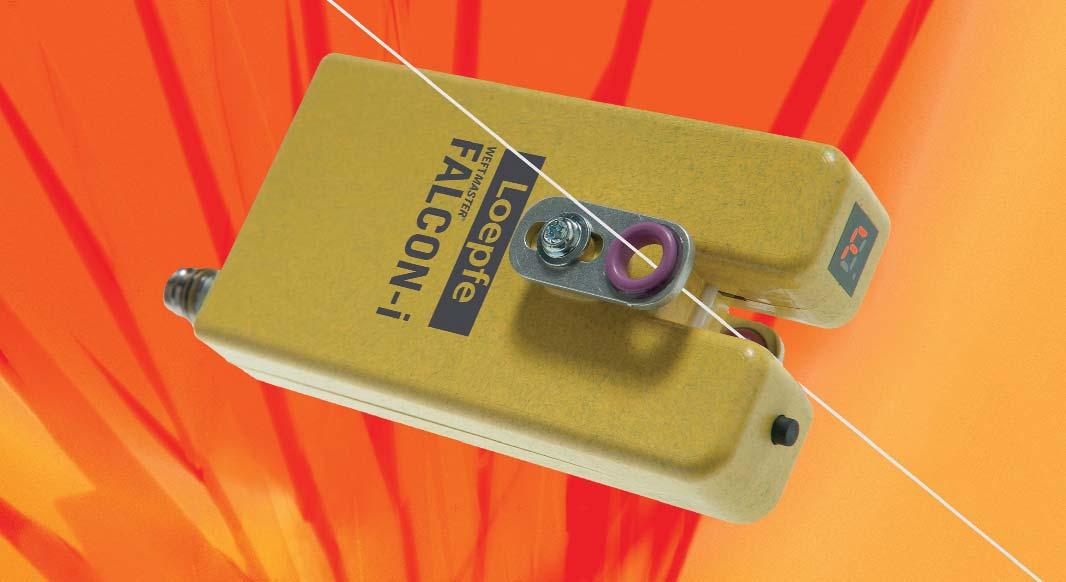
People's concerns about adverse effects from pollution on our living environment is growing. Industries are being forced to reduce their impact on the environment. Transportation accounts for up to one third of all CO2 emissions and cars generate a major share of the pollution. The need to reduce the weight of a car in order to cut its emissions or to increase its range is clear. Steel is getting replaced by carbon fiber based composites and car interiors are being provided with luster by using carbon fabric inlays. The quality of the carbon fabric is crucial for reaching the expected performance.
In the case of inlay-components with a carbon look, even the smallest irregularities are a problem. Hence, carbon fabrics must have controlled quality to avoid sporadic defects. Weavers of carbon fabrics who are working closely together with car manufacturers don’t take any risks - they rely on Loepfe's FALCON-i to keep fluff or filamentation out of their top quality fabrics.
By using the unique detection features of Loepfe's FALCON-i yarn sensor to remove fluff or filamentation from the weft-yarn, waste is dramatically reduced in the carbon fabric production process. A simple calculation reveals that there’s a quick return on investment for the weaver.
The applications where FALCON-i can improve product quality are not limited to those mentioned here. Coated technical fabrics such as tarpaulins or sailcloth can only be perfect when using FALCON-i for weaving the base material, in order to avoid fish-eye defects.
Weavers with a focus on high quality technical textiles benefit from using the unique detection capabilities of FALCON-i to improve the quality of their products while avoiding customer claims or expensive patching.
FALCON-i offers selectable sensitivity levels to cope with many different applications. Since the sensor is optical, the nature or conductivity of the yarn processed is of minor importance. Smooth yarn guidance allows for very selective fault sensitivitysettings.
This specialized yarn sensor product from Loepfe Switzerland is in high demand for the production of technical textile fabrics that find their application in automotive, medical, aeronautics, filtration, recreational sports, renewable energy - and many other industries too.
Learn more about features and applications of FALCON-i here or contact one of our experts at service@loepfe.com
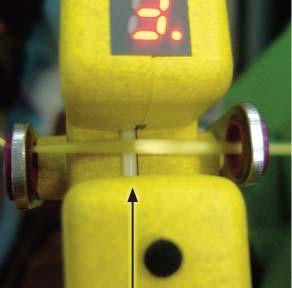
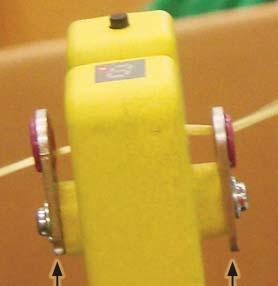
61 Spinning Review
Oerlikon Barmag WINGS FDY Technology for a sustainable polyester yarn production at Garden Silk Mills in India
With the successful commissioning of the new polyester yarn production facility at Garden Silk Mills in Surat, India, Oerlikon Barmag once again proves that the company of the Swiss Oerlikon Industrial Group is rightly one of the world's leading suppliers of manmade fiber plants. The conversion and new construction of the polyester spinning mill, which now has a total of 216 WINGS FDY spinning units, was accompanied by extensive engineering work, which was conducted in close cooperation with experts from Germany and, above all, from India.
Successful commissioning
"We are particularly pleased to have equipped Garden Silk Mills, another successful customer, with our WINGS FDY technology," explained Oerlikon Polymer Processing Solutions CEO Georg Stausberg. "We are confident that the new, state-of-the-art spinning mill will be able to produce polyester yarns for the highest demands in an economically attractive way, so that they can be offered to the Indian market as well as the global market. We congratulate Garden Silk Mills on the successful commissioning and wish them all the best for the future," continued Stausberg.
The FDY yarn expansion project at Garden Silk Mills Private Limited (GSMPL) marks the beginning of a period of rapid progress in the textile sector by The Chatterjee Group (TCG) under the leadership of its visionary Chairman, Dr. Purnendu Chatterjee. With its state-ofthe-art manufacturing plant at Jolwa, producing high quality polyester chips, POY, FDY and other specialty yarns, and the iconic Garden Vareli brand having a contemporary collection of sarees and dress materials, the Chatterjee Group, that has investments of USD 8 billion globally, is truly creating the Garden of Tomorrow. “We at MCPI and GSMPL are committed to realize the strong textile vision of Dr. Purnendu Chatterjee, Chairman, TCG”, said D.P.Patra, Whole Time Director and CEO, MCPI.

What is polyester yarn production with Oerlikon Barmag WINGS FDY all about?
The principle of producing a yarn is always the same: spinning pumps press the plastic melt under extremely high pressure through micro-fine nozzles, the resulting filaments are bundled into threads, stretched over godets, and wound up by a winding head. In order to master this principle reliably, highprecision and extremely stable technology is required. These machines are in use day and night, year in, year out. The slightest error during the spinning process cannot be corrected later.
Precise processes for textile and technical yarns
Oerlikon Barmag systems master almost all processes for the production of textile and technical yarns and spin the common polymers polyester, polyamide 6 and 6.6 or polypropylene. Garden Silk Mills focuses on so-called fully drawn yarns (FDY). They are processed into textile surfaces without further finishing. Fully drawn yarns are used wherever textiles need to fall smoothly or glide.
Sustainable solutions for FDY production
Oerlikon Barmag is the technology leader in this field. The WINGS concept breaks through the limits of conventional

FDY spinning systems. WINGS stands for optimized production processes, low waste rates and energy consumption reduced by around 30 percent. High yarn quality is a must. This pioneering technology can be used in the FDY process for polyester and polyamide.
Oerlikon Barmag's WINGS technology now supports Garden Silk Mills in the production of FDY premium yarns – highperformance spinning components such as spinning pumps, spinning beams and spinn packs through to crossflow quenching and the 216 WINGS winders were installed in the direct spinning process downstream of an existing polycondensation system at Garden Silk Mills. This is because the quality of the yarn is determined in the spinning mill.
Competition on the yarn markets is currently also extraordinarily strong for Garden Silk Mills. The result: constantly increasing cost pressure. The solution: optimized production processes, economical systems, sustainable technologies. Oerlikon Barmag WINGS FDY technology provides all of this. Efficiency is the key feature of WINGS: The winder can be operated entirely from the floor. All operating elements are at eye level. As a consequence, this reduces the time required for feeding by 25-40%; time in which FDY yarn of the highest quality can be produced – and, above all, no waste.
Spinning Review 62 PAKISTAN TEXTILE JOURNAL - February 2024
WINGS FDY PLUS sets new sustainable standards in polyester yarn production at Garden Silk Mills in Surat, India
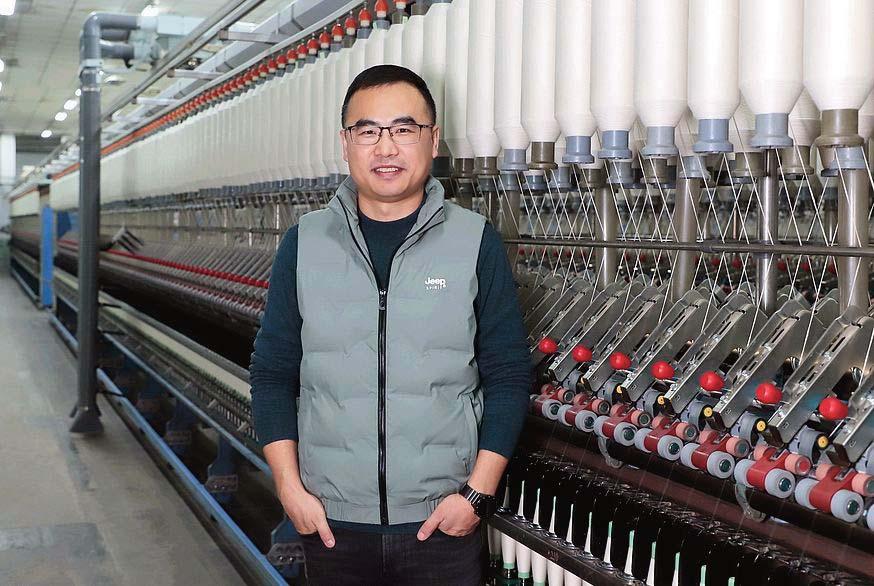
Yarn Quality at the Highest Level with Suessen Top Weighting Arms
Sanyang Textile Co. is one of the most influential spinning players in China. The company located in Lijin County, Dongying city, Shandong province, has a compact-spinning capacity of nearly 400 000 spindles, producing yarn count from Ne 40 to Ne 140. For more than ten years, Sanyang counts on Suessen and its proven top weighting arms to ensure a yarn quality at the highest level.
The Challenge
Sanyang has been using coil spring top weighting arms on their compactspinning machines for years. Over time, the company witnessed higher yarn end breaks which did not match anymore the high standard of Sanyang. In addition, the maintenance requirements increased which negatively impacted labor capacity. Sanyang worked with Suessen in order to enhance the premium yarn quality which is the company’s hallmark.
The Solution
The top weighting arm HP-GX 3010 is a proven solution, widely used in spinning mills worldwide. The highquality leaf spring guarantees a pressure which remains constant, even after years of operation. As a result, a stable yarn quality is achieved.
This constant pressure also ensures a large roving twist coefficient and normal drafting under high temperatures and humidity and allows the amount of yarn breakage to be significantly reduced.
Besides, the Suessen HP-GX 3010 requires almost no maintenance after installation and the customer does not need to adjust any parameter setting when changing raw material or yarn count. This makes a big difference when it comes to labor management.
The Customer’s Benefits
The HP-GX 3010 delivered as promised: within short, the yarn quality improved and the yarn breakage was reduced. After years of use, the pressure has hardly changed and no maintenance was necessary. The customer, satisfied with the results, further invested and equipped another 200 000 spindles on its compact-spinning machine producing yarn counts Ne 40 to Ne 140 with the Suessen top weighting arm HP-GX 3010.
“From early-stage communication to product trial and evaluation, to the installation and service, Suessen and its HP-GX 3010 top weighting arm proved to be the right choice for us. We are deeply impressed by the dedication and professionalism of Suessen’s technology and service team.
63 Spinning Review
Li Dasong, Vice General Manager of Sanyang Textile Co., Ltd”
Chhipasons.................................................................64
ITM 2024..................................................................IBC
IGATEX Pakistan 2024...............................................IFC




Archroma Pakistan Ltd ....................................................9
DOMOTEX asia/CHINAFLOOR 2024........................19
Atlas.....................................................................3 Swissmem ..................................................................11
Rifa..............................................................FC
iTextiles.......................................................................BC Jet Logistics.................................................................64 Loptex SRL...................................................................1 Rastgar...................................................................6&64 SDL
Zhejiang
Classified
ADVERTISERS INDEX FEBRUARY 2024

